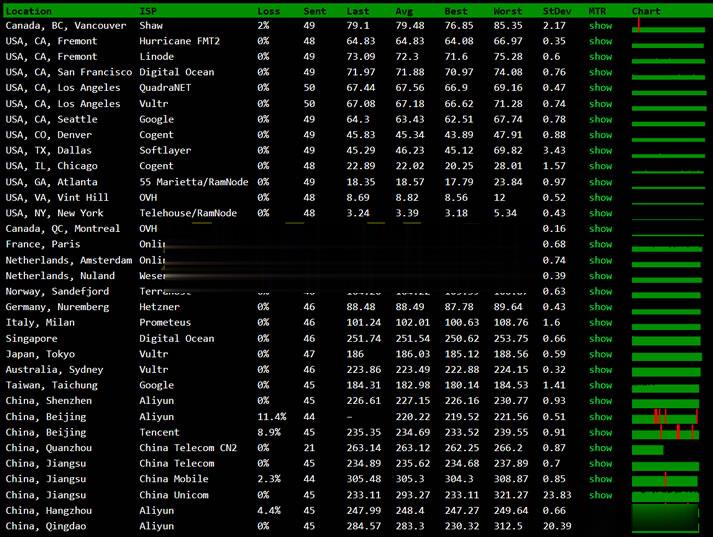considerationssonyawalger
sonyawalger 时间:2021-01-14 阅读:()
NatLangLinguistTheory(2008)26:547–587DOI10.
1007/s11049-008-9048-yORIGINALPAPERStranding,weakpronouns,andthenestructureoftheDutchMittelfeldE.
G.
RuysReceived:3February2006/Accepted:22March2007/Publishedonline:9September2008TheAuthor(s)2008.
ThisarticleispublishedwithopenaccessatSpringerlink.
comAbstractThepurposeofthispaperistodevelopatoolfordeterminingtheunmarkedpositionofvariousPPtypesintheDutchMittelfeld.
Thepaperarguesthatthedis-tributionofstrandedprepositions,whichobeyaFreezingconstraint,canbeusedforthispurpose,andthatthesameholdsforprepositionswithaweakpronominalcom-plement.
Amongtheresultsofthistwindiagnosticareindependentevidenceforacase-movementanalysisofscrambling,andsupportforaparticularanalysisofpred-icativecomplementconstructions.
KeywordsPrepositionstranding·Weakpronouns·PPscrambling·Middleeld·Cartography0IntroductionConsidertheDutchdatain(1)–(3):(1)a.
datJanniet[PPopdezebeslissing]hadgerekendthatJannotonthisdecisionhadcountedb.
datJan[PPopdezebeslissing]niethadgerekendthatJanonthisdecisionnothadcounted(2)a.
debeslissingwaariJanniet[PPtiop]hadgerekendthedecisionwhichJannotonhadcountedb.
*debeslissingwaariJan[PPtiop]niethadgerekendthedecisionwhichJanonnothadcountedE.
G.
Ruys()UiL-OTS,UtrechtUniversity,3512JK,Utrecht,TheNetherlandse-mail:eddy.
ruys@let.
uu.
nl548E.
G.
Ruys(3)a.
datJanniet[PPopze]hadgerekendthatJannotonthemhadcountedb.
*datJan[PPopze]niethadgerekendthatJanonthemnothadcountedAs(1)illustrates,agivenPPisoftenfreetooccurinvariouspositionsintheDutchMittelfeld.
PrepositionStranding,however,isgenerallyallowedfromonlyoneofthesepositions,as(2)shows.
Variousaccountsofthisrestrictionhavebeenpro-posed.
SomeclaimthatstrandedPmustbeV-adjacent;othersarguethatonceaPPhasmoved,itis"frozen".
Thepresentpaperarguesforanewempiricalgeneraliza-tion:withsomeprovisos,thedistributionofstrandedPmirrorsthedistributionofPwithaweakpronounasitscomplement,asshownin(3).
Icallthisthe"[Px]generalization.
"Ifcorrect,the[Px]generalizationhasvarioustheoreticalandanalyticalconse-quences.
Firstofall,itcanbeemployedtoarguedecisivelyagainstaV-adjacencyaccountofbothdistributionpatterns,infavorofaFreezingaccount.
Itwillalsohelpdeterminethecorrectexplanationofthefreezingeffect.
Analytically,thegeneraliza-tioncanbeemployedasatoolforestablishingtheunmarked(hence,Iwillargue,base-generated)positionofvariousPPtypes,andofotherelementsintheDutchMit-telfeld,innerdetailthanhaspreviouslybeenachieved.
Thisishelpful,sincetheconsiderablesurfacevariationwithintheDutchMittelfeldoftenmakesitdifculttodetermineinwhichorderitsconstituentsarebase-generated.
Inparticular,Iwillshowhowthe[Px]generalizationcanbeusedtosupportacartographyofPPpo-sitions,andtoresolvetheintricateandpuzzlingword-orderphenomenafoundwithP-strandinginpredicativecomplementconstructions,whicharesummarizedin(4).
Intheunmarkedwordorder,PPadverbialsfollowAPpredicates,butprecedePPpredicates,exceptthat:prosodicallylightAPsmayfollowtheadverbial,andheavyadverbialsprecedeallpredicates.
(4)PPAdv:heavyAPPredPPAdv:lightPPPred/APPred:lightVThesendingsalsoprovidenewsupportforthetheorythatboth(DP)argumentsand(AP)predicatesundergoobligatorymovementintheDutchMittelfeld.
There-sultinganalysisendsupexplainingfactsthatwerepreviouslytakentosupporttheV-adjacencyaccountofP-stranding.
The[Px]generalizationproposedhereextendsexistingworkontherelationbetweenpronoundistributionandstranding(Ross1967;Abels2003)inanewdirection.
Theremainderofthepaperisorganizedasfollows.
Section1sketchesthedis-tributionofstrandedprepositionsandofprepositionswithweakpronominalcom-plements,statesthe[Px]generalization,anddiscussesitstheoreticalimplications.
Section2presentsempiricalsupport;ityieldsdescriptiveresultsconcerningthebasepositionsofvariousPPtypesandothermaterialintheDutchMittelfeld,andservestoestablishthereliabilityoftheproposedmethodofdeterminingtheunmarkedpo-sitionsofPPs,andtoexploreitslimitations.
Sections3and4usethismethodtoexplorethestructureandunderlyingorderofpredicativecomplementconstructions.
Stranding,weakpronouns,andthenestructureoftheDutchMittelfeld5491Twodiagnostics:strandingandweakpronounsInthissection,Iwillthatarguethatthedistributionofstrandedprepositionsandprepositionswithweakpronominalcomplementscanbeusedtodetecttheun-markedpositionofPPsinDutch.
Section1.
1arguesfortheinitialplausibilityoftheP-strandingtest.
Section1.
2arguesthatprepositionswithweakpronominalcom-plementscanalsobeusedforthispurpose,andintroducesthe[Px]generalization:strandedPhasthesamedistributionasPwithweakpronominalcomplement.
1.
1PPmovementandP-strandingThereareseveralbroadgeneralizationsgoverningP-strandinginEnglishandDutch.
First,grammaticalfunctionplaysarole.
Forinstance,locativeandtemporaladjunctPPstypicallydisallowstrandinginEnglish,asobservedbyRoss(1967)(seealsoHornsteinandWeinberg1981),whereas,e.
g.
,instrumentaladjunctPPsandargumentPPsallowstranding.
ThesamecontrastisfoundinDutch.
VanRiemsdijk(1978:26)suggestedanaccountintermsofthe(semantic)closenessofthePPtothemainverb;anexplanationintermsofstructuralconditionsonextractionwasproposedinBen-nisandHoekstra(1984),Bennis(1986),andKoster(1987).
Asecondgeneralization,partlytreatableasacorollaryoftherst,isthatonlyasubclassofprepositionseveral-lowstranding;e.
g.
,suchprepositionsasdespiteorsinceneverdo.
SeeZwarts(1997)foraninventoryofDutchprepositionsthatallowanddisallowstranding.
Third,arestrictionthatholdsinDutch,butnotEnglish,isthatonlyadpositionsintheirpost-positionaluseallowstranding;or,nearlyequivalently,thatonlypronominalsofthe+Rclass,whichtriggerthepostpositionaluseoftheadposition,allowstranding:(5)a.
Janrekent[PPdaar[+R]op].
Jancountsthat[+R]on'Jancountsonthat.
'b.
Waar[+R]i/*wat[R]irekentJan[PPtiop]what[+R]/what[R]countsJanon'WhatdoesJancounton'c.
datJandaar[+R]i/er[+R]ivaak[PPtiop]rekentthatJanthat[+R]/it[+R]oftenoncounts'thatJanoftencountsonthat/it'Also,DutchshowsstrandingonlywithA'-movement:movementtoSpec,CPasin(5b),or"R-movement"(cliticizationorscramblingofa+Relement,asidentiedinVanRiemsdijk1978)asin(5c),notwithA-movementlikeinEnglishpseudopassives(VanRiemsdijk1978,paceHorst1980).
SeeVanRiemsdijk(1978)andBroekhuis(2002)forextensivediscussionoftheseandfurtherrestrictionsonDutchP-stranding.
Inthepresentpaper,IwillnotbeattemptingtoexplainanyofthefactorsaffectingP-strandingmentionedsofar.
Iwillkeepthesefactorsconstant,andlimitattentiontoPPswhichmeetalloftheabove-mentionedconditionsonP-stranding.
Iwillvaryonlyoneadditionalfactor:thepositionofthePPintheclause.
Itwasobservedby550E.
G.
RuysHornsteinandWeinberg(1981)thatPPsthathaveundergonemovementdonotallowstranding:1(6)a.
WhoididPugsleygiveabookyesterdayb.
WhoididJohntalkaboutHarryyesterdayAfterPP-extraposition(6a),orVP-internalPP-scrambling(6b),strandingisnolongerallowed.
SimilarobservationsholdforDutch.
WhenaPPcanappearinvariouspositionsintheclause,onlyoneofthesepositionsallowsstranding.
Thus,PP-extraposition("PP-over-V":Koster1973,1974,1975)blocksP-stranding(Koster1978:104):(7)a.
datJanwachtthatJanwaitsb.
debeslissingwaariJanwachtthedecisionwhich[+R]JanwaitsThesameholdsforPPscrambling.
PPsscramblerelativelyfreelyinDutch:PPargu-mentsandadjunctsvaryinpositionwithadverbs,negation,objects,andeachother(see,e.
g.
,Koster1974;Helmantel2002).
ButonlyoneofthevariouspositionsinwhichagivenPPcanoccurallowsstranding.
Thisisillustratedby(2)above,andagainby(8):(8)a.
datJaneenboekgafthatJanabookgaveb.
hetmeisjewaariJaneenboekgafthegirlwhich[+R]JanabookgaveTwobasicdescriptivegeneralizationshavebeenproposedtocapturethesefacts.
OnedescriptionisthatstrandedPinDutchmustbeleft-adjacenttoV.
AnotherdescriptionstatesthatPmaystrandonlyifPPhasnotmoved.
Iwillbrieydiscussbothoptions,andexplainwhyIoptforthelatter.
Onedescriptionoftheobservationsin(7)–(8)isthatstrandedPmustbeleft-adjacenttoV(see,e.
g.
,Hoekstra1979;BennisandHoekstra1984;Bennis1986;Broekhuis2002).
Thisgeneralizationinturnhasreceivedvariousexplanations.
Forinstance,BennisandHoekstra(1984)andBennis(1986)adoptanECP-typerequire-ment(avariantoftheoneinKayne1984)whichallowsextractionfromPPonlyifPPiscanonicallygoverned(minimallyc-commanded)byV;inabinarybranch-ingstructurethisentailsstring-adjacencyofPPtothebasepositionofV.
2Hoekstra(1979)suggesteditisnotPPthatmustbeadjacenttoV,butstrandedPitself:withoutventuringadeeperexplanation,heassumedthattheV-adjacencyrequirementcanbe1Notation:whenXmustoccurinoneplaceinthestructure,IwritetoindicateapositionwhereXmayoccur,andtoindicateapositionwhereitmaynot.
2AnECPbasedaccountofDutchP-strandingthatrequiresproximityofPPtoVisproposedalsobyVanRiemsdijkandWilliams(1986).
Stowell(1982)explainstheadjacencyrequirementinDutchP-strandingbysettingadjacencyasapreconditionforReanalysis;ReanalysisinturnisrequiredforthetraceinastrandingstructuretoobeytheECP,asoriginallyproposedinKayne(1984).
Stranding,weakpronouns,andthenestructureoftheDutchMittelfeld551metbyPrightwardmovingtoV.
3Twoobservationsseemedtojustifythisassump-tion:strandedPmayoccurinbetweendirectobjectandVasin(9a),obviouslyaderivedorder;andstrandedPmayoccurleft-adjacenttoVinstructures(9b)wherethecorrespondingfullPPmaynot(9c):(9)a.
hetglaswaarJanwijnuitdrinkttheglasswhichJanwinefromdrinksb.
deschoenenwaarJannaarAmsterdammeeloopttheshoeswhichJantoAmsterdamwithwalksc.
*datJannaarAmsterdam[PPmetdieschoenen]looptthatJantoAmsterdamwiththoseshoeswalksThemajorproblemfacingtheV-adjacencygeneralizationisthatseveralclassesofcounterexampleshavebeenidentied.
Hoekstra(1979),BennisandHoekstra(1984),andBennis(1986)alreadymentionedseveraltypesofelementsthatmayoccurbe-tweenstrandedPandV:inherentadverbsofplaceanddirection(10a);predicativecomplements(10b);particles(10c).
(10)a.
detreinwaariik[PPtimee]naarGroningengathetrainwhichIwithtoGroningengob.
hetmiddelwaariikdekamer[PPtimee]schoonmaaktheproductwhichItheroomwithcleanmakec.
detreinwaariik[PPtimee]teruggathetrainwhichIwithbackgoThesecounterexamplesshowpredicativeinterveners,whichIwilldiscussfurtherinSects.
3and4.
Section2belowwillpresentadditionaltypesofcounterexamples.
IwillconcludethatmaterialmayfreelyintervenebetweenstrandedPandV,aslongasPPremainsinitsunmarked(base-generated)position.
Thisbringsmetotheseconddescriptivegeneralizationcoveringtheobservationsin(7)–(8):PmaystrandonlyifPPhasnotmoved.
Thisisknownasthe"Freezing"hypothesis.
4Koster(1978:103ff)rstsuggestedthatP-strandingisblockedifPPisinamarkedposition.
ForEnglish,aFreezingaccountofP-strandingwasproposedbyHornsteinandWeinberg(1981).
AndforDutch,Koster(1987:180ff)arguedagainsttheV-adjacencygeneralizationonthebasisofexampleslike(10a),andproposedasaconstraintthatPPmaynotbeextractedfromwhenmoved.
Thisblocks(7)and(8)3ArightwardmovementaccountofP-strandinghadbeenproposedbefore:SturmandKerstens(1978)proposedthatP-strandingconsistsofPincorporatingintoV,followedbymovementofthebeheadedPP.
VanRiemsdijk(1978)hadproposedthatinthose(rare)caseswhereanon-R-pronounstrandsP,PhasrightwardmovedoutofPPandtherebyrenderedPPtransparentforextraction.
AP-movementaccounthasalsobeenofferedbyNeeleman(1994)andZwart(1993):botharediscussedfurtherinSects.
3and4below.
Onecounterargumenttotheincorporationanalysis,duetoKoster(1987:181),isthatstrandedPdoesnotmovealongwithV-Raisinginclause-unionconstructions(Evers1975);seeNeeleman(1994:65,fn3)fordiscussion.
4Itdiffersfromthe"FreezingPrinciple"ofCulicoverandWexler(1977)(traceabletoRoss1967),whichholdsthatmovementofAtoanon-basepositioninXPwillalsofreezeBinXP.
SeeHoekstra(1979)foradiscussionofCulicoverandWexler'sFreezinginthecontextofDutchP-stranding;seealsoNeeleman(1994:Ch.
2).
552E.
G.
Ruys(ontheassumptionthattheseinvolvePP-movement;seeSect.
2belowforfurtherdis-cussionofPP-over-V)whileallowing(10),givenreasonableassumptionsregardingtheunderlyingorders.
Counterexamplessuchas(10),andthoseinthefollowingsections,arguedirectlyagainsttheV-adjacencygeneralization.
Inaddition,Iwillargueinthefollowingsec-tionsthatexplanationsoftheconstraintsonP-strandingbasedonV-adjacencydonotextendnaturallytotheconstraintsonPwithaweakpronominalcomplement(the[Px]generalization),whereasanexplanationbasedonFreezingthatIwillsug-gest,does.
Accordingly,Iassumethedescriptivegeneralization(11),basedonKoster(1978):(11)Freezing:P-strandingisblockedifPPhasundergoneoptionalmovementtoamarkedposition.
Ofcourse,thefactsin(9),whichappeartosupportV-adjacency,nowrequireanalternativeexplanation,whichtheanalysisinSects.
2through4willprovide.
ExplainingtheFreezinggeneralizationisnotmyprimaryconcernhere,solongastheeffectcanbeusedtotestfortheunmarkedpositionofPPs.
Forthisreason,Iwillnotreviewthevariousproposalsofferedintheliterature(seeCorver2006foranoverview).
5Briey,itseemsthatageneralconstraintonmovementoutofmovedconstituentscannotbemaintained(forinstance,watvoor-splitisallowedwithscrambledDPs,seeNeeleman1994),whileaspecializedconstraintonmovementoutofmovedPPswouldlackexplanatoryvalue.
Moreimportantlyinthepresentcontext:IamnotawareofanexistingaccountthatextendstotheFreezingeffectwithweakpronouns(i.
e.
,the[Px]generalization).
Todemonstratethatthegeneralizationcanbecaptured,IwanttosuggestthefollowingexplanationfortheFreezingeffect.
PositionalvariationorscramblingwithintheMittelfeldingeneralaffectsthein-formationstructureofthesentence.
ThisiswellknownandwidelystudiedforDP-5TomentionjustafewthatconcentrateonfreezingeffectswithP-stranding:HornsteinandWeinberg's(1981)originalaccountintermsofverbReanalysis(Chomsky1974),likeCulicoverandWexler's(1977)Freezingprinciple,besidesbeingtheoreticallyoutmoded,istoostrong:P,VandallinterveningmaterialXmustbereanalyzedintoVsoastoallowtheresulting[V0VXP]togovernthetrace;thisfreezesX.
Anywordorderoptionalityfoundheremustthereforebebasegenerated.
ThisisunlikelyinviewofexamplessuchasKoster's(1987:293)(i),whereasubcategorizedfunctionalPPcanoccurtotheleftofastrandedinstrumentalP:(i)Waariheefthijaanzijndissertatie[PPtimee]gewerktwhathasheonhisthesiswithworked'Whatdidheworkonhisthesiswith'Müller(1995)explainsthefreezingeffectasfollows:aftermovement,PPsareinanadjoinedposition;andextractionoutofadjunctsisprohibited.
However,giventhatinstrumentalPPsandmanyotheroptionalPPsallowstranding,itisunclearwhethertheargument/adjunctstatusofaPPindeeddetermineswhetherstrandingisallowed(Helmantel2002:167).
Inaddition,theidenticationofthelandingsiteofoptionalmovement,andthebasepositionofoptionalelements,underthestructuralheadingofA'(adjoined)posi-tions,onwhichtheaccountrelies,ttedwellintheBarriersframeworkwhereitoriginates,butitisunclearwhetherthetwopositiontypessoidentiedindeedformanaturalclasswithrespecttominimalistcon-straintsonmovement,howeverthesemayevolve.
Finally,suchanaccountoftheFreezingeffectintermsofconstraintsonmovementwillnotallowustoexplaintheFreezingeffectwithweakpronounsdiscussedinthenextsection.
Stranding,weakpronouns,andthenestructureoftheDutchMittelfeld553scrambling,muchlesssoforPPs.
Consider,however,example(12),adaptedfromBroekhuis(2002).
(12)a.
datJaneenboekopdekastheeftgezetthatJanabookonthecupboardhasputb.
datJanopdekasteenboekheeftgezetthatJanonthecupboardabookhasput(12a)isthemost'neutral'wordorder:itcanbeproducedwithonepitchaccentonboek'book',givingawidefocusreadingthatcanserveasanout-of-the-bluestate-ment.
Broekhuis(2002:227)notesthatleftwardscramblingthePPin(12b)requiresan"emphaticfocusaccent"onthecomplementofP.
Theresultisacontrastiveread-ing.
ThissuggeststhefollowingpotentialexplanationoftheFreezingeffect(11).
Consider(13):(13)a.
datJandaarivaakeenboek[PPtiop]zetthatJanthat[+R]oftenabookonputs'thatJanoftenputsabookonthat'b.
*datJandaarivaak[PPtiop]jeenboektjzetthatJanthat[+R]oftenonabookputsIn(13a),daar'that'hasundergoneR-movement.
Initslanding-site,daarmaybestressed;ifitis,thesameemphatic/contrastiveeffectisachievedasin(12b).
In(13b),R-movementofdaarisprecededbyPPscrambling.
ButthemovementofthePPendsuphavingnoinformationstructureeffect:thetraceofdaarhasnoinformationstatusbyitself,andtheinformationstatusofdaarisfullydeterminedbyitsnalposition,whichisthesameasin(13a).
Atthispoint,economyconditionsofthetypeproposedinReinhart(1995,1997)andNeelemanandReinhart(1998)canbeinvokedtoruleoutthederivationin(13b):itcontainsasuperuousoptionalmovementoperation.
ItseemslikelytomethattheincompatibilityofP-strandingwithoptional,informationdrivenmovementoperationsresultinginmarkedwordorderscanbeexplainedbythistypeofreasoning,inmanyorallinstances.
However,theseobservationsinturnsuggestarelatedbutmuchsimpleraccount.
IfthemovedPP(inmarkedposition)mustindeedhavean(emphatically,contrastively,focus-)stressedcomplement,thisexplainstheFreezingeffectdirectly:Pinscram-bledpositionmaynotbestranded,becauseitrequiresastressedcomplement,andtracecannotbestressed.
Iwillremainagnostichereastotheprimacyofthestressaccountortheeconomyaccount;howthesearerelatedwillbeleftforfurtherre-search;neitherthepragmaticnortheprosodicpropertiesoftheseconstructionsarewellstudied.
Ioptforthestressaccountof(11),becauseitextendsnaturallytothe[Px]generalization.
FurtherresearchiscertainlyneededtodetermineifBroekhuis'observationregarding(12)holdsforallotherrelevantcases,butthedatawithweakpronounsbelow,andintheremainderofthispaper,provideindependentevidencethatastressablecomplementisindeedaprerequisiteforPPscrambling.
66SeeBaart(1987)fortherelatedobservationthatscramblingPPpreventsoneintegrativeaccentforVP.
Seenote9belowforrelatedobservationsinEnglish.
Arstmodicationissuggestedbytheobservation(M.
denDikken,p.
c.
)thatthecomplementofascrambledPPcansometimesalsohavethecontinuation554E.
G.
Ruys1.
2PPmovementandweakpronouns:the[Px]generalizationTheprevioussectionproposedthatoptionalmovementofPPisallowedonlyifthecomplementofPcanbearstress.
UnlikeaV-adjacencyaccountofP-stranding,thisFreezing-basedaccountstraightforwardlyentailsthefollowingempiricalpredictions.
Reduced,unstressedpronounsshouldalsobedisallowedinmoved,stressedPPs.
Itfollowsthatwheneverstrandingisallowed,anunstressedpronounshouldalsobeallowed(intheabsenceoffurtherconstraintsonthedistributionofunstressedpronouns);Istatethispredictionas(14).
(14)The[Px]generalization[Pt]mayoccuronlywhere[Ppro]mayoccur.
(14)employsthefollowingnotationalconventions.
[Pt]referstoPPwithstrandedP(relativeorderofPandtignored);[Ppro]referstoPPwithunstressed,weakpronounascomplement;[Px]referstoPPwitheitherunstressedpronounortraceascomplement;hencethenameofthegeneralization.
Below,Iwillalsobeusing[PNP]torefertoPPwithafull,stressablecomplement.
The[Px]generalizationcannotbestatedasabiconditionalbecause,asnotedinSect.
1.
1,P-strandingobeysvariousconstraintsinadditiontothestressconstraint(PPisnotalocative/temporaladverbial,themovedelementinDutchisa+R-pronoun,etc.
),whichdonotapplytounstressedpronouns.
However,thispaperrestrictsat-tentiontoPPsthatobeyalltheseconstraints,andallowstrandinginatleastsomepositions.
Forourcases,then,wedoexpectthat[Pt]isallowedexactlywhere[Ppro]isallowed.
IwilldiscussanexceptionattheendofSect.
2.
IwillbrieyillustratetheeffectofPP-movementonthedistributionofunstressedpronouns.
Dutchhasastrongandweakpronounseries(seeCardinalettiandStarke1996forgeneraldiscussion).
Considerrstdirectobjectpronouns(boldfaceindicatesstress):(15)a.
datJanvaakeenolifant/hem/*'mheeftgezienthatJanoftenanelephant/him[strong]/'m[weak]hasseenb.
datJanhem/'mvaakheeftgezienthatJanhim/'moftenhasseenInthedefaultcase(15a),apitchaccentlandsontheDPimmediatelyprecedingtheverb.
Astrongpronounmayremaininthisposition,withacontrastivereading,ormoveleftwardforanunmarkedreading(15b),withstressshiftingtotheverb(Zwart1993analyzesthismovementascliticizationontoAGRs;NeelemanandReinhart(1998)arguethatstressshiftingawayfromtheanaphoricelementisthepurposeofthescrambledorder).
Sinceaweakpronounmaynotbearstress,itmovesobligatorily.
WhenthecomplementofVisaPP,however,thepicturechanges.
Defaultstressisstillonthemostdeeplyembeddedelement:nowthecomplementofP(16a).
Butwhenthiselementmustremainunstressed,thereisnomovement.
Instead,stressshiftsaway;nottoP,whichmayusuallynotbestressed,buttoV(16b).
WhenthePPriseofatopic.
Forme,thisisnotpossiblein(12),butitisin(16c)below.
Thisdoesnotaffectthetextaccountofthe[Px]generalizationbutdoesunderlinetheneedforfurtherresearch.
Stranding,weakpronouns,andthenestructureoftheDutchMittelfeld555doesmoveleftward,itscomplementisnotdestressedbutstressed,whichblockstheweakpronoun(16c).
7Thisconrmsmyobservationintheprevioussection:scram-bledPPmusthaveastressedcomplement.
8(16)a.
datJannietmeeropeenuitnodigingrekentthatJannolongeronaninvitationcountsb.
datJannietmeeropMarie/hem/'mrekentthatJannolongeronMarie/him/'mcountsc.
datJanopMarie/hem/*'mnietmeerrekentthatJanonMarie/him/'mnolongercountsThepair(16c)/(2)conrmsthe[Px]generalization:[Pt]and[Ppro]areallowedinexactlythesameposition.
Furthercorroborationofthe[Px]generalizationispresentedinthefollowingsections.
9Iwanttodiscussbrieytwopreviousintimationsintheliteratureofageneraliza-tionresembling(14).
First,Ross(1967)observedthatAdverbial/TemporaladjunctPPs,whichdisallowstranding,alsotendtodisallowpronominalcomplements:(17)a.
*Whatplaceidoyouliveattib.
*Iliveattheplacewhereyoumetme,anddadlivesatittooRossbasedhistheoryofP-strandingonthisobservation:heproposedtheconstraintthatnoNPwhoseheadisnotpronominalizablemaybemovedoutoftheenvironment[P__].
Theconstraintdiffersfrom(14),inthatitgeneralizesoverPP-typeswhich(dis)allow[Px],notPP-positions.
SeeHornsteinandWeinberg(1981:fn11)forcounterexamplestoRoss'generalization.
Morerecently,Abels(2003:218)hasproposedthefollowingcross-linguisticgen-eralization:"AlanguageallowscliticpronounsasthecomplementsofPiffthatlan-guageallowsP-stranding[.
.
.
]"Hisexplanationisthatcliticsobligatorilymove;soifalanguageblocksmovementofthecomplementofP(P-stranding),thecomplementofPcannotbeaclitic.
Thissuggestanalternativeapproachtomyintra-linguistic[Px]generalization:ifDutchweakpronounsareclitics,anyaccountofthedis-tributionof[Pt]intermsofmovementconditions(e.
g.
theECP),automatically7SeeGussenhoven(1992),Evers(2003),Ruys(inprep.
),andreferencescitedthereforfurtherdiscussionofintonationpatternsinthisdomain.
8ThesituationmaybedifferentinpostpositionalPPssuchasdaarmee'thatwith',wheretheunmarkedpatternhasmainstressontheP,notonits+Rspecier.
ThisseemstoentailthattheaccentuationinducedbyscramblingisalsorealizedontheP,(marginally)allowingaweakpronounspecierin(i)(M.
denDikken,p.
c.
):(i)Diepen,ikdenkdatJanermeegeregeldbrievenondertekent.
thatpen,IthinkthatJanit[+R]withregularlylettersundersigns9AsimilarpatternhasbeenobservedwithPPscramblinginEnglish.
Larson(1990)reportsthatMaryin(ib)bearsgreaterstressthatBillin(ia),andareducedpronounintheshiftedPPin(iib)isblockedaccord-ingly(observationattributedtoJohnFrampton,p.
c.
).
Pesetsky(1995:254ff)reportssimilarintuitions.
Thepatternobeysthe[Px]generalization(cf.
(6)).
(i)a.
JohntalkedtoMaryaboutBill.
b.
JohntalkedaboutBilltoMARY.
(ii)a.
JohntalkedtoMaryabouthim/'m.
b.
JohntalkedaboutMarytohim/*'m.
556E.
G.
Ruysextendsto[Ppro].
However,variousconsiderationsargueagainstthisalternative.
Firstofall,byAbels'standards,DutchdoesnotcountasaP-strandinglanguage,sohispreciseanalysiscannotbeappliedtoDutch.
Thisdetailaside,amajorproblemfacingAbels'positionisthat,inlanguagesthatallow[Pclitic],thecliticdoesnotactuallyappeartomoveoutofPP;thisholdsformy[Ppro]casesaswell.
WhatthenoftheclaimthatcliticsobligatorilymoveAbels(2001)suggeststwopossiblesolutions.
HispreferredoptionistostipulatethatcliticmovementoutofPPisoblig-atorilycovert.
However,asnoaccountisprovidedofwhythisshouldhold,Ifeelthisoptionremainstoostipulativetocountasaseriousalternatetheory.
10AnalternativesolutionpostulatesthatcliticsmovePP-internallyandstring-vacuously;thismove-mentisfacilitatedbyfunctionalstructurewhichalsoprovidesanescapehatchforP-stranding,sothatlanguageslackingthisstructuredisallowall[Px].
Thisalter-native,however,nolongerextendstothecasescoveredbythe[Px]generalization,asoptionalmovementofthePPasawholeshouldnotaffectthepossibilityofclitic-movementthatremainsinternaltoPP.
Finally,anAbels-styleaccountwillrunintoproblemsinonecontext,tobediscussedinSect.
2,where[Pt]isdisallowed,but[Ppro]isnot.
Iconcludethatatthisjuncturemystress-basedaccountofthe[Px]generalizationistobepreferred;establishingapossibleconnectionbetweenit,andAbels'generalizationremainsatopicthatfutureresearchmustaddress.
11Beforeturningtotheempiricalevidence,letusconsideralittlemorecloselythetheoreticalconsequencesofthe[Px]generalization,shouldwendittobecorrect.
IhavealreadyarguedforthegeneralizationthatPmaystrandonlyifPPhasnotscrambled(Freezing);thisqualies[Pt]asadiagnosticfortheunmarkedpositionofPP.
The[Px]generalizationnotonlyadds[Ppro]asadiagnostic,itconrmsthevalidityofboth.
Firstofall,wecanexplaintheidenticaldistributionof[Pt]and[Ppro]bynotingthatbothshouldresiststress,andthatscramblingfromtheunmarkedpositionrequiresstress;thisexplanation,ifcorrect,entailsfreezing.
Inaddition,the[Px]generalizationcanbearguedtosupportthefreezingapproachdirectly,i.
e.
,independentlyoftheexplanationintermsofstress.
Weobservethat,outofallpositionsthatscramblingmakesavailabletoagivenPP,oneisspecialinthatitallowsPPtobe[Px].
Thereisoneobviouswayforasurfacepositiontobespecial:bybeingtheunmarkedposition(basegenerated,orderivedthroughobligatorymovement);thisisexploitedbythefreezingapproach.
Theonlyalternativeistoassumethatthe"special"positionwhichallows[Px]mustbereachedbymovementoutoftheunmarkedposition;anexampleisKoster's(1994)hypothesisthatPPmustmovetohisSpec,PredPtoallowstranding.
However,ifthe[Px]generalizationiscorrect,suchanapproachfacestheproblemofdeningacommonproperty(oftracesandweakpronouns)thatwouldforceboth[Pt]and[Ppro]tomovetothissameposition.
Asecondproblemwithsuchanapproach,independent10Empirically,itwouldfailforDutchontheovertmovementoftheercliticin(5c).
Also,somecontextsdisallow[Pt]butnot[Ppro](e.
g.
,withPPascomplementofP:(eenkussen)vooronderje'(apillow)forunderyou'vs.
*vooronderti).
11Despitetheseobjections,thereareindicationsofanintra-linguistic[Px]patternbeyondtheFreezingeffect.
Walraven(1979)observesthatsomeprepositionsneverallowaweakpronominalcomplement.
Acursoryinspectionsuggeststhismatchestheclassofprepositionsthatblockstranding(seeZwarts1997),butmoreresearchisrequired.
Stranding,weakpronouns,andthenestructureoftheDutchMittelfeld557ofthe[Px]generalization,isthatitwouldpredictthatallPPs,regardlessoftheirgrammaticalfunction,movetothesamepositionintheclausewhentheyare[Px];thetruthis,aswewillseebelow,thatPPsofdifferenttypesare[Px]indifferentpositions(theirbasepositions).
Asaconsequence,the[Px]generalizationentailsthatwecanreliablyusethedistributionof[Px]todeterminetheunmarkedpositionofPPsintheDutchMit-telfeld.
Furthermore,Iwillassume,intheabsenceofevidencetothecontrary,thatPPsdonotengageinCase/Agreementrelations,henceundergonoobligatorymove-mentintheMittelfeld.
Consequently,Iwilltakeonefurtherstep:thattheunmarkedpositionofaPPisinfactthepositioninwhichitisbasegenerated.
Iwillarguethatthisassumptionmakesexactlytherightpredictions.
Ifso,thedatapresentedherereectdirectlyonthebaserulesfortheDutchMittelfeld,andmaybeusedastoolsinacartographicapproachtoadverbialpositionsinthisdomain.
Similarly,wewillbeabletodrawconclusionsastotherelativebasepositionsofargumentPPsandpredicativecomplementPPs;thelatterclass(resultatives,directionalPPs,predicatesincopulaconstructions,etc.
)willbediscussedatlengthinSects.
3and4.
Inaddition,the[Px]generalizationcanbeusedtonarrowdowntheclassofsuc-cessfulaccountsofP-stranding,andrulesoutmanyexistingaccounts.
Forinstance,accountsintermsoftracelicensing(ECP;Bennis'1986GapCondition)orotherrestrictionsonmovement(Koster's1987Freezing;HornsteinandWeinberg's1981Reanalysis)donotextendnaturallytothe[Ppro]case.
ThisincludesallV-adjacencybasedexplanationsIamawareof,aswellexistingFreezing-basedexplanations.
The[Px]generalizationarguesinparticularagainstaccounts(SturmandKerstens1978;Hoekstra1979;Neeleman1994;Zwart1993)thatattributethepositionofstrandedPinsomeexamplesto(rightward)movementofP—itisunlikelythatasimilarmove-mentcouldbemotivatedfor[Ppro]insuchexamples.
2The[Px]generalizationandtheDutchMittelfeldThissectionreviewsstrandingandunstressedpronounoptionswithasmallsampleofDutchPPclassesthatallowstranding.
Thepurposeofthisreviewistwofold:todemonstratethatthe[Px]generalizationholds,andtodrawpreliminaryconclusionsastotheunmarkedpositionsofthesePPtypesintheDutchMittelfeld.
ConsiderrstargumentPPswitha"functional"preposition(intheterminologyofBroekhuis2002).
(18)belowexpandsontherelevantexamplesin(2),(3)and(16).
Theunscrambledorderin(18a),(18b)allowsbothweakpronounsandP-stranding.
Thescrambledorderin(18c),(18d)disallowsbothweakpronounsandP-stranding.
(18)a.
datJannietop'm/d'r/ze/je/mehadgerekendthatJannotonhim/her/them/you/mehadcountedb.
debeslissingwaariJanniet[PPtiop]hadgerekendthedecisionwhich[+R]Jannotonhadcountedc.
*datJanop'm/d'r/ze/je/meniethadgerekendthatJanonhim/her/them/you/menothadcountedd.
*debeslissingwaariJan[PPtiop]jniettjhadgerekendthedecisionwhich[+R]Janonnothadcounted558E.
G.
RuysThefactsin(18)thussupportthe[Px]generalization:[Pt]isallowedjustwhere[Ppro]isallowed,namelyintheimmediatelypreverbalposition.
ConsidernextinstrumentalPPadverbials.
12Iwillbeginbydeterminingtheirde-faultpositionrelativetothedirectobject.
(19)a.
deschroevenwaariMariehetkastje[timee]repareerdethescrewswhichMariethecupboardwithrepairedb.
datMariehetkastjemetzerepareerde(,metdieschroeven)thatMariethecupboardwiththemrepaired(,withthosescrews)c.
deschroevenwaariMarie[timee]hetkastjerepareerdethescrewswhichMariewiththecupboardrepairedd.
datMariemetzehetkastjerepareerde(,metdieschroeven)thatMariewiththemthecupboardrepaired(,withthosescrews)Theseexamplesconrmthe[Px]generalization,andindicatethattheunmarkedpositionofinstrumentalPPsistotherightofthedirectobject,betweentheobjectandtheverb.
HowisthisunmarkedorderderivedThenaturalassumptionisthattheobjectDPhetkastje'thecupboard'isgeneratedinatheta-positionadjacenttotheverb.
Exam-pleslike(19a)thereforecausedHoekstra(1979)toassumethatPmovesrightwardacrossDP(seethediscussionof(9a)above).
Asexplainedbefore,suchaP-movementanalysis(alsoSturmandKerstens1978;Neeleman1994;Zwart1993)mightexplainV-adjacencyofstrandedPin(19a),butnotV-adjacencyof[Ppro]in(19b).
[Ppro]shouldnotbeabletoundergothehead-movementpostulatedforstrandedP;andtrig-gersthathavebeenproposedforP-movement,e.
g.
intermsoflicensingthetracein[Pt],donotextendto[Ppro].
RejectingarightwardP-movementanalysisofP-stranding,Koster(1987:181ff)concludedfromthecontrastexempliedby(19a)vs(19c)(reportedearlierinKoster1978:104),albeitwithsomeunderstandablehesita-tion,thatthenaturalassumptionmightbewrong:theunderlyingordermightbewithhetkastje'thecupboard'separatedfromtheverbbytheinstrumentalPP.
Recentworkhas,ofcourse,providedamorenaturalanalysis.
Theobjectisgen-eratedinaV-adjacentposition,andreachesitsunmarkedpositionbyobligatoryleft-wardmovementacrossthePP.
Thismovementmustbeobligatory;otherwise,thePPOBordercouldbederivedbyleavingOBinsitu,withoutmovingPP,henceallowing[Px].
Asitis,forPPtoappeartotheleftofthemovedOBitwillhavetomoveinturn,blocking[Px]inthisposition.
ObligatorymovementofobjectDPsinDutchcannaturallybeanalyzedasmovementtoSpec,AGRoforCase,asproposedoriginallyinvandenWyngaerd(1989).
ItcanbeshownindependentlythattheDP-movementwhichgeneratestheOBPPorderin(19)isindeedforCase/Agreementandisnot"scrambling"(i.
e.
,optionalDP-movementassociatedwithspecicity,etc):12Exampleconstructioniscomplicatedherebythefactthatonly+humanunstressedpronounsareallowedtotherightofP;Phet'Pit'isblockedbyerP'thereP'withcliticer;seeVanRiemsdijk(1978)andBroekhuis(2002);but+humanpronounsareawkwardasinstrumentals;Iusetheplural±humanpronounze'them',forwhichtheconstraintissomewhatrelaxed,althoughnotforallspeakers.
Insomeexamples,Iusearight-dislocatedelementassociatedwiththePP;thisbothtriggersthechoiceforareducedpronoun,andmakesitpossibletoforcetheinstrumentalreading(asopposedtoacomitativeone)forthewith-PP.
Stranding,weakpronouns,andthenestructureoftheDutchMittelfeld559DPsthatgenerallyresistscrambling,suchasunstressedwat(non-specic'some-thing')nonethelessoccurtotheleftofPPInstr.
(20)a.
datMarievaakrepareerdethatMarieoftenrepaired(21)a.
waariMarie[timee]repareerdewhichiMariewithrepairedb.
datMariemetzerepareerdethatMariewiththemrepairedc.
datMariewatmetdieschroevenrepareerdethatMariesmthingwiththosescrewsrepaired(20)showsthatwatdoesnotscramble;(21)showsthatitoccurstotheleftofPPnonetheless;thisordermustthereforeresultfromobligatory(Case-related)move-ment.
ThecrucialfactisthatwatcanappeartotheleftofafullPP:[Ppro]in(21b),and[PNP]in(21c).
AsthisordercanbedueneithertorightwardP-movement,nortoleftwardoptionalscramblingofwat,theseexamplesareindependentevidencethatOBPPInstrVisindeedtheunmarkedorder.
13ThisanalysisremovestheapparentevidenceforV-adjacencyfrom(9a).
ConsidernextthebehaviorofPParguments.
If,asIassume,thedefaultpositionoftheDPobjecttotheleftoftheadverbialPPisduetoCasemovementoftheDP,thenthedefaultordershouldbereversedwhentheobjectisitselfaPP,whichdoesnotmoveforCase.
ThefollowingexamplesinvolveanargumentPPco-occurringwithaninstrumentalPP.
ConsiderrsttheorderPPInstrPPArgV(IwillusePPArgtostandforPPwitha"functional"P).
14(22)a.
deverrekijkerwaariJan[meeti]naarMarieheeftgekekenb.
datJanmetzenaarMarieheeftgekeken{thebinocularswhichi/that}Janwith{ti/them}atMariehaslookedc.
detorenwaariJanmetdeverrekijker[naarti]keekd.
datJanmetdeverrekijkernaard'rkeek{thetowerwhichi/that}Janwiththebinocularsat{ti/her}looked(22)showsthatonthisorder,boththeleft-handPPin(22a),(22b)andtheright-handPPin(22c),(22d)maybe[Px]:either[Pt],or[Ppro].
Infact,onthisorder,bothPPsmaytakethe[Px]form:(23)a.
deverrekijkerwaariJan[timee]naarjekeekthebinocularswhichJanwithatyoulookedb.
detorenwaariJanmetze[tinaar]heeftgekekenthetowerwhichJanwiththemathaslooked13KoopmanandSportiche(1991)alsoarguedforCasemovementusingascrambling-resistantDP,butonthebasisofaP-strandingstructurelike(21a);thishoweveristheonecasethatdoesnotunequivocallysupportmovementofwat,asitmightresultfromP-movement,asdiscussedabove.
InGerman,elementslikewatoccurringascomplementsofP(sometimes)blockPP-scrambling,creatingatestforunmarkedPP-positionssimilartomy[Ppro]test;seeFreyandPittner(1998).
14Hereandbelow,Iwilloftenindicatethetracetotherightofthestrandedpostposition,foreaseofglossing.
560E.
G.
Ruysc.
datJanmetzenaarjeheeftgekekenthatJanwiththematyouhaslookedd.
detorenwaarjJanerivaak[timee][tjnaar]heeftgekekenthetowerwhichJanit[+R]oftenwithathaslookedOnmyaccount,thismeansthatPPInstrPPArgistheunmarkedorder.
This,theop-positeoftheOBPPInstrorder,conrmstheassumptionthatPPsundergonooblig-atorycheckingmovement,makingthebasepositiontheunmarkedone.
Note,thattheexamplesofstrandedPInstrarecounterexamplestothesupposedgeneralizationthatstrandedPmustbeV-adjacent.
15WhatdoweexpectfortheoppositeorderAssumingthatrightward(downward)movementofPPisblocked,theinverseorderPPArgPPInstrmustbederivedthroughleftwardmovementofPPArg.
Hence,weexpectthatPPInstrcanstillbe[Px],butPPArgcannot,andthesepredictionsareconrmed.
16(24)a.
deverrekijkerwaariJan[PPnaarMarie]j[PPmeeti]tjheeftgekekenb.
datJan[PPnaarMarie]jmetzetjheeftgekeken{thebinocularswhichi/that}JanatMariewith{ti/them}haslookedc.
*devrouwwaariJan[PPnaarti]jmetdeverrekijkertjheeftgekekend.
*datJan[PPnaarje]jmetdeverrekijkertjheeftgekeken{thewomanwhichi/that}Janat{ti/you}withthebinocularshaslookedThenetresultis,ofcourse,that[Pt]inthesecasesisV-adjacent,andthatnon-V-adjacent[Pt]in(24c)isblocked.
ButaV-adjacencyaccountofP-strandingisalreadythoroughlydiscredited.
First,because(22)and(23)providecounterexamples,inadditiontothosealreadyidentiedearlier(seethediscussionof(10)above;morecounterexamplesaretofollow).
Second,becauseV-adjacencyisalsoobservedin(24)for[Ppro],whichcompromisesexistingtheoreticalaccountsofthesupposedV-adjacencyrequirement.
Combiningtheobservationssofar,IhaveidentiedthefollowingdefaultorderintheDutchMittelfeld:1715Broekhuis(2002:289)observesthatastrandedPmayintervenebetweenVandasecondstrandedP,violatingadjacency,andthattherelativeorderoftwostrandedP'sreectstheunmarkedorderofthePPs.
16See,e.
g.
,Hoekstra(1979:(18)),andalso(i)innote5forfurtherwell-formedexampleslike(24a).
Onereviewerandoneinformantrejectsuchexamples,butforreasonsorthogonaltoourconcerns:thesespeakersalsorejectthescrambledorderifnoP-strandingtakesplace,citingspecialintonationrequire-ments.
Suchrequirementsofcourseareexactlywhatexplainthecontrastin(24)undermyanalysis;underappropriateprosodicconditions,myinformantdoesaccept(24a).
17IwillnotfurtherdifferentiatetheOBandNegpositionshere;IpresumethatfurtherworkalongtheselineswouldresultinadefaultorderOBdenite–Neg–OBindenite–etc.
(seeHinterhlzl2000),butsuchdetailslieoutsidethescopeofthepresentpaper.
ThedefaultorderidentiedhereandbelowconformscloselytoVanRiemsdijk's(1978)rewriteruleforVP.
Stranding,weakpronouns,andthenestructureoftheDutchMittelfeld561(25)OBPPInstrPPArgVNEGIwilldiscussthreemoreclassesofPPtypeswhichfurtherdemonstratethecor-rectnessofthe[Px]generalization,andtheapplicabilityandlimitationsofmyapproachtoprobingthedefaultPPorder.
ConsiderrstDativePPs.
(26)a.
detangwaariJandatboekmeetiaanPietheeftoverhandigdb.
datJandatboekmetzeaanPietheeftoverhandigd{thetongswhichi/that}Janthatbookwith{ti/them}toPiethashanded(27)a.
*demanwaariJandatboek[PPaanti]jmeteentangtjheeftoverhandigdb.
*datJandatboek[PPaan'm]jmeteentangtjheeftoverhandigd{themanwhichi/that}Janthatbookto{ti/'m}withatongshashandedFrom(26)itfollowsthatthebasepositionofPPInstrshouldbetotheleftofPPDat.
18Hence,onthereverseorder,PPDatshouldbe"frozen"anddisallow[Px].
(27)showsthatthisiscorrect.
Ofcourse,movingPPDattotheleftofOBalsoblocks[Px]:(28)a.
*demanwaariJan[PPaanti]jeenboektjheeftoverhandigdb.
*datJan[PPaan'm]jeenboektjheeftoverhandigd{themanwhichi/that}Janto{ti/'m}abookhashandedThesamepatterncanbefounde.
g.
withdirectionalargumentPPs.
TheorderPPInstrPPDir,withPPDirargumental,allows[Px]ineitherPP:(29)a.
dehamerwaarihij[meeti]opdetafelheeftgetimmerdthehammerwhichihewithonthetablehashammeredb.
dathijmetzeopdetafelheeftgetimmerd(,metdiehamers)thathewiththemonthetablehashammered(,withthosehammers)c.
detafelwaarihijmetdehamer[opti]heeftgetimmerdthetablewhichihewiththehammeronhashammeredd.
dathijmetdehameropzeheeftgetimmerd(,opdietafels)thathewiththehammeronthemhashammered(,onthosetables)whereastheoppositeorderPPDirPPInstrallows[Px]fortheright-handPPonly:(30)a.
dehamerwaarihijopdetafel[meeti]heeftgetimmerdthehammerwhichheonthetablewithhashammeredb.
dathijopdetafelmetzeheeftgetimmerd(,metdiehamers)thatheonthetablewiththemhashammered(,withthosehammers)c.
*detafelwaarihij[opti]metdehamerheeftgetimmerdthetablewhichheonwiththehammerhashammeredd.
*dathijopzemetdehamerheeftgetimmerd(,opdietafels)thatheonthemwiththehammerhashammered(,onthosetables)Thisextendsthedefaultorderto:18DativePPsarelistedbyBennisandHoekstra(1984)andBennis(1986)amongtheelementsexception-allyallowedbetweenstrandedPandV.
562E.
G.
Ruys(31)OBPPInstrPPArgVNEGPPDatPPDirPPDat,PPDirandPPArgdonotco-occur,sonorelativeordercanbeestablished.
Sofar,IhaveconsideredcaseswherethedefaultorderingofPPsisxed.
Bene-factivePPsandpassiveby-phrasesappeartopresentacaseofoptionality.
Consider(32)and(33):(32)a.
deexpertswaarihethuis[doorti]vooreenclintzalwordeningerichttheexpertswhichthehousebyforaclientwillbedecoratedb.
dathethuisdoorzevooreenclintzalwordeningerichtthatthehousebythemforaclientwillbedecorated(33)a.
declintenwaarihethuis[voorti]dooreenexpertzalwordeningerichttheclientswhichthehouseforbyanexpertwillbedecoratedb.
dathethuisvoorzedooreenexpertzalwordeningerichtthatthehouseforthembyanexpertwillbedecoratedIftheunmarkedrelativeorderofthesePPswerexed,thereshouldbeoneorder(thederivedone)inwhichthemovedelement(i.
e.
,theleftmostone)couldnotbe[Px].
Whileintuitionsarefairlysubtle,Idetectnocontrastbetween(32)and(33),andItentativelyconcludethatthesesemi-argumentsmaybegeneratedinarbitraryorder.
Ifso,anapproachtothebasedistributionofsuchelementswithdedicatedfunctionalprojectionsinaxedorder,asproposedforadverbialPPsinCinque(2002),wouldnotworkhere.
SeeSchweikert(2005)foraninventoryoffurtherteststhatmightbeemployedtodecidetheissue.
Wehavenowarrivedatthefollowingbaseorder(Itentativelyplaceby-phraseandBenefactivetotherightofPPInstr;intuitionsaresubtle,andinvestigatingthesecasesherewouldprovidenofurtherinsight;onthebasisofaconstituencytest,Cinque2002placesBenefactiveshigherthanInstrumentalsforItalian;Schweikert2005doestoo).
(34)OBPPInstrPPbyPPArgVNEGPPBenPPDatPPDirThereisanalsetofexamplesthatdeservesattentionatthispoint:(35)a.
dehijskraanwaarihetboekmeedoorJanaanMariewerdgegeventhecranewhichthebookwithbyJantoMariewasgivenb.
demeisjeswaarihetboekmeteenhijskraandoorzeaanwerdgegeventhegirlswhichthebookwithacranebythemtowasgiven(36)a.
*demeisjeswaarihetboekaantidoorJanwerdgegevenb.
*dathetboekaanzedoorJanwerdgegeven{thegirlswhichi/that}thebookto{ti/them}byJanwasgivenTheexamplesinvolvethreePPs:instrumentalPP,passiveby-phrase,anddativePP,whichnaturallyoccurinthatorder(see(35a)).
Nowobservein(36)thatthedativePPmaynotbe[Px]whenitistotheleftoftheby-phrase.
Thisiswhatweexpect,giventhat(36)showsPPDatinaderivedposition.
However,sometheories(Bennis1986;Neeleman1994)assumethataP-adjacencyrequirementholdsfor[Pt],anddealwithStranding,weakpronouns,andthenestructureoftheDutchMittelfeld563apparentexceptions,withXinterveningbetween[Pt]andV,byassumingthatinthosecases,Xis"incorporated"intoVorformsa"complexpredicate"withV.
Suchtheoriesfailon(35)/(36):fromthewell-formednessof(35a)andsimilarcasesonewouldhavetoconcludethattheby-phrasecanbepartofsuchacomplexpredicate;butthen(36)shouldbeallowedaswell.
Inthissection,IhaveconsideredonetypeofmovementofPP(leftwardscram-bling)andfoundthatthe[Px]generalizationholds.
BeforeturningtoPPinteractionsintherightmostpartoftheDutchMittelfeld,letuslookbrieyatoneothertypeofmovement,rightwardextrapositionofPP("PP-over-V"),whichpresentsanexcep-tiontothe[Px]generalization.
InthecasesIhaveconsideredsofar,PPmovementrequiresstressingthecomplementofP.
Thisdoesnot,however,appeartobethecasewithPP-extraposition:theextraposedPPmaybeinformationally"backgrounded",anddestressed.
(37)QIsMarieJanalsnelgaanopzoekenIsMarieJanalreadysoongoneseek'DidMariegoandlookupJansoon'(38)a.
#Nee,hijheeftopMarielangmoetenwachten.
no,hehasforMarielongmustwait'No,hehadtowaitforMarielong.
'b.
Nee,hijheeftlangopMariemoetenwachten.
no,hehaslongforMariemustwaitc.
Nee,hijheeftlangmoetenwachtenopMarie.
no,hehaslongmustwaitforMaried.
Nee,hijheeftlangmoetenwachtenopd'r.
no,hehaslongmustwaitforherAsareplyto(37),thescrambledorderin(38a)isfairlyunnatural,asitresultsinstressondiscourse-familiarMarie.
Theordersin(38b)and(38c)arebothacceptable:inthesecases,onlytheverbwachten'wait'bearsapitchaccent,followedin(38c)byalowtonestretchingtotheendoftheextraposedPP.
Giventheseobservations,oneexpectsthat[Ppro]mayalsoundergoPP-over-V.
Thisisborneoutbytheacceptabilityof(38d).
The[Px]generalization,ifstatedasabiconditional,wouldnowpredictthat[Pt]shouldalsobeallowedinextraposedposition;afalseprediction,asiswellknown:(39)*debeslissingwaariJanlangtjheeftmoetenwachten[PPtiop]jthedecisionwhichiJanlonghasmustwaitfor(39)mustviolatesomeadditionalconstraintonwh-movementthatisnotrelevantin(38d),wherenowh-movementtakesplace.
AsexplainedinSect.
1.
1,itisnotthepurposeofthispapertoproposeageneraltheoryofconditionsonP-stranding.
Nonetheless,Iwanttosuggesttwopossiblesolutionsthatmaybepursued.
Oneoptionistoderive(39)fromtheeconomyaccountofthe[Px]generaliza-tiondiscussedinSect.
1.
1.
PP-over-VallowsanunstressedcomplementofPwhenitfunctionstobackgroundanddestressthePP,asin(38d).
However,subsequentmove-mentofthecomplementofPwillundothisbackgroundingeffect,astheinformation564E.
G.
Ruysstatusofthecomplementwillbedeterminedbyitsultimatelandingsite.
Hence,PP-over-Vin(39)isblockedbyeconomyconsiderationsasproposedinReinhart(1995)andsubsequentwork.
19AnalternativeapproachistoassumethatPP-over-Visa"stylistic"rule,thatis,takesplaceafterspell-outinthePFcomponent.
20ApossibleimplementationisalongthelinesofChomsky's(2001)treatmentofTH/EX:boththesourceandtargetofTH/EXareinaccessibletowh-movement;ifPP-extrapositionisatypeofTH/EX,thefactsfollow.
21Thisalternativepresupposes,however,thatPP-over-Vinvolvesmovement,nolongeracommonassumption(seeBarbiers1995andreferencescitedthere).
Whileafullaccountof(39)mustawaitfurtherresearch,onecanarguenonethe-lessthatthedivergenceof[Pt]and[Ppro]inthecontextofPP-over-Vsupportstheapproachdefendedhere,ratherthanunderminingit,forthefollowingreason.
Thefactthat[Ppro]isallowedinextraposedposition,isinaccordancewithmystress/informationstructureaccountofitsdistributionandthatof[Pt].
AnapproachtoP-strandingthatrequiresstrandedPtobeadjacenttoV,ortomovetoapositionadjacenttoVorFintheextendedprojectionofV(suchasNeeleman1994andZwart1993,discussedfurtherinSect.
3)mightattempttoaccountforthe[Px]general-izationbyclaimingthatP+promustundergoasimilar(clitic-like)movement.
Thisapproachfails,however,inthefaceof(38d):extraposed[Ppro]doesnotbehavelikeaproclitic,andbehavesdifferentlythan[Pt].
Forthesamereason,theextrapositionfactsargueagainstaclitic-movementaccountofthe[Px]generalization(cf.
Abels2003;seeSect.
1.
2above):ifthepronouncovertlymovesoutof[Ppro],reducingitto[Pt],then[Ppro]in(38d)shouldbeblockedbywhateverblocks[Pt]in(39).
Inthissection,Ihavedemonstratedthevalidityofthe[Px]generalization(mod-ulotheaboveremarksonPP-extraposition).
StrandedPmayoccuronlywhereaweakpronominalPcomplementmayappear,i.
e.
,inpositionsthatdonotrequirethecomplementofPtobestressed.
ThisexplainstheprohibitionagainstscramblingstrandedP.
TheanalysisofP-strandingintermsofV-adjacencyhasproveninade-quate:wehaveseenvirtuallyanytypeofPPinterveningbetweenstrandedPandV.
Ihaveusedthe[Pt]and[Ppro]examplestotestforthebase-generated,unmarkedorderoftheDutchMittelfeld,withmorene-grainedresultsthanachievedbyothertests.
Sofar,theunmarkedorderswehavearrivedatin(34)areunremarkable,andconformcloselytowhatpreviousresearchhasledustoexpect;indeed,wewould19Thisanalysisdoesnotpresupposethatextrapositioninvolvesmovement;inaVP-intrapositionapproachtoPP-over-V(Barbiers1995),overtnessofintrapositioncouldbemadesubjecttotherelevanteconomyconstraint.
20SeeGuéron(1980)andreferencescitedtherefordiscussionofthisviewinthecaseofPP-extrapositionfromNP;seealsoFoxandNissenbaum(1999)foranargumentthatPP-extrapositionfromNPisnotphonological.
DutchPP-over-VdoesnotappeartofeedintoscoperelationsandNPIlicensing.
Notethat,inaMultipleSpell-OutmodelasproposedinChomsky(2001),PP-over-VmaybeaPF-operationandstillfeedintoVP-fronting.
SeeBarbiers(1995)foradifferentview.
21ThatthebanonstrandingafterPP-over-Vshouldreceiveadifferentexplanationthanthebanonstrand-ingafterPP-scramblingreceivessupportfromthefactthatthetwocontextsshowdivergingbehaviorcross-linguistically:PP-over-VallowsstrandinginGerman,whilePP-scramblingdoesnot(seeMüller1997).
ImustleavetheexplanationfortheGermanPP-over-Vfactsforfurtherresearch.
Stranding,weakpronouns,andthenestructureoftheDutchMittelfeld565hesitatetotrustthe[Px]testifitsresultsonthesimplestructuresinvestigatedherehaddeviatedtoofarfromourexpectations.
Oneinterestingpointisthattheanaly-sisconrmsKoster's(1987)insightthattheunmarkedorderisOBPPVforInstrumentalandotheradverbialPPs;assumingunderlyingV-adjacencyofOB,thisindicatesthatobjectsundergoobligatory(Case-driven)movement.
Theissueistakenupagaininthefollowingsections,whichinvestigatethepositionofPPsrelativetoresultativesandotherpredicativecomplements.
3AP/NPSmallClausesTheremainderofthispaperfocusesonamorecontentiousissue:thepositionofpredicativecomplements,acategorythatincludesresultatives,consider-typecom-plements,andpredicatesincopulaconstructions.
Forconvenience,IwillrefertotheseexpressionsasSmallClausepredicates;butthereaderwillndthatthecon-clusionsareindependentoftheSCanalysis.
Thereareseveralreasonsfordiscussingtheseconstructionshere.
WordorderphenomenainpredicativecomplementsprovideprimafacieevidenceinfavorofaP-movement(V-adjacency)analysisofP-stranding;IwillarguethattheFreezingaccountisnonethelesstobepreferred.
Also,theanaly-sisIwillproposesupportstheconclusionsoftheforegoingsections,byshowingthatpredicates(likearguments)undergoobligatorymovementintheMittelfeld,withPPpredicates(likePParguments)exemptfromsuchmovement.
Tosummarizeinadvance,wewillndthatthebase,unmarkedpositionofadverbial(instrumental,etc.
)PPsistotherightofAP/NPSC-predicates,buttotheleftofPPpredicates,asindicatedin(40):(40)(APPred)PPAdv(PPPred)VWewillsee,however,thattheunmarkedorder(40)isnoteasilyestablished,astheAPpredicatemayalsooccurmoretotheright,incorporatedintotheverb,andtheadverbialPPmaybeforcedtomoveleftwardforprosodicreasons.
ThepresentsectiondiscussesthepositionofadverbialPPsrelativetoSmallClausepredicateswithanadjectivalornominalhead;thecaseofSCpredicateswhicharethemselvesPPsisdiscussedinthenextsection.
Thebasicfactsinthisdomain,manyfamiliarfromtheliterature,canbesummarizedasfollows.
AnadverbialPPwithafullNPcomplement,[PNP],mustprecedetheAPSCpredicate(Hoekstra1979;Zwart1993;Neeleman1994,andreferencescitedthere):(41)a.
*datJanMarie(heel)bangmetzijnverhaaltjesmaaktthatJanMarie(very)afraidwithhisstoriesmakesb.
datJanMariemetzijnverhaaltjes(heel)bangmaaktthatJanMariewithhisstories(very)afraidmakesAstrandedP,ontheotherhand,mustusuallybeV-adjacent,followinganAPSC-predicate:(42)a.
*waariJanMarie[PPmeeti]heelbangmaaktwhichJanMariewithveryafraidmakesb.
waariJanMarieheelbang[PPmeeti]maaktwhichJanMarieveryafraidwithmakes566E.
G.
RuysSuchcontrastsledHoekstra(1979)toassumerightwardmovementofstrandedPacrosstheSCpredicate(seeSect.
1.
1),ananalysisIshallbeattemptingtodisprove.
Non-branchingAPSC-predicates,however,behaveexceptionallyinthatastrandedPmaysometimesoccureithertotheleftortotherightoftheadjectivalhead:(43)a.
waariJanMarie[PPmeeti]bangheeftgemaaktwhichJanMariewithafraidhasmade'whichJanhasmadeMarieafraidwith'b.
waariJanMariebang[PPmeeti]heeftgemaaktwhichJanMarieafraidwithhasmadeBeforeexplainingmyanalysis,letmebrieydiscusssomeexisting,relatedanaly-ses.
Koster's(1994,1999,2000)discussionstatesthattheAPpredicatemovesintotheSpecofadesignatedPredPfunctionalprojection,andPP-adverbialsmaydosoaswell;itisonlyinSpec,PredPthatPmaybestranded.
Theanalysisentailsnocon-straint,however,ontheorderingamongelementsinSpec,PredP,sothatnoneoftheorderingrestrictionsIshalldiscussarederived.
BothNeeleman(1994)andZwart(1993)assumethattheunmarkedpositionofAPisV-adjacent.
Thisexplainswhy[PNP]doesnotintervenebetweenAPandV(see(41)).
TheAP[Pt]Vorderin(42b)/(43b)isthenattributedtomovementofP.
ItcannotbeattributedtomovementofAPawayfromitsunmarkedV-adjacentposition,asthiswouldupsettheexplanationfor(41),andbecauseSC-predicatescramblingisgenerallydegraded:(44)datJanMarievaakmaaktthatJanMarieoftenmakesTechnically,forNeeleman(1994)APandVforma(syntacticallygenerated)complexpredicate.
StrandedPmustincorporateintothepredicate;itmayeitherincorporateintothefullcomplexpredicate,givingthePAVorderof(43a),ormoverightwardandincorporateintoitsVhead,givingtheAPVorderof(42b)/(43b).
ThePAPVorderin(42a)isruledoutbyanadditionallterthatblocksP-incorporationintoacomplexpredicatewithabranchingleft-handAPmember,forcingtherightwardP-movementandincorporationintoV.
ForZwart,whoassumestheLCA(Kayne1994),theunderlyingorderis(45a).
(45)a.
[PredPred0[VPPP[VPV[SCDPAP]]]]b.
[PredPAP[PredV+Pred0[VPPP[VPtV[SCtDPtAP]]]]]c.
[PredPAP[PredP+V+Pred0[VP[PPtwhtP][VPtV[SCtDPtAP]]]]]Startingfrom(45a),APmustmoveintothespecofPredP,withVmovingtoPred0,resultingin(45b).
Pin(42b)/(43b)adjoinstoVinPred0,soastorenderPPtranspar-entforextraction;see(45c).
22ThePAVorderof(43a)isduetoP-adjunctiontoahigherF0;thereisnoaccountforwhythisoptionislimitedtonon-branchingAP.
It22WhenPisnotstranded,PPcanremaininsitu,yieldingtheextraposed,"PP-over-V"order,orscrambleleftward.
Stranding,weakpronouns,andthenestructureoftheDutchMittelfeld567isclearthatneitherNeeleman(1994)norZwart(1993)willbeabletoexplaintheco-distributionof[Pt]and[Ppro],ifwendthatthe[Px]generalizationcontinuestohold,since[Ppro]cannotundergohead-movement.
TheanalysisclosesttotheoneIwillproposeisZwart(1997).
AsinZwart(1993),theunderlyingorderis(46a),andtheSCpredicatemovestoSpec,PredP,yield-ing(46b).
(46)a.
[PredPred0[VPPP[VPV[SCDPAP]]]]b.
[PredPAP[PredPred0[VPPP[VPV[SCtDPtAP]]]]]c.
[PredPAP[PredPred0[VP[PPtwhP][VPV[SCtDPtAP]]]]]However,VdoesnotmovetoPred0,andneitherdoesP;thisyieldstheAP[Pt]Vorder,asshownin(46c)(seebelowforwhythefull[PNP]maynotremainbetweenAPandV).
23The[Pt]AVorderof(43a)isderivedbybase-generatingPPinahigherposition;asinZwart(1993),thereisnoaccountforwhythisoptionislimitedtonon-branchingAP.
Myanalysiswillbesimilarto(46),themostsignicantdifferencebeingthatIgenerateSCtotheleftofV,violatingtheLCA;furthermore,Iproposeadifferentanalysisforthe[Pt]AVorder,andforPPSC-predicates;Iwillpointoutthesedistinctionsasthediscussionproceeds.
Inthissection,Iwillproposeananalysisandprovideevidenceforitbyusing[Px]totestforthebasepositionoftheadverbialPP.
Iwillrstconcentrate,inSect.
3.
1,onstructureswithabranchingAP(ornominal)predicate,whichonlyallowthestrandedPtotheirright;Iwillreturntotheoptionalityfoundwithnon-branchingAPinSect.
3.
2.
3.
1BranchingAP/NPpredicatesLetusdeterminerstwhetherthe[Px]generalizationcontinuestoholdinthisdomain.
TheexamplesbelowinvolveAPpredicates;thesamepatternsarefoundwithNPpredicates,butspacepreventsmefromillustratingthishere.
(47)and(48)showexampleswithresultativeAPpredicates:24(47)a.
*datMarieJanmetzeheelergbangmaaktthatMarieJanwiththemverymuchafraidmakesb.
datMarieJanheelergbangmetzemaaktthatMarieJanverymuchafraidwiththemmakes'thatMariemakesJanveryafraidwiththem'c.
*waariMarieJan[PPmeeti]heelergbangmaaktwhichMarieJanwithverymuchafraidmakesd.
waariMarieJanheelergbang[PPmeeti]maaktwhichMarieJanverymuchafraidwithmakes23Observe,thattheabsenceofV-movemententailsthattheanalysisofPP-over-Vwithoutright-adjunctionprovidedbyZwart(1993)islost(cf.
fn22).
24Depictivesecondarypredicatesshowadifferentpatternthanthepredicativecomplementsdiscussedhere;theyarepresumablygeneratedinahigher,adjoinedposition(seee.
g.
Winkler1994andreferencescitedthere);Ileavethemoutofconsiderationhere.
FurtherSCcasesmightincludenamingconstructions(Matushansky2005);theseseemtoconformtothepatternfoundhere.
568E.
G.
Ruys(48)a.
datMariedeschuurhelemaalgroenverftthatMariethebarnwiththemallgreenwiththempaintsb.
waariMariedeschuurhelemaalgroenverftwhichMariethebarnwithallgreenwithpaintsThefollowingexamplesareofsmallclausesselectedbya(pseudo-)copula,andbyaconsider-typeverb:(49)a.
datMarieheelerggelukkigisgewordenthatMariedue-tothemverymuchhappydue-tothemhasbecomeb.
waariMarieheelerggelukkigisgewordenwhichMariedue-toverymuchhappydue-tohasbecome(50)a.
datMariedetaalkundeergbijzonderisgaanthatMariethelinguisticsdue-toyouveryspecialdue-toyouhasbegunvindenndb.
waariMariedetaalkundeergbijzonderisgaanvindenwhichMariethelinguisticsdue-toveryspecialdue-tohasbegunndWeobservethatineachcase,[Px]mustbetotherightoftheSCpredicate.
Idrawtwoconclusionsfromthesedata.
First,thegeneralizationthat[Pt]occursjustwhere[Ppro]occurs,remainsvalid;bothoccuronlytotherightofbranchingSCpredi-cates.
Secondly,giventheFreezinghypothesis,Iconcludefrom(47)through(50)thatinthesestructures,theunmarkedpositionoftheadverbialPPistotherightoftheSCpredicate.
Thisresultsinthefollowingunmarkedorder(extending(34)butomittingdetailsirrelevantatthispoint;APstandsfortheSCpredicate,OBfortheobject/SC-subject):(51)OBAPPredPPAdvVThereasoningisthesameasinSect.
2.
If[Pt]isnottakentorevealtheunmarkedpositionofPP(Freezing),thealternativewouldbetoderivethecorrectpositionfor[Pt]bymovingstrandedP;butsuchananalysisisdifculttoextendtothe[Ppro]case,intheabsenceofacommonmovementtriggerfor[Px].
Afortiori,analyseslikeHoekstra(1979),Zwart(1993),andNeeleman(1994),whichderivethepositionof[Pt]byhead-movementofstrandedP,cannotapplyto[Ppro].
Cantheunmarkedorderin(51)betheunderlyingorderThisseemsunlikely,asitwouldentailthattheSCpredicateoriginatesinapositionfurtherremovedfromtheV-headthantheadverbialPP.
Furthermore,itcanbeshownwiththesameteststhatPPSCpredicateshavetheirbasepositiontotherightofadverbialPPs(seeSect.
4);itisunlikelythatPPSC-predicatesandAPSC-predicateswouldbebase-generatedindifferentpositions.
Inaddition,anAPPredPPAdvVbaseorderwouldnotallowustoaccountfortheorderin(43a)where[Pt]mayoccurtotheleftofA,unlessbyscramblingofthestrandedP,whichisdisallowed.
Hence,theunderlyingordermustbePPAPV,theAPSCpredicateinthewell-formedcasesof(47)through(50)havingmovedtotheleftoftheadverbialPPstoderivetheunmarkedAPPPVorder.
Thismovementcannotbeoptional"scrambling":notonlyisitobligatory,butwealsoknowfrom(44)thatAPSCpredicatesgenerallydonotscramble.
LetusthereforeadoptthehypothesisthatAP(andNP)SCpredicatesmovetosomefunctionalprojection,PredP,crossingthebasepositionoftheadverbialPP;Stranding,weakpronouns,andthenestructureoftheDutchMittelfeld569IassumethissatisesaCase/Agreementrequirementofthepredicate.
25InadoptingaPredP,IfollowZwart(1992,1993,1997),Koster(1994),andHinterhlzl(2000),whomakesimilarassumptionsregardingSCpredicatemovement,althoughKoster'sPredPisthetargetformovementofothermaterialaswell,hencenotthelocusofCase(IwillreturntotheseLCA-compliantanalysesinSect.
4.
1;seeZwart(1993)forfurtherdiscussionofPredP).
Indiagram(52),IhaveleftthepositionoftheAgentofmaakte'made'unspecied.
(52)InadditiontomovementoftheSCsubjecttoitsCaseposition,whichmustbeinafunctionalprojectionhigherthanPredP,theAPmovestoSpec,PredP,derivingtheAP[Px]Vorderin(47)–(50),withtheadverbialPPinitsbaseposition.
Thederivationin(52)fortheSCexamplesdiscussedsofarisidenticaltothederivationofthe[Pt]casesproposedinZwart(1997)(see(46)),exceptformyassumptionthatVPandPredPin(52)areright-headed,andviolatetheLCA.
Noteverythingabout(52)isessentialtomyproposal.
WhatisnotessentialistheSmallClausestructure;anyotherstructurewilldo,aslongasthepredicateoriginatesinthecomplementdomainoftheverb.
Whatisessentialisthatthereisatleastonehead-nalprojection.
ThiswillbecomeapparentinthediscussionofPPpredicativecomplementsinSect.
4.
1.
TheassumptionssofarderivetheAP–[Px]–Vorder.
However,asmentionedabove,PPswithafullNPcomplement,[PNP],maynotoccurinbetweenAPandV(see(53c)):(53)a.
datikKarelheelbangmetzehebgemaaktthatIKarelveryafraidwiththemhavemade'thatImadeKarelveryafraidwiththem'b.
waariikKarelheelbang[PPmeeti]hebgemaaktwhichIKarelveryafraidwithhavemade25MorphologicalevidencesuggestingthatSmallClausepredicatesmayreceivetheirownCasecomesfromlanguages(e.
g.
Russian:Franks1990;BailynandRubin1991)wherethesepredicatescanbecase-markedwithoutshowingcase-agreementwiththeSCsubject:(i)MaasˇcitaetIvan-aglup-ym.
Russian;OraMatushansky,p.
c.
MaryconsidersJohn-Accstupid-Instr570E.
G.
Ruysc.
*datikKarelheelbangmetdiepoppenhebgemaaktthatIKarelveryafraidwiththosedollshavemaded.
datikKarelmetdiepoppenheelbanghebgemaaktthatIKarelwiththosedollsveryafraidhavemadeHowcanweexplainthisrestrictiononthedistributionof[PNP]Zwart(1997:104)suggests(butwithoutprovidingevidence)thataprosodicconstraintforces[PNP]toscrambleleftward,soastoallowtheSCpredicatetoformoneprosodicdomainwithV;suchaconstraintwouldnotapplytoastrandedP.
The[Ppro]factsnowshowthatthissuggestionisontherighttrack:thecontrastbetween(53a)and(53c),bothcontainingaPPmaximalprojectiondifferingonlyinprosodicweight,indicatesthat(53c)indeeddoesnotviolateasyntacticconstraintbutaprosodicone,sensitivetotheprosodiccontrastbetween[PNP]and[Ppro].
IphraseZwart'sconstraintasfollows:(54)PredicateAdjacencyConstraint(PAC)—toberevisedApredicativecomplementmaynotbeprosodicallyseparatedfromtheverbalendcluster.
ThePACrulesout(53c)withtheadverbial[PNP]initsbasepositionseparatingtheSCpredicatefromthesentence-nalverbcluster,giventhatanadverbialmustformaseparateintonationaldomain(see,e.
g.
,Gussenhoven1992;Winkler1994).
Ontheotherhand,itallowsstrandedPand[Ppro]toseparateSCpredicateandverbclusterin(53a)and(53b).
Thedifferencewith(53c)isthattheseareelementsthatdonotbearstress(seeHalleandVergnaud1987:264);IassumethattheyareinvisibletothePAC.
Considersomefurtherindependentevidence.
Ifaresultativesecondarypredicate,orotherSCpredicate,mustbelongtothesameintonationaldomainastheverbalendcluster,thisconstraintshouldalsobeviolatedwhentheSCpredicatehasnotmovedacrossanadverbial,butconstitutesaseparateIntonationalPhrase(IP)merelyduetoitsownsize.
Thecontrastin(55)showsthatthispredictionholds.
(55)a.
*datJandeschuttinggroen,wateenmooiekleuris,heeftgeverfdthatJanthefencegreen,whichanicecoloris,haspaintedb.
datJanMarieopgewekt,wathijnueenmaalaltijdis,isgaanzoekenthatJanMariecheerful,whichhenowafter-allalwaysis,isgonesearch'thatJanwenttolookforMariecheerful,whichafterall,healwaysis'Theappositiverelativeclauseattachedtothepredicativecomplementin(55a)formsaseparateIP,separatingtheheadofthepredicatefromtheverbalcluster.
Thestructureisruledout(itcanbecorrectedbyextraposingtheCP).
(55b)showsthattheconstraintisnotagainstanon-extraposedCPperse;theappositiveCPmayremaininsituwhenitmodiesadepictive,whichisnotsubjectto(54).
ThePACasstatedin(54)clearlycannotbethelastwordonthematter.
IwillreturntoitinSect.
4.
2,butafulldiscussionisoutsidethescopeofthispaper;seeRuys(inprep.
).
Stranding,weakpronouns,andthenestructureoftheDutchMittelfeld5713.
2Non-branchingAPpredicatesIhavearguedthatadverbialPPsoccurtotherightofbranchingAPpredicativecom-plementswhentheyare[Pt]or[Ppro]becausethatistheirbaseposition.
Letusnowreturntoexample(43),repeatedhere:(43)a.
waariJanMarie[PPmeeti]bangheeftgemaaktwhichJanMariewithafraidhasmade'whichJanhasmadeMarieafraidwith'b.
waariJanMariebang[PPmeeti]heeftgemaaktwhichJanMarieafraidwithhasmadeWhentheAPpredicatedoesnotbranch,strandedPmaysometimesoccureithertoitsleftortoitsright.
Ipredictthatthesamevariationoccurswith[Ppro]:(56)a.
datikKarelmetzebanghebgemaaktthatIKarelwiththemafraidhavemadeb.
datikKarelbangmetzehebgemaaktthatIKarelafraidwiththemhavemade(57)a.
datikdemuurvoorjegroenhebgeverfdthatIthewallforyougreenhavepaintedb.
datikdemuurgroenvoorjehebgeverfdthatIthewallgreenforyouhavepaintedThispredictionisconrmed:onceagain,thedistributionof[Ppro]mirrorsthatof[Pt].
26WhatallowsthepredicatetooccuroneithersideofthePPTheA–[Px]–Vorderintheb-casesof(43),(56)and(57)isalreadyaccountedfor:thisisthestructurein(52),withthepredicatemovingtoSpec,PredP.
JustaswithbranchingAPs,thePPmaynothaveafullNPcomplement,duetothePredicateAdjacencyConstraint(54),asdemonstratedin(41a).
Theproblemisinexplainingwhythepredicatemayoccuralsototherightoftheadverbial,yieldingthe[Px]–A–Vorderofthea.
-casesof(43),(56)and(57),andwhythisoptionislimitedtonon-branchingpredicates.
TheanalysisinZwart(1997),whichIhavelargelyfollowedinmyaccountofbranchingAPpredicates,doesnotprovideasolution:Zwartassumesthatthe[Pt]–A–VorderoccurswhenPPisgeneratedinahigherpositionthanshownin(52);butthisdoesnotexplainwhytheorderisallowedonlywithnon-branchingAPs.
27Worse,allowingadverbialPPstobebase-generatedinvariouspositionswouldtendtoupsetallourresults.
26Somespeakershaveapreferencefortheb-examples(alsointhe[Pt]examples(43)).
Crucially,though,thea-examplesareacceptable,andconsiderablybetterthanthisorderiswithbranchingAPpred-icates.
27RecallthatotheranalysesIhavementionedalsofailtoagreaterorlesserdegree:Zwart(1993),likeZwart(1997),allowsbasegenerationandstrandingforPPAdvtotheleftofallsecondarypredicatesinSpec,PredP,branchingorotherwise;Neeleman(1994)stipulatesaltertoblockincorporationofstrandedPintosyntacticallybranchingAP.
SeeSect.
4.
1belowforasumminguponcompetinganalyses.
572E.
G.
RuysMyapproachallowstwooptionshere.
Oneoptionistoclaimthatbangmaken'makeafraid'andgroenverven'paintgreen'areseparableA+Vcompoundverbs.
Ifso,thea.
-casesdonotcontainanSC,andthePPmaybebase-generatedtotheleftof[VA+V],henceallowing[Px]there.
Anotheroption,whichforcon-cretenessIwilltentativelyadopthere,isthatbang'afraid'isanSCpredicatewhich,insteadofmovingtoSpec,PredPforfeature-checking,adjoinstotheverbandmovesalongwithV-Raising,movingthroughtheheadofPredPandcheckingitsfeaturesthere.
Independentevidencethatatleastoneoftheseoptionsisavailablecomesfromthewell-knownfactthatresultativepredicateslikebang'afraid'maymovealongwiththeverbinverb-raising(Germanicclauseunion)constructions:(58)a.
datikKareltiwil[Vbangmaken]ithatIKarelwantafraidmake-INFb.
datikdedeurtizal[Vgroenverven]ithatIthedoorwillgreenpaint-INFc.
datikhettouwtizalmoetengaan[Vvastbinden]ithatItheropewillmustgotightbind-INF'thatIshallhavetogoandfastentherope'Also,theresultativemaycombinewiththeverbtotherightoftheaspectualparticleintheaanhetconstruction(cf.
DeRijk1967):(59)a.
IkbenKarelaanhetbangmaken.
IamKarelattheafraidmake-INF'I'mfrighteningKarel.
'b.
Ikbendedeuraanhetgroenverven.
Iamthedooratthegreenpaint-INFc.
Ikbenhettouwaanhetvastbinden.
Iamtheropeatthetightbind-INFNote,thattheA+Vincorporation/compoundinganalysisofthe[Px]AVor-derdoesnotpredictthatAandVmustremainadjacentunderverbsecondandverbraising.
Dutchhastwotypesofcompounding.
So-calledinseparablecompounds(vol-brengen,full-bring'accomplish')alwaysmoveasaunitinsyntax.
Butwithseparablecompounds(schoonmaken,clean-make'clean';opbellen,up-call'telephone')theleft-handmemberisstrandedonverbsecond,andmayoptionallymovealongwithverbraising,orbestrandedatdifferentpositionsinthechainheadedbytheraisedverb(seeEvers2003andreferencescitedtherefordiscussion).
Inthisrespect,theA+Vsequencesthatallowthe[Px]APredVorderin(43)showthesamebehaviorasseparablecompounds:2828Hinterhlzl(2000)observesthatpredicativecomplementsoccuroutsidetheinnitivalmarkerte'to',andconcludestheydonotincorporate.
Butthesamerestrictionholdsfortheleft-handpartofseparablecompounds.
Stranding,weakpronouns,andthenestructureoftheDutchMittelfeld573(60)a.
Ikverfjeridedeur[PPmeeti]roodtj.
Ipaintit[+R]thedoorwithred'Ipaintthedoorredwithit.
'b.
datikeridedeur[PPmeeti]roodtjwilvervenjthatIit[+R]thedoorwithredwantpaint-INFc.
datikeridedeur[PPmeeti]tjwil[roodverven]jthatIit[+R]thedoorwithwantredpaint-INFIassumethattheprocessfamiliarfromseparablecompoundshasstrandedtheSC-predicateAin(60a)and(60b)inPred0,orpossiblyinsomehigherhead-position.
Asforthechoicebetweencompoundingandincorporation,theliteratureonsep-arableX+Vsequencesdiscussesbothasanalyticoptions.
29Therearetworea-sonstopreferanincorporationaccountoftheresultativeA+Vsequencesunderdiscussionhere.
First,Neeleman(1994:274)arguesthatwhereasseparablecom-poundverbsarenormallyinputtofurthermorphologicalderivation(see(62a)be-low),A+Vresultativesarenot:*bang-maak-ing,'afraid-make-ing';*groen-verf-baar,'green-paint-able'.
30Second,aspointedouttomebyMiekeTrommelen(p.
c.
),aresultativeadjectiveandaleft-handmemberofaseparablecompoundcannotbecoordinatedinaright-node-raisingstructure:*bang-enaf-maken,afraid-andoff-make'frightenandkill',whichispossiblewithtwoseparablecompounds.
Forthesereasons,Itentativelyopthereforanincorporationaccount;butwithoutanystrongcommitment,asacompoundingaccountoftheseexampleswouldalsosufcetoex-plainthe[Px]XPredVorderunderdiscussion.
Eitheroptionexplainswhytheorderof(43a)isblockedwithfull(branching)APs.
Onthecompoundinganalysis,eventhoughcompounding(inparticular,nominalcompounding)withasyntacticallybranchingconstituentastheleft-handedmemberissometimesallowed,restrictionsonverbalcompoundinginDutch,discussedbelow,willpreventithere.
Onthein-corporationaccount,wemaypostulatethattheAPpredicatemustbebothamaximalprojectioninordertooccurasanSCpredicate,andaheadinordertoundergoheadmovement,hencemaycontainonlythehead.
InthenextsectionIwillprovideindependentevidencefortheproposedaccountofthe[Px]AVorder.
Iwillarguethatthe[Px]AVorderisallowedonlyifindependentconditionsonincorporation/compoundingaremet.
29SeeforinstanceVanRiemsdijk1978;Koster1975;Hoeksema1991;Booij1990;Neeleman1994;Ack-ema1995.
Someauthors(notably,Hoekstraetal.
1987;Hoekstra1988,followingKayne1984)havearguedthatX+Vsequences,eveninseparableandprexedverbs,allhaveacommonSmallClauseun-derlyingform,andarederivedthroughsubsequentincorporation.
VanRiemsdijk(1978),whodiscussesthecaseofadposition/particle+Vatlength,proposesanincorporationaccountforallexcepttheinseparablecases(seealsoBennis1992;Hoeksema1991;DenDikken1995);thisincorporationprocessishoweverlexicallygoverned,andsometimesblocked.
Koster(1975)arguesforacompoundingapproach.
Booij(1990)describestheseparablecasesasanovelsyntacticprojectionofVlabelledV*,whichisconstructedinthelexicon.
30Asananonymousreviewerpointsout,thiscriterionisnotwatertight:somecasesdoallowfurtherderiva-tion(seeHoekstra1984:262),norisfurtherderivationofseparablecompoundsfullyproductive.
574E.
G.
Ruys3.
3Someconditionsoncompounding/incorporationGivenmyanalysisof(43),whichstatesthatthe[Px]AVorderisduetoincor-porationorcompounding,andraisingoftheA+VcomplextoPred0(andbeyond),IpredictthattheseordersarepossiblejustincaseA+V(orN+V)areallowedascompounding/incorporationstructures,eligibleforV-raising.
IstatetheexpectedgeneralizationasA:31A.
[Px]A/NVisallowediff[V0A/NV]isInthissectionIwillidentifysomeoftheconditionsgoverning[V0A/NV]compounding/incorporation,andarguethatgeneralizationAindeedholds.
Wewillndthat,wherethesecondarypredicatecannotcompoundwith/incorporateintotheverb,duetoprosodicrestrictions(Sect.
3.
3.
1)orforotherreasons(Sect.
3.
3.
2),the[Px]–XPred–Vorderisblocked.
3.
3.
1Prosodicconstraintsoncompounding/incorporationThissectionshowsthatthe[Px]AVorderisblockedwhenprosodicconstraintsblockincorporation/compoundingofAandV.
Bothadjectivalandverbalcompound-inginDutcharesubjectto(prosodic)restrictionsontheleft-handmember(seeDeHaasandTrommelen1993andreferencescitedthere):derived,andevenunderivedbutprosodicallyheavy,left-handmembersaredisallowedinX+Vcompounding.
IstatethisasgeneralizationB.
1,illustratedin(61)–(62):B.
1X+Vcompounding/incorporationonlyallowsprosodically'light'andnon-branchingX.
(61)a.
eiN-geelAb.
*[kwartel-ei]N-geelAegg-yellowquail's-egg-yellow(62)a.
schoonA-maakV[schoon-maak-]N[schoon-maak-er]Nclean-make,'cleanup'clean-make,'cleaningN'clean-make-er,'cleaner'b.
*[[[brand-schoon]A–maak]V]N*[[[brand-schoon]A–maak]V-er]Nbrand-clean-makeNbrand-clean-make-er31GeneralizationAdoesnotappearintheliterature,butthenotionthata[Pt]XVorderisallowedonlyifXandVformaclose(semantic)unit,does.
Forinstance,Koster(1994)allowsstrandedPandVtobeseparatedbyelementsthatoccupySpec,PredP,wheretheycountas"incorporated"intotheverbalelementinPred0;butsuchSpec–Head"incorporation"structuresarenothead-like,asrequiredbygeneralizationA.
Earlier,Bennis(1986)(seealsoBennisandHoekstra1984)hadprovidedexampleslike(43),andstatedthat[Pt]XVisallowedwhenXisaninherentplace/directionadverbialPPorapredicativecomplement,formingaverbalcomplexwithV,orwhenXisadativeoroptionaldirectionalPP,countingas"incorporatedinto"theverbalcomplex;butthenotionofincorporationstructureisnotexplicated,andthereisnoimplicationthattheX+VverbalcomplexshouldbehaveasaheadforV-raisingorobeyconditionsonincorporation/compounding(whichwouldinfactfail,asPP+VcombinationsdonotobeygeneralizationA).
Similarly,Hoeksema(1991)statesthatwhere[Pt]XVisallowed,XandVforma"complexpredicate";butnotestsforcomplex-predicatehoodsuchasthepossibilityofV-raisingareproposed.
Stranding,weakpronouns,andthenestructureoftheDutchMittelfeld575TheA+Vsequencebrand-schoonmaak'makespotless'in(62b),withacomplexleft-handmember,isnotallowedasacompound,butonlyasasequenceofseparatesyntacticheads:unlikeschoon-maakin(62a),itdoesnotallowfurthermorphologicalderivation.
ThesamerestrictionholdsforinseparableX+Vcompounds(forsomeexceptions,seeAckema1995)andforX+Acompounds(see(61)),supportingtheexistenceofaprosodicrestrictionlikeB.
1inDutchmorphology.
ConsidernextgeneralizationB.
2,exempliedin(63)and(64):B.
2X+VsequencesundergoV-raisingonlyifXisprosodically'light',andnon-branching.
(63)a.
datikhethuistiwil[schoonA/*brand-schoonmaken]ithatIthehousewantclean/spotlessmakeb.
datikMarietiwil[jaloersAmaken]ithatIMariewantjealousmake(64)datikdedeurtiwil[groenA/*knal-rood/*violetverven]ithatIthedoorwantgreen/bright-red/violetpaintAs(63)and(64)show,a'light',simplexadjectivemaymovealongwithverbraisinginstandardDutch,butacompoundedormerelyprosodicallyheavyadjectivemaynot.
Thisrestrictioniswellknownfromtheliterature.
32Infact,ithasbeenusedtosupportgeneralizationB.
1:undertheassumptionthatallcompoundsmaymovewithV-raising,thepattern(63a)hasbeentakenasfurtherevidence(besidesthedatain(62b))thatbrand-schoonmakenisnotacompound,hencedoesnotprovideacounter-exampletoB.
1.
Inthissense,therelationbetweenB.
1andB.
2isatleastimplicitlypresentintheliterature,althoughIamnotawareofanyexplicitattempttoderiveB.
2fromB.
1;Neeleman(1994),forinstance,attributesB.
2toaseparatebanona-phraseinterveninginaV-cluster.
33Myanalysisofthe[Px]XVorderasderivedthroughcompoundingorincor-porationofXintoV,followedbymovementintoPred0,nowpredictsthatthisorderwilloccuronlyif,prosodically,Xisacandidateforincorporationorcompounding.
Thatis,givenB.
1andB.
2,generalizationAleadsustoexpectthatB.
3shouldhold:B.
3[Px]XVsequencesareallowedonlyifXisprosodically'light'andnon-branching.
Whileitisnotreportedintheliterature,thisgeneralizationindeedappearstohold.
Wehavealreadyseenthat[Px]APVisdisallowedwhenAPbranches;butnon-branchingAPsconsistingofonlyahead,whichishoweveritselfbranchingorprosod-ically'heavy',alsodisallowthe[Px]AVorder:32See,e.
g.
,thediscussioninNeeleman(1994);seeHoeksema(1993)forsomediscussionofdiachronicanddialectalvariation.
33Zwart(1993:322)summarilydismissesanincorporationaccountof[Px]AVonthegroundsthatgeneralizationB.
2is"arecentdevelopment,datingfromthe19thcentury,[.
.
.
]causedbystylisticratherthangrammaticalfactors".
576E.
G.
Ruys(65)a.
*waariikdedeur[PPmeeti]knalgroen/violetverfwhichIthedoorwithbright-green/violetpaintb.
*datikdedeurmetzeknalgroen/violetverfthatIthedoorwiththembright-green/violetpaint(66)a.
waariikdedeurknal-groen/violet[PPmeeti]verfwhichIthedoorbright-green/violetwithpaintb.
datikdedeurknal-groen/violetmetzeverfthatIthedoorbright-green/violetwiththempaintThepredictionisconrmed:sincecompounding/incorporationin(65)isruledoutbytheprosodicconstraintsdemonstratedbyB.
1andB.
2,theadjectivemustbeaseparateAP,andmoveleftwardstoSpec,PredP,across[Px],yieldingtheA[Px]Vorderof(66).
34Observealsothatthe[Px]generalizationisagainconrmedby(65)and(66).
ThegeneralizationsB.
1,B.
2andB.
3astheyapplytoresultativepredicativecom-plementscanbeexplainedstraightforwardlywithacompoundinganalysis.
Ifallver-balcompoundsaresubjecttotherelevantprosodicconstraintB.
1,andverbraisingallowsonlymovementofmorphologicalverbs,thentheill-formedcasesof(63)and(64)areexcluded—derivingB.
2—and,givenmyanalysisof[Px]AV,sois(65)—derivingB.
3.
Nonetheless,inviewoftheevidenceagainstacompoundinganalysismentionedattheendofSect.
3.
2above(infact,asfarasIknow,acompoundinganalysishasneverbeenproposedintheliteratureforthesecases,althoughitisrea-sonabletosupposeKoster(1975)mighthavetakenthispositionhadhediscussedthemasaseparateclass),Iadoptasyntactic(incorporation)accountaswell.
Ias-sume,therefore,thatincorporationintoverbsissubjecttothesameprosodicrestric-tionsthatgovernverbalcompounding(seeBaker1988:71;seealsoStowell1982),therebyaccountingfor(63)and(64)and,undermyassumptionsonthedistributionof[Px],(65).
3.
3.
2IncorporationofotherpredicativecomplementsMysecondtestofgeneralizationAmakesuseofpredicatecomplementtypesthatresistincorporation.
Thewordordervariationbetween[Px]andAseenin(43)isfoundmostlywithresultatives,andtheprevioussectionfocusedonthe[Px]AVincorporationpatternthatoccurswithresultativesecondarypredicates.
Butnot34Thepatternpersistswithresultativesmallclausesoccurringwithunergativeverbsand'fakereexives'(Simpson1983;Hoekstra1988).
Whenthepredicatedoesnotbranchsyntacticallyandisnotprosodicallyheavyormorphologicallycompounded,itsometimesallowsthe[Px]AVorder,aswellasverb-raising:(i)a.
datMariezichtiheeft[V(*dood)sufgepiekerd]ithatMarySE-anaphorhasdead-dullworriedb.
datMariezichoverze(*dood)sufheeftgepiekerdthatMarySE-anaphoraboutthemdead-dullhasworriedc.
waariMariezich[overti](*dood)sufheeftgepiekerdwhichMarySE-anaphoraboutdead-dullhasworriedStranding,weakpronouns,andthenestructureoftheDutchMittelfeld577allsecondarypredicatesallowincorporation.
Predicatesinconsider-verbcomple-ments,whicharemoregenerallyrecognizedassmallclauseconstructions,donot(seeNeeleman1994:Ch.
5fordiscussion).
Thisisdemonstratedbythefactthattheydonotmovewithverb-raising.
(67)showsthisfordomvinden'considerfoolish':(67)datdemensenJantizullengaan[Vvinden]ithatthepeopleJanwillbegin-tondAsgeneralizationAnowpredicts,onlytheA[Px]Vorderisallowedwithconsider-complements;the[Px]AVorderisblocked(seeesp.
Neeleman1994):(68)a.
datdemensenJan[PPdoorze]zullengaanvindenthatthepeopleJandue.
tothemwillbegin.
tondb.
deopmerkingwaarizeJan[PPdoorti]zullengaanvindentheremarkwhichitheyJandue.
towillbegin.
tond'theremarkduetowhichtheywillbegintoconsiderJanfoolish'Thepermissibleorderin(68)followsfromAPmovementintoSpec,PredP;thepro-scribedorderwouldfollowfromincorporationofdom(orcompound-formation).
Ihavenoexplanationtoofferfortheimpossibilityofincorporatingconsider-complements,whichmaybeduetoaselectionalpropertyoftheverb,buttheresulting[Px]patternisasexpected.
Thesamepatternexistswithotherpredicativecom-plementtypes.
Forinstance,verbsofnaming(e.
g.
,geknoemen'callfoolish')alsodisallowV-raisingofthesecondarypredicate,andthe[Px]AVorder;(pseudo-)copulassometimesallowV-raising,andthenallow[Px]AV.
MynaltestofgeneralizationAinvolvesnominalpredicativecomplements.
Nom-inalresultatives,unlikeadjectivalresultatives,arenotallowedascompounds,anddonotallowincorporation.
Thisisshownindependentlybythefactthattheydonotmovealongwithverbraising(andaredisallowedtotherightoftheaanhetaspectualparticle):(69)datMariehaarmantiwilde[Vmaken]ithatMarieherhusbandwantedmake-INF'thatMariewantedtomakeherhusbandfather'Consequently,theseresultativesmustmovetoSpec,PredP,sooccuronlytotheleftof[Px]:(70)a.
waariMariehaarmanvader[PPmeeti]maaktb.
datMariehaarmanvadermetzemaakt{whichi/that}Marieherhusbandfatherwith{ti/them}makes(71)a.
*waariMariehaarman[PPmeeti]vadermaaktb.
*datMariehaarmanmetzevadermaakt{whichi/that}Marieherhusbandwith{ti/them}fathermakesIwillassumethattherestrictionsonincorporationatworkherearelexicallygov-erned,andwillnotdiscussthemfurther.
TheimportantobservationisthatGeneral-izationAandthe[Px]generalizationareagainconrmed.
Tosummarize,IassumedinSect.
3.
2thatthe[Px]AVpatternin(43a)(re-peated),whichapparentlycontradictstheunmarkedAPPredPPAdvVorderestab-lishedinSect.
3.
1,ariseswhenAPdoesnotmovetoSped,PredP,butinsteadmoves578E.
G.
RuysalongwithVtoPred0.
ThisanalysispredictsthatgeneralizationA(repeatedalso)shouldhold.
(43)a.
waariJanMarie[PPmeeti]bangheeftgemaaktwhichJanMariewithafraidhasmade'whichJanhasmadeMarieafraidwith'A.
[Px]A/NVisallowediff[V0A/NV]isIhaveshownthatthisiscorrect:whenprosodicconstraints(theB.
-generalizationsofSect.
3.
3.
1)orapparentlexicalconstraintsblockcompoundingorincorporationofA/NintoV,the[Px]A/NVorderisblocked.
Inaddition,the[Px]generalizationhasbeenupheldthroughout.
354PPSmallClausesThisnalsectiondiscussesPPpredicativecomplements.
TheunmarkedpositionofPPPredistotherightofPPAdv,asindicatedin(40)(repeated).
(40)(APPred)PPAdv(PPPred)VIwillestablishthisbaseorderbymeansofthe[Px]testinSect.
4.
1.
Section4.
2discussesthemarkedorderswhichcanarisewhenPPPredscrambles,andshowsthattheseprovidefurtherevidencefor(amodied)PredicateAdjacencyConstraint(54).
4.
1PPpredicatesandthe[Px]testWehaveseenthatwithAP(andNP)SCpredicates,thepositionofadverbial[Px]isrestrictedasfollows.
WhenAPbranches,[Px]mustoccurtoitsright;otherwise,[Px]maysometimesoccuroneitherside.
WhentheSCpredicateisaPP(a"com-plementive"PPinBroekhuis2002),weexpecttondadifferentpattern.
ConsideragaintheunderlyingstructureIpostulate,nowwithaPPpredicate((72)=(77);again,theSmallClauseisnotcrucialtotheanalysis;theviolationoftheLCAis,aswillbeexplainedbelow).
Recall,thattheAP[Px]VorderisderivedwhenAPmovestoSpec,PredPforCase/Agreementchecking.
ThisapproachpredictsthatPP-predicates,whichwehaveassumedarenotinvolvedinCaserelations,donotmovetotheleft,butre-maintotherightofadverbialPPs,asindicatedin(72).
Asaresult,weexpectthat35Someexceptionalcasesprovidefurtherevidence.
Hoeksema(1993)notesthatStandardDutchsome-timesallowsmorethanjustlightadjectivesorparticlestomovealongwithVerbRaising(aprocessknownasVerbProjectionRaising(seeHaegemanandvanRiemsdijk1986),commoninforinstanceFlemishandZürichGermanandinolderstagesofStandardDutch).
InStandardDutch,thisisapparentlyrestrictedtoxedexpressionsandidioms.
Aswewouldexpect,suchcasesallowthe[Px]PredVorderaswell:(i)a.
datikmijnbesluitwilkenbaar/ongedaanmakenthatImydecisionwantknowable/undonemake-INF'thatIwanttomakemydecisionknown/reversemydecision'b.
waariikmijnbesluit[PPmeeti]kenbaarA/ongedaanAwilmakenwhichImydecisionwithknowable/undonemake-INFStranding,weakpronouns,andthenestructureoftheDutchMittelfeld579(72)theunmarkedorderwillbePPAdvPPPredV,theoppositeoftheunmarkedAPPredPPAdvV;andthisisexactlywhatwewillnd.
Iwillestablishtheun-markedPPAdvPPPredVorderintwoways:byshowingthatPPAdvmaybe[Px]onthisorder,andbyshowingthatthePPpredicateitselfmaybe[Px]onthisorder,butnotontheoppositeorder.
Considerrsttheexpected[Px]AdvPPPredVpattern.
Thisisindeedallowed:(73)a.
waariJandespijkermeetiindemuurheeftgeslagenb.
datJandespijkermet'mindemuurheeftgeslagen{whichi/that}Janthenailwith{ti/him}intothewallhashit(74)a.
waariMariemeetinaarAmsterdamisgegaanb.
datMariemetzenaarAmsterdamisgegaan{whichi/that}Mariewith{ti/them}toAmsterdamisgoneAs(73)and(74)illustrate,directionalPP-complementsmayintervenebetweenad-verbial[Px]andV.
Forthe[Pt]case,thisconstitutesawell-knownexceptiontotheusualV-adjacencyofstrandedP(cf.
BennisandHoekstra1984;Bennis1986;(73a)isbasedonNeeleman1994:202(46a)).
However,thepatternismoregeneral:otherpredicativePPs(locationals,resultatives,consider-complements)mayalsointervenebetween[Px]andV(cf.
alsoNeeleman1994:202):3636Furtherevidencecomesfromparticles.
LikePPs,thesearenotexpectedtomovetoSpec,PredPforCase/Agreement.
Sotheorder[Px]AdvPartVshouldbeallowed,evenwhentheprosodicconstraintB.
2ofSect.
3.
3.
1preventstheparticlefromcompoundingorincorporating(thus,onderstebovenin(i)istooheavytomovewithverb-raising:*zalonderstebovengooien).
Likewise,VanRiemsdijk's(1978:51ff)intransitiveprepositions,whichneverincorporate,shouldnonethelessoccurbetween[Px]AdvandV.
Bothpredictionsareborneout,asshownin(i)and(ii),respectively:(i)a.
waariikdekegels[PPmeeti]onderstebovenparthebgegooidb.
datikdekegelsmetzeonderstebovenparthebgegooid{whichi/that}Itheskittleswith{ti/them}upside-downhavethrown(ii)hetdoelwaariJan[PPvoorti]bovenblijftwonenthegoalwhichiJanforupstairsremainslive-INF580E.
G.
Ruys(75)a.
waariikJanvoortiindesteeklietb.
datikJanvoorzeindesteekliet{whichi/that}IJanfor{ti/them}inthelurchleft(76)a.
waariikvoortiinAmsterdambenb.
datikvoorzeinAmsterdamben{whichi/that}Ifor{ti/them}inAmsterdamam(77)a.
waariikhemmeetiindewarmaakwhichIhimwithintheconfusionmake'whichIconfusehimwith'b.
datikhemmetzeindewarmaakthatIhimwiththemintheconfusionmakeTurningtothesecondtest,thedistributionof[Px]PP-predicatesconrmsthatPPAdvPPPredVistheunmarkedorder.
Thisorder,inthea.
-variantsbelow,al-lows[Px]Pred.
Theoppositeorderintheb.
-variantsdoesnot.
ObservethatIneedtouse[Px]formsfortheadverbialPPaswell,orthePAC(54)willblockleft-wardscramblingofthepredicate(seethenextsectionfordiscussion);thismakestheexamplesawkward,butthecontrastsareclear.
37(78)a.
Janzeteribloemenmetzeinti.
Janputsit[+R]iowerswiththemintib.
*Janzeteribloemeninzemeeti.
Janputsit[+R]iowersinthemwithti(79)a.
debuisjeswaariJanalleenditvoorjeintiheeftgedaanthetubeswhichiJanonlythisforyouintihasputb.
*debuisjeswaariJanalleenditintivoorjeheeftgedaanthetubeswhichiJanonlythisintiforyouhasput(80)a.
demensenwaariJanalleenditvoortiinzeheeftgedaan,indiebuisjesthepeoplewhichiJanonlythisfortiinthemhasput,inthosetubesb.
demensenwaariJanalleenditinzevoortiheeftgedaan,indiebuisjesthepeoplewhichiJanonlythisinthemfortihasput,inthosetubesGiventheFreezinghypothesis,thedistributionof[Px]Advandthedistributionof[Px]PredbothshowthatPPAdv–PPPredVistheunmarkedorder.
Wethusobtainthefollowingextensionof(34)(suppressingirrelevantdetails):(81)DPArgAPPredPPAdvPPPredVNPPredPPArgThisunmarkedorderfollowsfromtheanalysispresented.
WhetherornotoneadoptsaSmallClauseanalysis,thepredicativePPcanbeassumedtoberst-mergedinthecomplementdomainofV.
SincePPPreddoesnotneedtomoveforCase/Agreementreasons,itstaystotherightofPPAdv.
RecallthatSect.
2putforwardsimilarobser-vationsregardingargumentPPs:theydonotcheckcase,henceremaintotherightof37Furthermore,extractionfrompredicativePPsisgenerallylimitedtolocationalanddirectionalPPs(seeBroekhuis2002foranoverview).
Stranding,weakpronouns,andthenestructureoftheDutchMittelfeld581adverbials.
Thecorrectpatternsareachieved,then,byequatingtheunmarkedposi-tionswiththebase-generatedpositionsofPPPredandPPArg.
Thefactthattheseun-markedpositionsarenonethelesstotheleftofVisaccountedforbytheassumptionthatVPishead-nal(Koster1975),orthatVmovestoaright-headedFP(orboth),asindicatedin(52)and(72)above.
Observe,nally,thatthe[Px]generalizationisonceagainconrmedbythedatacitedabove.
Considerbrieysomepreviousanalyses.
BennisandHoekstra(1984),Bennis(1986),Hoeksema(1991),andNeeleman(1994)allassumethat,fordifferentrea-sons,strandedPmustbeV-adjacent.
Inordertoaccountfortheinterventionofdi-rectionalPPs(andotherpredicativePPs)betweenstrandedPandV,theseauthorsassumethesameexplanationtheyproposeforthe[Pt]AlightVpatterndis-cussedintheprevioussection:theinterveningAorPPformsa"complexpredicate"withV,oris"incorporated"intoV.
However,aspointedoutearlier(seenote31),unlikelightadjectivalsecondarypredicates,PPsecondarypredicatesshownosyn-tacticsignsofincorporation.
Infact,APredandPPPreddonotbehavealikeatall.
LightadjectivalpredicatesmovealongwithV-raising,PPsecondarypredicatesmaynot.
AndadjectivalpredicatesobeytheA-generalization(seeSect.
3.
3):theymustbelightandnonbranchinginordertoincorporate,andmaynotincorporate,e.
g.
,incon-sider-verbs;PPpredicatesinterveningbetweenstrandedPandVmaybebranchingandheavy,evenhaveleft-handmodiers,andthepatternpersistswithconsider-verbsall.
Describingbothclassesas"incorporation"or"complexpredicates"wouldvoidthesenotionsofempiricalcontent,andprovidenoexplanationfortheirdistinctivebehavior.
Forinstance,Neeleman(1994)statesthatwhereasstrandedPcannotin-corporateintoabranchingAP,itcanincorporateintoabranchingPP,astipulationthatremainsunexplained.
MyanalysisallowspredicativePPstointervenebetweenstrandedPandV,notbyassimilatingthemtoAlight,butbytreatingthemasordinarysecondarypredicates,whichhappennottobeinvolvedinCase/Agreementrelations.
AsforZwart(1992,1993,1997)andKoster(1994),IborrowfromtheseanalysestheuseofaPredPfunctionalprojection.
However,theseauthorsalsoadoptaVOunderlyingstructure,andobtainthepreverbalpositionofallpredicates,includingPPs,viamovementtoSpec,PredP.
Asaresult,theydonotderivethefactthattheunmarkedpositionofPPpredicatesisnotthesameasthatofAPpredicates,butontheoppositesideofPPadverbials;likewiseforPParguments.
WhetheranLCA-compliantanalysisofthepatternin(81)canbedefendedisaquestionthatImustleaveforfutureresearchtoaddress.
4.
2PPscrambling,predicates,andthePACThissectionbrieyexaminestheconditionsonPPPredscrambling,andshowsthatPPpredicates,likeAPpredicates,obeyamodiedversionofthePredicateAdjacencyConstraint(54).
Intheprevioussection,IarguedthattheunmarkedpositionofPPPredisV-adjacent,totherightofPPAdv.
Theoppositeorder,whichwouldresultfromleftwardscramblingofPPPred,thereforedoesnotallowPPpredtobe[Px](see(78)–(80)).
WhenPPPredisnot[Px],ontheotherhand,scramblingissometimesallowed(ifitwerenot,itsunmarkedpositionwouldbeestablishedimmediately).
582E.
G.
RuysThePAC(54)predictsthatscramblingaPPpredicateacrossanadverbial,awayfromtheverbcluster,shouldbeblockedingeneral.
Thispredictioniscorrect,asthefollowingdatashow((82)fromBennisandHoekstra1984):(82)*datwenaarGroningengisterengingenthatwetoGroningenyesterdaywent(83)a.
*datJandespijkerindemuurmetdehamerheeftgeslagenthatJanthenailintothewallwiththehammerhashitb.
*datJaninAmsterdammetdemeisjesisgeweestthatJaninAmsterdamwiththegirlsisbeen'thatJanhasbeeninAmsterdamwiththegirls'If(82)and(83)areindeedblockedbecausethePPpredicatemustbeprosodicallyadjacenttotheverb,weexpectthatthestructureisallowedwhentheinterveningadverbialisprosodicallylight[Px].
Thisisconrmedby(84)–(86):38(84)a.
waariJandespijkerindemuurmeetiheeftgeslagenb.
datJandespijkerindemuurmetzeheeftgeslagen{whichi/that}Janthenailintothewallwith{ti/them}hashit(85)a.
waariJanindekuilvoortiisgesprongenb.
datJanindekuilvoorjeisgesprongen{whichi/that}Janintotheditchfor{ti/you}isjumped(86)a.
waariJaninAmsterdammeetiisgeweestb.
datJaninAmsterdammetzeisgeweest{whichi/that}JaninAmsterdamwith{ti/them}isbeenThesituationisthesameaswithAPPred,whichmayalsobeseparatedfromVby[Px]—see(53a),(53b).
39However,whiletheleftwardmovementofAPPredisoblig-atorymovementforCase/Agreement,thendingsoftheprevioussectionshowthattheleftwardmovementofPPPredin(84)–(86)mustbeoptionalscrambling.
Thisex-plainswhyPPPredmaynotbe[Px];andifthePPPredPPAdvorderwereduetoobligatorymovement,[Px]Advshouldbeblockedontheoppositeorder.
Also,ascramblinganalysistsbetterwiththeslightlymarkedstatusoftheexamples.
Observe,thatthisanalysisremovesthelastremainingevidenceforaV-adjacencyaccountofP-strandingin(9b)/(9c)(Sect.
1.
1).
FurtherevidencethatPPpredicatesareeligibleforscramblingcomesfromtheobservationthattheymayscrambletoevenhigherpositions((87a)fromBroekhuis(2002)):38Thesameorderoccurswithparticles(cf.
note36above):(i)waariikdemanweg/binnenjmeetitjhebgebrachtwhichIthemanaway/insidewithhavetaken'whichItookthemanaway/insidewith'39AsinthecaseofAPpredicates,theexampleswith[Pt]interveningbetweenPPpredicateandVwereattributedtorightwardhead-movementofPbyHoekstra(1979)(cf.
(9b)above)andNeeleman(1994);asbefore,thisdoesnotextendtothe[Ppro]cases.
Stranding,weakpronouns,andthenestructureoftheDutchMittelfeld583(87)a.
datJan[inelkevaas]ieenroostistoptethatJanintoeveryvasearoseputb.
datJanopelkeplankweleenseenboekheeftgelegdthatJanoneveryshelfprtonceabookhasputItappearsthattheneedtocontrastivelyfocusthepredicatePP,ortoassignitscopeoversomeargument(anobservationduetoBroekhuis(2002:227)),licensesscram-blingforthesePPs.
Thisisconrmedbythecontrastwith(88),wherenoscopeeffectoccurs:(88)datJan[opdeplank]ihetboektiheeftgelegdthatJanontheshelfthebookhasputIcannotenterintoafulldiscussionhereoftheconditionsunderwhichsecondarypredicatesmayundergoscrambling,excepttopointoutanimmediateproblemcausedby(87).
TheexamplesforcearethinkingofthePAC(54)(whichwasconrmedby(82),(83),andthecontrastwith(84)–(86)).
In(87),theSC-predicateisseparatedfromtheverbalclusterbytheobject,andanadverb.
HowcanthePACberephrasedsoastoallowthesecasesIargueinRuys(inprep.
)that(87)isallowedbecause,eventhoughthepredicativePPisseparatedfromtheverbcluster,theobject(SCsubject)DPisnot;aviolationoccursonlyifbothareseparatedfromtheverb:(89)PredicateAdjacencyConstraint(PAC)—revisedfrom(54)Apredicativecomplementanditssubjectmaynotbothbeprosodicallyseparatedfromtheverbalendcluster.
Spacepreventsmefromdiscussingherethederivationof(89)fromunderlyingprin-ciples;IargueinRuys(inprep.
)thatmovingtheSCsubjectorpredicatetriggersaprosodicrepairoperationwhichcannotapplytwice.
Butconsideronepieceofinde-pendentevidence:(90)a.
datJaneenvaasjemeteenhijskraanopdeplankheeftgezetthatJanavasewithacraneontheshelfhasputb.
datJan[opiedereplank]ieenvaasjetiheeftgezetthatJanoneveryshelfavasehasputc.
*datJan[opiedereplank]ieenvaasjemeteenhijskraantiheeftgezetthatJanoneveryshelfavasewithacranehasput(90a)showsthatanobject(SCsubject)mayoccurtotheleftofaninstrumentalPP,duetomovementtoSpec,AGRo.
(90b)againshowsthatapredicativecomplementPPinturnmayscrambletotheleftoftheobject(theSCsubject);theprocessisfa-cilitatedbyitseffectonscoperelations.
Bysimpletransitivity,wewouldnowexpectthattheobjectmaymovetotheleftofaninstrumentalPP,andthePPpredicatetotheleftoftheobject,asin(90c).
Butthisorderisruledout.
Onapurelysyntacticapproach,theill-formednessof(90c)entailsanearorderingparadox.
40Theprosodicconstraint(89)howeverexactlypredictsthepatternin(90).
SeeRuys(inprep.
)forfurtherdiscussion.
40AMinimalityapproachthatwouldblockmovementofPPacrossanotherPPwouldclearlyfail,asPPsotherwisefreelyscrambleacrosseachother.
584E.
G.
Ruys5ConclusionInthispaperIhavearguedthatthegeneralizationstatedin(14)holdsforDutch.
(14)The[Px]generalization[Pt]mayoccuronlywhere[Ppro]mayoccur.
IhavearguedthatthedistributionofstrandedPandPwithweakpronominalcom-plementcanbestbeexplainedbyassumingthattheyarerestrictedtotheunmarkedpositionofPP.
IhavealsoarguedthattheobservedunmarkedpositionsofPPsarebestexplainedbypositingnoobligatorymovementsforPPs;ifso,theirunmarkedpositionsaretheirbasepositions.
Asaresult,[Pt]and[Ppro]canbeemployedtodeterminetheunmarked,basepositionsofargumental,predicative,andadverbialPPsintheDutchMittelfeld.
Preliminaryresultsindicatethisordertobeasstatedin(91):(91)OBAPPredPPInstrPPbyPPArgVNEGPPBenPPDatPPDirPPPredSuchresultscanbeusedtosupportacartographicapproachtoadverbialpositions.
Theyreectonthebasepositionsofotherelementsaswell,notablyDP-objects(forwhichanobligatoryCase-movementanalysisisconrmed)andpredicativecomple-ments(whichalsoundergoCase-movementwhenAPorNP).
TheresultinganalysisofpredicativecomplementconstructionsviolatestheLCA:DutchisSOVunderly-ingly(Koster1975).
Furtherresearchshouldinvolveconrmingthecrosslinguisticvalidityofthe[Px]generalization,andconfrontingtheresultsobtainedherewithdifferentdiagnostictypes.
Also,theroleofprosodicconstraintsonwordorderintheDutchMittelfeldrequiresfurtherelaboration.
AcknowledgementsThanksareduetoSjefBarbiers,MarceldenDikken,JanDon,ArnoldEvers,RolandHinterhlzl,JohanKerstens,OraMatushansky,MiekeTrommelen,audiencesatthe2005TIN-dagandtheUMR7023colloquiumatParis8,andthreeanonymousreviewersfordiscussion,suggestions,andcommentsonearlierversions.
Allremainingerrorsareofcoursemyown.
OpenAccessThisarticleisdistributedunderthetermsoftheCreativeCommonsAttributionNoncom-mercialLicensewhichpermitsanynoncommercialuse,distribution,andreproductioninanymedium,providedtheoriginalauthor(s)andsourcearecredited.
ReferencesAbels,Klaus.
2001.
*[Pclitic]!
—WhyPaperpresentedatthe4thEuropeanconferenceonformaldescrip-tionofSlavicLanguages,Potsdam,UniversityofPotsdam,November28–30.
Abels,Klaus.
2003.
Successivecyclicity,anti-locality,andadpositionstranding.
PhDdissertation,Univer-sityofConnecticut.
Ackema,Peter.
1995.
Syntaxbelowzero.
PhDdissertation,UtrechtUniversity.
Baart,Joan.
1987.
Focus,syntaxandaccentplacement.
PhDdissertation,LeidenUniversity.
Bailyn,John,andEdwardJ.
Rubin.
1991.
TheunicationofinstrumentalcaseassignmentinRussian.
InCornellworkingpapersinlinguistics,Vol.
9,eds.
AlmeidaToribioandWayneHarbert,99–126.
Ithaca:DepartmentofModernLanguagesandLinguistics,CornellUniversity.
Stranding,weakpronouns,andthenestructureoftheDutchMittelfeld585Baker,Mark.
1988.
Incorporation:atheoryofgrammaticalfunctionchanging.
Chicago:UniversityofChicagoPress.
Barbiers,Sjef.
1995.
Thesyntaxofinterpretation.
TheHague:HollandAcademicGraphics.
Bennis,Hans.
1986.
Gapsanddummies.
Dordrecht:Foris.
Bennis,Hans.
1992.
Longheadmovement:thepositionofparticlesintheverbalclusterinDutch.
InLinguisticsintheNetherlands1992,eds.
ReinekeBok-BennemaandRoelandvanHout,37–47.
Amsterdam:JohnBenjamins.
Bennis,Hans,andTeunHoekstra.
1984.
Gapsandparasiticgaps.
TheLinguisticReview4:29–87.
Booij,Geert.
1990.
Theboundarybetweenmorphologyandsyntax:separablecomplexverbsinDutch.
InTheyearbookofmorphology3,eds.
GeertBooijandJaapvanMarle,45–63.
Dordrecht:Foris.
Broekhuis,Hans.
2002.
Adpositionsandadpositionalphrases.
ModerngrammarofDutchoccasionalpa-pers3.
TilburgUniversity.
Cardinaletti,Anna,andMichalStarke.
1996.
Decientpronouns—AviewfromGermanic:astudyintheunieddescriptionofGermanicandRomance.
InStudiesincomparativeGermanicsyntax,Vol.
II,eds.
HskuldurThráinsson,SamuelDavidEpstein,andStevenPeter,21–65.
Dordrecht:Kluwer.
Chomsky,Noam.
1974.
TheAmherstlectures.
UniversitéParisVII,Paris:DépartementdeRecherchesLinguistiques.
Chomsky,Noam.
2001.
Derivationbyphase.
InKenHale:alifeinlanguage,ed.
MichaelKenstowicz,1–52.
Cambridge:MITPress.
Cinque,Guglielmo.
2002.
ComplementandadverbialPPs:implicationsforclausestructure.
Paperpre-sentedatthe25thgenerativelinguisticsintheoldworldconference,April9–11,inAmsterdamandUtrecht.
Corver,Norbert.
2006.
Freezingeffects.
InTheBlackwellcompaniontosyntax,Vol.
II,eds.
MartinEveraertandHenkvanRiemsdijk,383–406.
Malden:Blackwell.
Culicover,PeterW.
,andKennethWexler.
1977.
Somesyntacticimplicationsofatheoryoflanguagelearnability.
InFormalsyntax,eds.
PeterW.
Culicover,ThomasWasow,andAdrianAkmajian.
7–60.
NewYork:AcademicPress.
deHaas,Wim,andMiekeTrommelen.
1993.
MorfologischhandboekvanhetNederlands:eenoverzichtvandewoordvorming.
TheHague:SDUUitgeverij.
deRijk,Rudolf.
1967.
ObjectincorporationinTonganandDutch.
Unpublishedms.
,MIT.
denDikken,Marcel.
1995.
Particles:onthesyntaxofverb-particle,triadic,andcausativeconstructions.
NewYork:OxfordUniversityPress.
Evers,Arnold.
1975.
ThetransformationalcycleinDutchandGerman.
PhDdissertation,UtrechtUniver-sity.
Evers,Arnold.
2003.
Verbalclustersandcluster-creepers.
Ms.
,UtrechtUniversity.
Fox,Danny,andJonNissenbaum.
1999.
Extrapositionandscope:acaseforovertQR.
InProceedingsofthewestcoastconferenceonformallinguistics18,eds.
SonyaBird,AndrewCarnie,JasonD.
Haugen,andPeterNorquest,132–144.
Somerville:CascadillaPress.
Franks,Steven.
1990.
Case,congurationandargumenthood:reectionsontheseconddative.
RussianLinguistics14:231–255.
Frey,Werner,andKarinPittner.
1998.
ZurPositionierungderAdverbialeimdeutschenMittelfeld.
Lin-guistischeBerichte176:489–534.
Guéron,Jacqueline.
1980.
OnthesyntaxandsemanticsofPP-extraposition.
LinguisticInquiry11:637–678.
Gussenhoven,Carlos.
1992.
Sentenceaccentsandargumentstructure.
InThematicstructure:itsroleingrammar,ed.
IggyM.
Roca,79–105.
Berlin:Foris.
Haegeman,Liliane,andHenkvanRiemsdijk.
1986.
Verb-Projectionraising,scope,andthetypologyofrulesaffectingverbs.
LinguisticInquiry17:417–466.
Halle,Morris,andJean-RogerVergnaud.
1987.
Anessayonstress.
Cambridge:MITPress.
Helmantel,Marjon.
2002.
InteractionsintheDutchadpositionaldomain.
PhDdissertation,LeidenUni-versity.
Hinterhlzl,Roland.
2000.
LicensingmovementandstrandingintheWestGermanicOVlanguages.
InThederivationofVOandOV,ed.
PeterSvenonius,293–326.
Amsterdam:JohnBenjamins.
Hoeksema,Jack.
1991.
ComplexpredicatesandliberationinDutchandEnglish.
LinguisticsandPhiloso-phy14:661–710.
Hoeksema,Jack.
1993.
Suppressionofaword-orderpatterninWestGermanic.
InHistoricallinguistics1991:papersfromthe10thinternationalconferenceonhistoricallinguistics,ed.
JaapvanMarle,153–174.
Amsterdam:Benjamins.
586E.
G.
RuysHoekstra,Teun.
1979.
TheFreezingPrincipleandstrandedprepositions.
InLinguisticsintheNetherlands,1977–1979,eds.
WimZonneveldandFredWeerman,321–335.
Dordrecht:Foris.
Hoekstra,Teun.
1984.
Transitivity:grammaticalrelationsingovernment-bindingtheory.
Dordrecht:Foris.
Hoekstra,Teun,MonicLansu,andMarionWesterduin.
1987.
Complexeverba.
Glot10:61–78.
Hoekstra,Teun.
1988.
Smallclauseresults.
Lingua74:101–139.
Hornstein,Norbert,andAmyWeinberg.
1981.
Casetheoryandprepositionstranding.
LinguisticInquiry12:55–94.
Horst,Jos.
1980.
PrepositionstrandinginDutch.
CornucopiaI:85–97.
Kayne,RichardS.
1984.
Connectednessandbinarybranching.
Dordrecht:Foris.
Kayne,RichardS.
1994.
Theantisymmetryofsyntax.
Cambridge:MITPress.
Koopman,Hilda,andDominiqueSportiche.
1991.
Thepositionofsubjects.
Lingua85:211–258Koster,Jan.
1973.
PPoverVendetheorievanJanEmonds.
Spektator2:294–311.
Koster,Jan.
1974.
Hetwerkwoordalsspiegelcentrum.
Spektator3:601–618.
Koster,Jan.
1975.
DutchasanSOVlanguage.
LinguisticAnalysis1:111–136.
Koster,Jan.
1978.
Localityprinciplesinsyntax.
Dordrecht:Foris.
Koster,Jan.
1987.
Domainsanddynasties.
Dordrecht:Foris.
Koster,Jan.
1994.
PredicateincorporationandthewordorderofDutch.
InPathstowarduniversalgram-mar:studiesinhonorofRichardS.
Kayne,eds.
GuglielmoCinque,JanKoster,Jean-YvesPollock,LuigiRizzi,andRaffaellaZanuttini,255–277.
Washington:GeorgetownUniversityPress.
Koster,Jan.
1999.
ThewordordersofEnglishandDutch:collectivevs.
individualchecking.
InGroningerarbeitenzurgermanistischenlinguistik,ed.
WernerAbraham,1–42.
Groningen:UniversityofGroningen.
Koster,Jan.
2000.
PiedpipingandthewordordersofEnglishandDutch.
InNELS30:proceedingsofthenortheastlinguisticsociety,eds.
MasakoHirotani,AndriesCoetzee,NancyHall,andJi-yungKim,415–426.
Amherst:GLSA.
Larson,Richard.
1990.
Doubleobjectsrevisited:replytoJackendoff.
LinguisticInquiry21:589–632.
Matushansky,Ora.
2005.
CallmeIshmael.
InProceedingsofsinnundbedeutung9,eds.
EmarMaier,CorienBary,andJannekeHuitink.
226–240.
Nijmegen:NCS.
Müller,Gereon.
1995.
A-barsyntax;astudyinmovementtypes.
Berlin:MoutondeGruyter.
Müller,Gereon.
1997.
Extrapositionasremnantmovement.
InRightwardmovement,eds.
DorotheeBeer-manLeBlancandHenkvanRiemsdijk,215–246.
Amsterdam:JohnBenjamins.
Neeleman,Ad.
1994.
Complexpredicates.
PhDdissertation,UtrechtUniversity.
Neeleman,Ad,andTanyaReinhart.
1998.
ScramblingandthePFinterface.
InTheprojectionofarguments:lexicalandcompositionalfactors,eds.
MiriamButtandWilhelmGeuder,309–353.
Stanford:CSLI.
Pesetsky,David.
1995.
Zerosyntax:experiencersandcascades.
Cambridge:MIT.
Reinhart,Tanya.
1995.
Interfacestrategies.
InOTSworkingpapersinlinguistics.
Utrecht:OTS,UtrechtUniversity.
Reinhart,Tanya.
1997.
Interfaceeconomy:focusandmarkedness.
InTheroleofeconomyprinciplesinlinguistictheory,eds.
ChrisWilder,Hans-MartinGrtner,andManfredBierwisch.
146–169.
Berlin:AkademieVerlag.
Ross,JohnRobert.
1967.
Constraintsonvariablesinsyntax.
PhDdissertation,MIT.
Ruys,E.
G.
Inpreparation.
Predicativecomplements,scrambling,andaccentplacementinDutch.
Ms.
,UtrechtUniversity.
Schweikert,Walter.
2005.
Theorderofprepositionalphrasesinthestructureoftheclause.
Amsterdam:JohnBenjamins.
Simpson,Jane.
1983.
Resultatives.
InPapersinlexical-functionalgrammar,eds.
LoriLevin,MalkaRap-paport,andAnnieZaenen,143–157.
Bloomington:IndianaUniversityLinguisticsClub.
Stowell,Tim.
1982.
Conditionsonreanalysis.
InMITworkingpapersinlinguistics4—papersinsyntax,eds.
AlecMarantzandTimStowell,245–269.
Cambridge:MITPress.
Sturm,Arie,andJohanKerstens.
1978.
Oververklarenindetaalkunde.
InNieuweTegenstellingenopNederlandstaalgebied—Ruygh-bewerpVIII,eds.
PetervanPutteandHenkJ.
Verkuyl,130–172.
Utrecht:UtrechtUniversity.
vanRiemsdijk,Henk.
1978.
Acasestudyinsyntacticmarkedness:thebindingnatureofprepositionalphrases.
Lisse:PeterdeRidderPress.
vanRiemsdijk,Henk,andEdwinWilliams.
1986.
Introductiontothetheoryofgrammar.
Cambridge:MITPress.
vandenWyngaerd,Guido.
1989.
ObjectShiftasanA-movementrule.
InMITworkingpapersinlinguistics11:proceedingsofthe1ststudentconferenceinlinguistics,eds.
PhilBranigan,JillGaulding,MioriKubo,andKumikoMurasugi,256–271.
Cambridge:MITPress.
Stranding,weakpronouns,andthenestructureoftheDutchMittelfeld587Walraven,Frans.
1979.
VooropplaatsingenAccentueringvanPronominainPPs.
Gramma3:205–208Winkler,Susanne.
1994.
SecondarypredicationinEnglish:asyntacticandfocus-theoreticalapproach.
PhDdissertation,UniversittTübingen.
Zwart,C.
Jan-Wouter.
1992.
SOVlanguagesareheadinitial.
Paperpresentedatthe8thcomparativeGer-manicsyntaxworkshop,November20–22,inTroms.
Zwart,C.
Jan-Wouter.
1993.
Dutchsyntax:aminimalistapproach.
PhDdissertation,UniversityofGronin-gen.
Zwart,C.
Jan-Wouter.
1997.
Morphosyntaxofverbmovement:aminimalistapproachtothesyntaxofDutch.
Dordrecht:Kluwer.
Zwarts,Joost.
1997.
ComplexprepositionsandP-strandinginDutch.
Linguistics35:1091–1112
1007/s11049-008-9048-yORIGINALPAPERStranding,weakpronouns,andthenestructureoftheDutchMittelfeldE.
G.
RuysReceived:3February2006/Accepted:22March2007/Publishedonline:9September2008TheAuthor(s)2008.
ThisarticleispublishedwithopenaccessatSpringerlink.
comAbstractThepurposeofthispaperistodevelopatoolfordeterminingtheunmarkedpositionofvariousPPtypesintheDutchMittelfeld.
Thepaperarguesthatthedis-tributionofstrandedprepositions,whichobeyaFreezingconstraint,canbeusedforthispurpose,andthatthesameholdsforprepositionswithaweakpronominalcom-plement.
Amongtheresultsofthistwindiagnosticareindependentevidenceforacase-movementanalysisofscrambling,andsupportforaparticularanalysisofpred-icativecomplementconstructions.
KeywordsPrepositionstranding·Weakpronouns·PPscrambling·Middleeld·Cartography0IntroductionConsidertheDutchdatain(1)–(3):(1)a.
datJanniet[PPopdezebeslissing]hadgerekendthatJannotonthisdecisionhadcountedb.
datJan[PPopdezebeslissing]niethadgerekendthatJanonthisdecisionnothadcounted(2)a.
debeslissingwaariJanniet[PPtiop]hadgerekendthedecisionwhichJannotonhadcountedb.
*debeslissingwaariJan[PPtiop]niethadgerekendthedecisionwhichJanonnothadcountedE.
G.
Ruys()UiL-OTS,UtrechtUniversity,3512JK,Utrecht,TheNetherlandse-mail:eddy.
ruys@let.
uu.
nl548E.
G.
Ruys(3)a.
datJanniet[PPopze]hadgerekendthatJannotonthemhadcountedb.
*datJan[PPopze]niethadgerekendthatJanonthemnothadcountedAs(1)illustrates,agivenPPisoftenfreetooccurinvariouspositionsintheDutchMittelfeld.
PrepositionStranding,however,isgenerallyallowedfromonlyoneofthesepositions,as(2)shows.
Variousaccountsofthisrestrictionhavebeenpro-posed.
SomeclaimthatstrandedPmustbeV-adjacent;othersarguethatonceaPPhasmoved,itis"frozen".
Thepresentpaperarguesforanewempiricalgeneraliza-tion:withsomeprovisos,thedistributionofstrandedPmirrorsthedistributionofPwithaweakpronounasitscomplement,asshownin(3).
Icallthisthe"[Px]generalization.
"Ifcorrect,the[Px]generalizationhasvarioustheoreticalandanalyticalconse-quences.
Firstofall,itcanbeemployedtoarguedecisivelyagainstaV-adjacencyaccountofbothdistributionpatterns,infavorofaFreezingaccount.
Itwillalsohelpdeterminethecorrectexplanationofthefreezingeffect.
Analytically,thegeneraliza-tioncanbeemployedasatoolforestablishingtheunmarked(hence,Iwillargue,base-generated)positionofvariousPPtypes,andofotherelementsintheDutchMit-telfeld,innerdetailthanhaspreviouslybeenachieved.
Thisishelpful,sincetheconsiderablesurfacevariationwithintheDutchMittelfeldoftenmakesitdifculttodetermineinwhichorderitsconstituentsarebase-generated.
Inparticular,Iwillshowhowthe[Px]generalizationcanbeusedtosupportacartographyofPPpo-sitions,andtoresolvetheintricateandpuzzlingword-orderphenomenafoundwithP-strandinginpredicativecomplementconstructions,whicharesummarizedin(4).
Intheunmarkedwordorder,PPadverbialsfollowAPpredicates,butprecedePPpredicates,exceptthat:prosodicallylightAPsmayfollowtheadverbial,andheavyadverbialsprecedeallpredicates.
(4)PPAdv:heavyAPPredPPAdv:lightPPPred/APPred:lightVThesendingsalsoprovidenewsupportforthetheorythatboth(DP)argumentsand(AP)predicatesundergoobligatorymovementintheDutchMittelfeld.
There-sultinganalysisendsupexplainingfactsthatwerepreviouslytakentosupporttheV-adjacencyaccountofP-stranding.
The[Px]generalizationproposedhereextendsexistingworkontherelationbetweenpronoundistributionandstranding(Ross1967;Abels2003)inanewdirection.
Theremainderofthepaperisorganizedasfollows.
Section1sketchesthedis-tributionofstrandedprepositionsandofprepositionswithweakpronominalcom-plements,statesthe[Px]generalization,anddiscussesitstheoreticalimplications.
Section2presentsempiricalsupport;ityieldsdescriptiveresultsconcerningthebasepositionsofvariousPPtypesandothermaterialintheDutchMittelfeld,andservestoestablishthereliabilityoftheproposedmethodofdeterminingtheunmarkedpo-sitionsofPPs,andtoexploreitslimitations.
Sections3and4usethismethodtoexplorethestructureandunderlyingorderofpredicativecomplementconstructions.
Stranding,weakpronouns,andthenestructureoftheDutchMittelfeld5491Twodiagnostics:strandingandweakpronounsInthissection,Iwillthatarguethatthedistributionofstrandedprepositionsandprepositionswithweakpronominalcomplementscanbeusedtodetecttheun-markedpositionofPPsinDutch.
Section1.
1arguesfortheinitialplausibilityoftheP-strandingtest.
Section1.
2arguesthatprepositionswithweakpronominalcom-plementscanalsobeusedforthispurpose,andintroducesthe[Px]generalization:strandedPhasthesamedistributionasPwithweakpronominalcomplement.
1.
1PPmovementandP-strandingThereareseveralbroadgeneralizationsgoverningP-strandinginEnglishandDutch.
First,grammaticalfunctionplaysarole.
Forinstance,locativeandtemporaladjunctPPstypicallydisallowstrandinginEnglish,asobservedbyRoss(1967)(seealsoHornsteinandWeinberg1981),whereas,e.
g.
,instrumentaladjunctPPsandargumentPPsallowstranding.
ThesamecontrastisfoundinDutch.
VanRiemsdijk(1978:26)suggestedanaccountintermsofthe(semantic)closenessofthePPtothemainverb;anexplanationintermsofstructuralconditionsonextractionwasproposedinBen-nisandHoekstra(1984),Bennis(1986),andKoster(1987).
Asecondgeneralization,partlytreatableasacorollaryoftherst,isthatonlyasubclassofprepositionseveral-lowstranding;e.
g.
,suchprepositionsasdespiteorsinceneverdo.
SeeZwarts(1997)foraninventoryofDutchprepositionsthatallowanddisallowstranding.
Third,arestrictionthatholdsinDutch,butnotEnglish,isthatonlyadpositionsintheirpost-positionaluseallowstranding;or,nearlyequivalently,thatonlypronominalsofthe+Rclass,whichtriggerthepostpositionaluseoftheadposition,allowstranding:(5)a.
Janrekent[PPdaar[+R]op].
Jancountsthat[+R]on'Jancountsonthat.
'b.
Waar[+R]i/*wat[R]irekentJan[PPtiop]what[+R]/what[R]countsJanon'WhatdoesJancounton'c.
datJandaar[+R]i/er[+R]ivaak[PPtiop]rekentthatJanthat[+R]/it[+R]oftenoncounts'thatJanoftencountsonthat/it'Also,DutchshowsstrandingonlywithA'-movement:movementtoSpec,CPasin(5b),or"R-movement"(cliticizationorscramblingofa+Relement,asidentiedinVanRiemsdijk1978)asin(5c),notwithA-movementlikeinEnglishpseudopassives(VanRiemsdijk1978,paceHorst1980).
SeeVanRiemsdijk(1978)andBroekhuis(2002)forextensivediscussionoftheseandfurtherrestrictionsonDutchP-stranding.
Inthepresentpaper,IwillnotbeattemptingtoexplainanyofthefactorsaffectingP-strandingmentionedsofar.
Iwillkeepthesefactorsconstant,andlimitattentiontoPPswhichmeetalloftheabove-mentionedconditionsonP-stranding.
Iwillvaryonlyoneadditionalfactor:thepositionofthePPintheclause.
Itwasobservedby550E.
G.
RuysHornsteinandWeinberg(1981)thatPPsthathaveundergonemovementdonotallowstranding:1(6)a.
WhoididPugsleygiveabookyesterdayb.
WhoididJohntalkaboutHarryyesterdayAfterPP-extraposition(6a),orVP-internalPP-scrambling(6b),strandingisnolongerallowed.
SimilarobservationsholdforDutch.
WhenaPPcanappearinvariouspositionsintheclause,onlyoneofthesepositionsallowsstranding.
Thus,PP-extraposition("PP-over-V":Koster1973,1974,1975)blocksP-stranding(Koster1978:104):(7)a.
datJanwachtthatJanwaitsb.
debeslissingwaariJanwachtthedecisionwhich[+R]JanwaitsThesameholdsforPPscrambling.
PPsscramblerelativelyfreelyinDutch:PPargu-mentsandadjunctsvaryinpositionwithadverbs,negation,objects,andeachother(see,e.
g.
,Koster1974;Helmantel2002).
ButonlyoneofthevariouspositionsinwhichagivenPPcanoccurallowsstranding.
Thisisillustratedby(2)above,andagainby(8):(8)a.
datJaneenboekgafthatJanabookgaveb.
hetmeisjewaariJaneenboekgafthegirlwhich[+R]JanabookgaveTwobasicdescriptivegeneralizationshavebeenproposedtocapturethesefacts.
OnedescriptionisthatstrandedPinDutchmustbeleft-adjacenttoV.
AnotherdescriptionstatesthatPmaystrandonlyifPPhasnotmoved.
Iwillbrieydiscussbothoptions,andexplainwhyIoptforthelatter.
Onedescriptionoftheobservationsin(7)–(8)isthatstrandedPmustbeleft-adjacenttoV(see,e.
g.
,Hoekstra1979;BennisandHoekstra1984;Bennis1986;Broekhuis2002).
Thisgeneralizationinturnhasreceivedvariousexplanations.
Forinstance,BennisandHoekstra(1984)andBennis(1986)adoptanECP-typerequire-ment(avariantoftheoneinKayne1984)whichallowsextractionfromPPonlyifPPiscanonicallygoverned(minimallyc-commanded)byV;inabinarybranch-ingstructurethisentailsstring-adjacencyofPPtothebasepositionofV.
2Hoekstra(1979)suggesteditisnotPPthatmustbeadjacenttoV,butstrandedPitself:withoutventuringadeeperexplanation,heassumedthattheV-adjacencyrequirementcanbe1Notation:whenXmustoccurinoneplaceinthestructure,IwritetoindicateapositionwhereXmayoccur,andtoindicateapositionwhereitmaynot.
2AnECPbasedaccountofDutchP-strandingthatrequiresproximityofPPtoVisproposedalsobyVanRiemsdijkandWilliams(1986).
Stowell(1982)explainstheadjacencyrequirementinDutchP-strandingbysettingadjacencyasapreconditionforReanalysis;ReanalysisinturnisrequiredforthetraceinastrandingstructuretoobeytheECP,asoriginallyproposedinKayne(1984).
Stranding,weakpronouns,andthenestructureoftheDutchMittelfeld551metbyPrightwardmovingtoV.
3Twoobservationsseemedtojustifythisassump-tion:strandedPmayoccurinbetweendirectobjectandVasin(9a),obviouslyaderivedorder;andstrandedPmayoccurleft-adjacenttoVinstructures(9b)wherethecorrespondingfullPPmaynot(9c):(9)a.
hetglaswaarJanwijnuitdrinkttheglasswhichJanwinefromdrinksb.
deschoenenwaarJannaarAmsterdammeeloopttheshoeswhichJantoAmsterdamwithwalksc.
*datJannaarAmsterdam[PPmetdieschoenen]looptthatJantoAmsterdamwiththoseshoeswalksThemajorproblemfacingtheV-adjacencygeneralizationisthatseveralclassesofcounterexampleshavebeenidentied.
Hoekstra(1979),BennisandHoekstra(1984),andBennis(1986)alreadymentionedseveraltypesofelementsthatmayoccurbe-tweenstrandedPandV:inherentadverbsofplaceanddirection(10a);predicativecomplements(10b);particles(10c).
(10)a.
detreinwaariik[PPtimee]naarGroningengathetrainwhichIwithtoGroningengob.
hetmiddelwaariikdekamer[PPtimee]schoonmaaktheproductwhichItheroomwithcleanmakec.
detreinwaariik[PPtimee]teruggathetrainwhichIwithbackgoThesecounterexamplesshowpredicativeinterveners,whichIwilldiscussfurtherinSects.
3and4.
Section2belowwillpresentadditionaltypesofcounterexamples.
IwillconcludethatmaterialmayfreelyintervenebetweenstrandedPandV,aslongasPPremainsinitsunmarked(base-generated)position.
Thisbringsmetotheseconddescriptivegeneralizationcoveringtheobservationsin(7)–(8):PmaystrandonlyifPPhasnotmoved.
Thisisknownasthe"Freezing"hypothesis.
4Koster(1978:103ff)rstsuggestedthatP-strandingisblockedifPPisinamarkedposition.
ForEnglish,aFreezingaccountofP-strandingwasproposedbyHornsteinandWeinberg(1981).
AndforDutch,Koster(1987:180ff)arguedagainsttheV-adjacencygeneralizationonthebasisofexampleslike(10a),andproposedasaconstraintthatPPmaynotbeextractedfromwhenmoved.
Thisblocks(7)and(8)3ArightwardmovementaccountofP-strandinghadbeenproposedbefore:SturmandKerstens(1978)proposedthatP-strandingconsistsofPincorporatingintoV,followedbymovementofthebeheadedPP.
VanRiemsdijk(1978)hadproposedthatinthose(rare)caseswhereanon-R-pronounstrandsP,PhasrightwardmovedoutofPPandtherebyrenderedPPtransparentforextraction.
AP-movementaccounthasalsobeenofferedbyNeeleman(1994)andZwart(1993):botharediscussedfurtherinSects.
3and4below.
Onecounterargumenttotheincorporationanalysis,duetoKoster(1987:181),isthatstrandedPdoesnotmovealongwithV-Raisinginclause-unionconstructions(Evers1975);seeNeeleman(1994:65,fn3)fordiscussion.
4Itdiffersfromthe"FreezingPrinciple"ofCulicoverandWexler(1977)(traceabletoRoss1967),whichholdsthatmovementofAtoanon-basepositioninXPwillalsofreezeBinXP.
SeeHoekstra(1979)foradiscussionofCulicoverandWexler'sFreezinginthecontextofDutchP-stranding;seealsoNeeleman(1994:Ch.
2).
552E.
G.
Ruys(ontheassumptionthattheseinvolvePP-movement;seeSect.
2belowforfurtherdis-cussionofPP-over-V)whileallowing(10),givenreasonableassumptionsregardingtheunderlyingorders.
Counterexamplessuchas(10),andthoseinthefollowingsections,arguedirectlyagainsttheV-adjacencygeneralization.
Inaddition,Iwillargueinthefollowingsec-tionsthatexplanationsoftheconstraintsonP-strandingbasedonV-adjacencydonotextendnaturallytotheconstraintsonPwithaweakpronominalcomplement(the[Px]generalization),whereasanexplanationbasedonFreezingthatIwillsug-gest,does.
Accordingly,Iassumethedescriptivegeneralization(11),basedonKoster(1978):(11)Freezing:P-strandingisblockedifPPhasundergoneoptionalmovementtoamarkedposition.
Ofcourse,thefactsin(9),whichappeartosupportV-adjacency,nowrequireanalternativeexplanation,whichtheanalysisinSects.
2through4willprovide.
ExplainingtheFreezinggeneralizationisnotmyprimaryconcernhere,solongastheeffectcanbeusedtotestfortheunmarkedpositionofPPs.
Forthisreason,Iwillnotreviewthevariousproposalsofferedintheliterature(seeCorver2006foranoverview).
5Briey,itseemsthatageneralconstraintonmovementoutofmovedconstituentscannotbemaintained(forinstance,watvoor-splitisallowedwithscrambledDPs,seeNeeleman1994),whileaspecializedconstraintonmovementoutofmovedPPswouldlackexplanatoryvalue.
Moreimportantlyinthepresentcontext:IamnotawareofanexistingaccountthatextendstotheFreezingeffectwithweakpronouns(i.
e.
,the[Px]generalization).
Todemonstratethatthegeneralizationcanbecaptured,IwanttosuggestthefollowingexplanationfortheFreezingeffect.
PositionalvariationorscramblingwithintheMittelfeldingeneralaffectsthein-formationstructureofthesentence.
ThisiswellknownandwidelystudiedforDP-5TomentionjustafewthatconcentrateonfreezingeffectswithP-stranding:HornsteinandWeinberg's(1981)originalaccountintermsofverbReanalysis(Chomsky1974),likeCulicoverandWexler's(1977)Freezingprinciple,besidesbeingtheoreticallyoutmoded,istoostrong:P,VandallinterveningmaterialXmustbereanalyzedintoVsoastoallowtheresulting[V0VXP]togovernthetrace;thisfreezesX.
Anywordorderoptionalityfoundheremustthereforebebasegenerated.
ThisisunlikelyinviewofexamplessuchasKoster's(1987:293)(i),whereasubcategorizedfunctionalPPcanoccurtotheleftofastrandedinstrumentalP:(i)Waariheefthijaanzijndissertatie[PPtimee]gewerktwhathasheonhisthesiswithworked'Whatdidheworkonhisthesiswith'Müller(1995)explainsthefreezingeffectasfollows:aftermovement,PPsareinanadjoinedposition;andextractionoutofadjunctsisprohibited.
However,giventhatinstrumentalPPsandmanyotheroptionalPPsallowstranding,itisunclearwhethertheargument/adjunctstatusofaPPindeeddetermineswhetherstrandingisallowed(Helmantel2002:167).
Inaddition,theidenticationofthelandingsiteofoptionalmovement,andthebasepositionofoptionalelements,underthestructuralheadingofA'(adjoined)posi-tions,onwhichtheaccountrelies,ttedwellintheBarriersframeworkwhereitoriginates,butitisunclearwhetherthetwopositiontypessoidentiedindeedformanaturalclasswithrespecttominimalistcon-straintsonmovement,howeverthesemayevolve.
Finally,suchanaccountoftheFreezingeffectintermsofconstraintsonmovementwillnotallowustoexplaintheFreezingeffectwithweakpronounsdiscussedinthenextsection.
Stranding,weakpronouns,andthenestructureoftheDutchMittelfeld553scrambling,muchlesssoforPPs.
Consider,however,example(12),adaptedfromBroekhuis(2002).
(12)a.
datJaneenboekopdekastheeftgezetthatJanabookonthecupboardhasputb.
datJanopdekasteenboekheeftgezetthatJanonthecupboardabookhasput(12a)isthemost'neutral'wordorder:itcanbeproducedwithonepitchaccentonboek'book',givingawidefocusreadingthatcanserveasanout-of-the-bluestate-ment.
Broekhuis(2002:227)notesthatleftwardscramblingthePPin(12b)requiresan"emphaticfocusaccent"onthecomplementofP.
Theresultisacontrastiveread-ing.
ThissuggeststhefollowingpotentialexplanationoftheFreezingeffect(11).
Consider(13):(13)a.
datJandaarivaakeenboek[PPtiop]zetthatJanthat[+R]oftenabookonputs'thatJanoftenputsabookonthat'b.
*datJandaarivaak[PPtiop]jeenboektjzetthatJanthat[+R]oftenonabookputsIn(13a),daar'that'hasundergoneR-movement.
Initslanding-site,daarmaybestressed;ifitis,thesameemphatic/contrastiveeffectisachievedasin(12b).
In(13b),R-movementofdaarisprecededbyPPscrambling.
ButthemovementofthePPendsuphavingnoinformationstructureeffect:thetraceofdaarhasnoinformationstatusbyitself,andtheinformationstatusofdaarisfullydeterminedbyitsnalposition,whichisthesameasin(13a).
Atthispoint,economyconditionsofthetypeproposedinReinhart(1995,1997)andNeelemanandReinhart(1998)canbeinvokedtoruleoutthederivationin(13b):itcontainsasuperuousoptionalmovementoperation.
ItseemslikelytomethattheincompatibilityofP-strandingwithoptional,informationdrivenmovementoperationsresultinginmarkedwordorderscanbeexplainedbythistypeofreasoning,inmanyorallinstances.
However,theseobservationsinturnsuggestarelatedbutmuchsimpleraccount.
IfthemovedPP(inmarkedposition)mustindeedhavean(emphatically,contrastively,focus-)stressedcomplement,thisexplainstheFreezingeffectdirectly:Pinscram-bledpositionmaynotbestranded,becauseitrequiresastressedcomplement,andtracecannotbestressed.
Iwillremainagnostichereastotheprimacyofthestressaccountortheeconomyaccount;howthesearerelatedwillbeleftforfurtherre-search;neitherthepragmaticnortheprosodicpropertiesoftheseconstructionsarewellstudied.
Ioptforthestressaccountof(11),becauseitextendsnaturallytothe[Px]generalization.
FurtherresearchiscertainlyneededtodetermineifBroekhuis'observationregarding(12)holdsforallotherrelevantcases,butthedatawithweakpronounsbelow,andintheremainderofthispaper,provideindependentevidencethatastressablecomplementisindeedaprerequisiteforPPscrambling.
66SeeBaart(1987)fortherelatedobservationthatscramblingPPpreventsoneintegrativeaccentforVP.
Seenote9belowforrelatedobservationsinEnglish.
Arstmodicationissuggestedbytheobservation(M.
denDikken,p.
c.
)thatthecomplementofascrambledPPcansometimesalsohavethecontinuation554E.
G.
Ruys1.
2PPmovementandweakpronouns:the[Px]generalizationTheprevioussectionproposedthatoptionalmovementofPPisallowedonlyifthecomplementofPcanbearstress.
UnlikeaV-adjacencyaccountofP-stranding,thisFreezing-basedaccountstraightforwardlyentailsthefollowingempiricalpredictions.
Reduced,unstressedpronounsshouldalsobedisallowedinmoved,stressedPPs.
Itfollowsthatwheneverstrandingisallowed,anunstressedpronounshouldalsobeallowed(intheabsenceoffurtherconstraintsonthedistributionofunstressedpronouns);Istatethispredictionas(14).
(14)The[Px]generalization[Pt]mayoccuronlywhere[Ppro]mayoccur.
(14)employsthefollowingnotationalconventions.
[Pt]referstoPPwithstrandedP(relativeorderofPandtignored);[Ppro]referstoPPwithunstressed,weakpronounascomplement;[Px]referstoPPwitheitherunstressedpronounortraceascomplement;hencethenameofthegeneralization.
Below,Iwillalsobeusing[PNP]torefertoPPwithafull,stressablecomplement.
The[Px]generalizationcannotbestatedasabiconditionalbecause,asnotedinSect.
1.
1,P-strandingobeysvariousconstraintsinadditiontothestressconstraint(PPisnotalocative/temporaladverbial,themovedelementinDutchisa+R-pronoun,etc.
),whichdonotapplytounstressedpronouns.
However,thispaperrestrictsat-tentiontoPPsthatobeyalltheseconstraints,andallowstrandinginatleastsomepositions.
Forourcases,then,wedoexpectthat[Pt]isallowedexactlywhere[Ppro]isallowed.
IwilldiscussanexceptionattheendofSect.
2.
IwillbrieyillustratetheeffectofPP-movementonthedistributionofunstressedpronouns.
Dutchhasastrongandweakpronounseries(seeCardinalettiandStarke1996forgeneraldiscussion).
Considerrstdirectobjectpronouns(boldfaceindicatesstress):(15)a.
datJanvaakeenolifant/hem/*'mheeftgezienthatJanoftenanelephant/him[strong]/'m[weak]hasseenb.
datJanhem/'mvaakheeftgezienthatJanhim/'moftenhasseenInthedefaultcase(15a),apitchaccentlandsontheDPimmediatelyprecedingtheverb.
Astrongpronounmayremaininthisposition,withacontrastivereading,ormoveleftwardforanunmarkedreading(15b),withstressshiftingtotheverb(Zwart1993analyzesthismovementascliticizationontoAGRs;NeelemanandReinhart(1998)arguethatstressshiftingawayfromtheanaphoricelementisthepurposeofthescrambledorder).
Sinceaweakpronounmaynotbearstress,itmovesobligatorily.
WhenthecomplementofVisaPP,however,thepicturechanges.
Defaultstressisstillonthemostdeeplyembeddedelement:nowthecomplementofP(16a).
Butwhenthiselementmustremainunstressed,thereisnomovement.
Instead,stressshiftsaway;nottoP,whichmayusuallynotbestressed,buttoV(16b).
WhenthePPriseofatopic.
Forme,thisisnotpossiblein(12),butitisin(16c)below.
Thisdoesnotaffectthetextaccountofthe[Px]generalizationbutdoesunderlinetheneedforfurtherresearch.
Stranding,weakpronouns,andthenestructureoftheDutchMittelfeld555doesmoveleftward,itscomplementisnotdestressedbutstressed,whichblockstheweakpronoun(16c).
7Thisconrmsmyobservationintheprevioussection:scram-bledPPmusthaveastressedcomplement.
8(16)a.
datJannietmeeropeenuitnodigingrekentthatJannolongeronaninvitationcountsb.
datJannietmeeropMarie/hem/'mrekentthatJannolongeronMarie/him/'mcountsc.
datJanopMarie/hem/*'mnietmeerrekentthatJanonMarie/him/'mnolongercountsThepair(16c)/(2)conrmsthe[Px]generalization:[Pt]and[Ppro]areallowedinexactlythesameposition.
Furthercorroborationofthe[Px]generalizationispresentedinthefollowingsections.
9Iwanttodiscussbrieytwopreviousintimationsintheliteratureofageneraliza-tionresembling(14).
First,Ross(1967)observedthatAdverbial/TemporaladjunctPPs,whichdisallowstranding,alsotendtodisallowpronominalcomplements:(17)a.
*Whatplaceidoyouliveattib.
*Iliveattheplacewhereyoumetme,anddadlivesatittooRossbasedhistheoryofP-strandingonthisobservation:heproposedtheconstraintthatnoNPwhoseheadisnotpronominalizablemaybemovedoutoftheenvironment[P__].
Theconstraintdiffersfrom(14),inthatitgeneralizesoverPP-typeswhich(dis)allow[Px],notPP-positions.
SeeHornsteinandWeinberg(1981:fn11)forcounterexamplestoRoss'generalization.
Morerecently,Abels(2003:218)hasproposedthefollowingcross-linguisticgen-eralization:"AlanguageallowscliticpronounsasthecomplementsofPiffthatlan-guageallowsP-stranding[.
.
.
]"Hisexplanationisthatcliticsobligatorilymove;soifalanguageblocksmovementofthecomplementofP(P-stranding),thecomplementofPcannotbeaclitic.
Thissuggestanalternativeapproachtomyintra-linguistic[Px]generalization:ifDutchweakpronounsareclitics,anyaccountofthedis-tributionof[Pt]intermsofmovementconditions(e.
g.
theECP),automatically7SeeGussenhoven(1992),Evers(2003),Ruys(inprep.
),andreferencescitedthereforfurtherdiscussionofintonationpatternsinthisdomain.
8ThesituationmaybedifferentinpostpositionalPPssuchasdaarmee'thatwith',wheretheunmarkedpatternhasmainstressontheP,notonits+Rspecier.
ThisseemstoentailthattheaccentuationinducedbyscramblingisalsorealizedontheP,(marginally)allowingaweakpronounspecierin(i)(M.
denDikken,p.
c.
):(i)Diepen,ikdenkdatJanermeegeregeldbrievenondertekent.
thatpen,IthinkthatJanit[+R]withregularlylettersundersigns9AsimilarpatternhasbeenobservedwithPPscramblinginEnglish.
Larson(1990)reportsthatMaryin(ib)bearsgreaterstressthatBillin(ia),andareducedpronounintheshiftedPPin(iib)isblockedaccord-ingly(observationattributedtoJohnFrampton,p.
c.
).
Pesetsky(1995:254ff)reportssimilarintuitions.
Thepatternobeysthe[Px]generalization(cf.
(6)).
(i)a.
JohntalkedtoMaryaboutBill.
b.
JohntalkedaboutBilltoMARY.
(ii)a.
JohntalkedtoMaryabouthim/'m.
b.
JohntalkedaboutMarytohim/*'m.
556E.
G.
Ruysextendsto[Ppro].
However,variousconsiderationsargueagainstthisalternative.
Firstofall,byAbels'standards,DutchdoesnotcountasaP-strandinglanguage,sohispreciseanalysiscannotbeappliedtoDutch.
Thisdetailaside,amajorproblemfacingAbels'positionisthat,inlanguagesthatallow[Pclitic],thecliticdoesnotactuallyappeartomoveoutofPP;thisholdsformy[Ppro]casesaswell.
WhatthenoftheclaimthatcliticsobligatorilymoveAbels(2001)suggeststwopossiblesolutions.
HispreferredoptionistostipulatethatcliticmovementoutofPPisoblig-atorilycovert.
However,asnoaccountisprovidedofwhythisshouldhold,Ifeelthisoptionremainstoostipulativetocountasaseriousalternatetheory.
10AnalternativesolutionpostulatesthatcliticsmovePP-internallyandstring-vacuously;thismove-mentisfacilitatedbyfunctionalstructurewhichalsoprovidesanescapehatchforP-stranding,sothatlanguageslackingthisstructuredisallowall[Px].
Thisalter-native,however,nolongerextendstothecasescoveredbythe[Px]generalization,asoptionalmovementofthePPasawholeshouldnotaffectthepossibilityofclitic-movementthatremainsinternaltoPP.
Finally,anAbels-styleaccountwillrunintoproblemsinonecontext,tobediscussedinSect.
2,where[Pt]isdisallowed,but[Ppro]isnot.
Iconcludethatatthisjuncturemystress-basedaccountofthe[Px]generalizationistobepreferred;establishingapossibleconnectionbetweenit,andAbels'generalizationremainsatopicthatfutureresearchmustaddress.
11Beforeturningtotheempiricalevidence,letusconsideralittlemorecloselythetheoreticalconsequencesofthe[Px]generalization,shouldwendittobecorrect.
IhavealreadyarguedforthegeneralizationthatPmaystrandonlyifPPhasnotscrambled(Freezing);thisqualies[Pt]asadiagnosticfortheunmarkedpositionofPP.
The[Px]generalizationnotonlyadds[Ppro]asadiagnostic,itconrmsthevalidityofboth.
Firstofall,wecanexplaintheidenticaldistributionof[Pt]and[Ppro]bynotingthatbothshouldresiststress,andthatscramblingfromtheunmarkedpositionrequiresstress;thisexplanation,ifcorrect,entailsfreezing.
Inaddition,the[Px]generalizationcanbearguedtosupportthefreezingapproachdirectly,i.
e.
,independentlyoftheexplanationintermsofstress.
Weobservethat,outofallpositionsthatscramblingmakesavailabletoagivenPP,oneisspecialinthatitallowsPPtobe[Px].
Thereisoneobviouswayforasurfacepositiontobespecial:bybeingtheunmarkedposition(basegenerated,orderivedthroughobligatorymovement);thisisexploitedbythefreezingapproach.
Theonlyalternativeistoassumethatthe"special"positionwhichallows[Px]mustbereachedbymovementoutoftheunmarkedposition;anexampleisKoster's(1994)hypothesisthatPPmustmovetohisSpec,PredPtoallowstranding.
However,ifthe[Px]generalizationiscorrect,suchanapproachfacestheproblemofdeningacommonproperty(oftracesandweakpronouns)thatwouldforceboth[Pt]and[Ppro]tomovetothissameposition.
Asecondproblemwithsuchanapproach,independent10Empirically,itwouldfailforDutchontheovertmovementoftheercliticin(5c).
Also,somecontextsdisallow[Pt]butnot[Ppro](e.
g.
,withPPascomplementofP:(eenkussen)vooronderje'(apillow)forunderyou'vs.
*vooronderti).
11Despitetheseobjections,thereareindicationsofanintra-linguistic[Px]patternbeyondtheFreezingeffect.
Walraven(1979)observesthatsomeprepositionsneverallowaweakpronominalcomplement.
Acursoryinspectionsuggeststhismatchestheclassofprepositionsthatblockstranding(seeZwarts1997),butmoreresearchisrequired.
Stranding,weakpronouns,andthenestructureoftheDutchMittelfeld557ofthe[Px]generalization,isthatitwouldpredictthatallPPs,regardlessoftheirgrammaticalfunction,movetothesamepositionintheclausewhentheyare[Px];thetruthis,aswewillseebelow,thatPPsofdifferenttypesare[Px]indifferentpositions(theirbasepositions).
Asaconsequence,the[Px]generalizationentailsthatwecanreliablyusethedistributionof[Px]todeterminetheunmarkedpositionofPPsintheDutchMit-telfeld.
Furthermore,Iwillassume,intheabsenceofevidencetothecontrary,thatPPsdonotengageinCase/Agreementrelations,henceundergonoobligatorymove-mentintheMittelfeld.
Consequently,Iwilltakeonefurtherstep:thattheunmarkedpositionofaPPisinfactthepositioninwhichitisbasegenerated.
Iwillarguethatthisassumptionmakesexactlytherightpredictions.
Ifso,thedatapresentedherereectdirectlyonthebaserulesfortheDutchMittelfeld,andmaybeusedastoolsinacartographicapproachtoadverbialpositionsinthisdomain.
Similarly,wewillbeabletodrawconclusionsastotherelativebasepositionsofargumentPPsandpredicativecomplementPPs;thelatterclass(resultatives,directionalPPs,predicatesincopulaconstructions,etc.
)willbediscussedatlengthinSects.
3and4.
Inaddition,the[Px]generalizationcanbeusedtonarrowdowntheclassofsuc-cessfulaccountsofP-stranding,andrulesoutmanyexistingaccounts.
Forinstance,accountsintermsoftracelicensing(ECP;Bennis'1986GapCondition)orotherrestrictionsonmovement(Koster's1987Freezing;HornsteinandWeinberg's1981Reanalysis)donotextendnaturallytothe[Ppro]case.
ThisincludesallV-adjacencybasedexplanationsIamawareof,aswellexistingFreezing-basedexplanations.
The[Px]generalizationarguesinparticularagainstaccounts(SturmandKerstens1978;Hoekstra1979;Neeleman1994;Zwart1993)thatattributethepositionofstrandedPinsomeexamplesto(rightward)movementofP—itisunlikelythatasimilarmove-mentcouldbemotivatedfor[Ppro]insuchexamples.
2The[Px]generalizationandtheDutchMittelfeldThissectionreviewsstrandingandunstressedpronounoptionswithasmallsampleofDutchPPclassesthatallowstranding.
Thepurposeofthisreviewistwofold:todemonstratethatthe[Px]generalizationholds,andtodrawpreliminaryconclusionsastotheunmarkedpositionsofthesePPtypesintheDutchMittelfeld.
ConsiderrstargumentPPswitha"functional"preposition(intheterminologyofBroekhuis2002).
(18)belowexpandsontherelevantexamplesin(2),(3)and(16).
Theunscrambledorderin(18a),(18b)allowsbothweakpronounsandP-stranding.
Thescrambledorderin(18c),(18d)disallowsbothweakpronounsandP-stranding.
(18)a.
datJannietop'm/d'r/ze/je/mehadgerekendthatJannotonhim/her/them/you/mehadcountedb.
debeslissingwaariJanniet[PPtiop]hadgerekendthedecisionwhich[+R]Jannotonhadcountedc.
*datJanop'm/d'r/ze/je/meniethadgerekendthatJanonhim/her/them/you/menothadcountedd.
*debeslissingwaariJan[PPtiop]jniettjhadgerekendthedecisionwhich[+R]Janonnothadcounted558E.
G.
RuysThefactsin(18)thussupportthe[Px]generalization:[Pt]isallowedjustwhere[Ppro]isallowed,namelyintheimmediatelypreverbalposition.
ConsidernextinstrumentalPPadverbials.
12Iwillbeginbydeterminingtheirde-faultpositionrelativetothedirectobject.
(19)a.
deschroevenwaariMariehetkastje[timee]repareerdethescrewswhichMariethecupboardwithrepairedb.
datMariehetkastjemetzerepareerde(,metdieschroeven)thatMariethecupboardwiththemrepaired(,withthosescrews)c.
deschroevenwaariMarie[timee]hetkastjerepareerdethescrewswhichMariewiththecupboardrepairedd.
datMariemetzehetkastjerepareerde(,metdieschroeven)thatMariewiththemthecupboardrepaired(,withthosescrews)Theseexamplesconrmthe[Px]generalization,andindicatethattheunmarkedpositionofinstrumentalPPsistotherightofthedirectobject,betweentheobjectandtheverb.
HowisthisunmarkedorderderivedThenaturalassumptionisthattheobjectDPhetkastje'thecupboard'isgeneratedinatheta-positionadjacenttotheverb.
Exam-pleslike(19a)thereforecausedHoekstra(1979)toassumethatPmovesrightwardacrossDP(seethediscussionof(9a)above).
Asexplainedbefore,suchaP-movementanalysis(alsoSturmandKerstens1978;Neeleman1994;Zwart1993)mightexplainV-adjacencyofstrandedPin(19a),butnotV-adjacencyof[Ppro]in(19b).
[Ppro]shouldnotbeabletoundergothehead-movementpostulatedforstrandedP;andtrig-gersthathavebeenproposedforP-movement,e.
g.
intermsoflicensingthetracein[Pt],donotextendto[Ppro].
RejectingarightwardP-movementanalysisofP-stranding,Koster(1987:181ff)concludedfromthecontrastexempliedby(19a)vs(19c)(reportedearlierinKoster1978:104),albeitwithsomeunderstandablehesita-tion,thatthenaturalassumptionmightbewrong:theunderlyingordermightbewithhetkastje'thecupboard'separatedfromtheverbbytheinstrumentalPP.
Recentworkhas,ofcourse,providedamorenaturalanalysis.
Theobjectisgen-eratedinaV-adjacentposition,andreachesitsunmarkedpositionbyobligatoryleft-wardmovementacrossthePP.
Thismovementmustbeobligatory;otherwise,thePPOBordercouldbederivedbyleavingOBinsitu,withoutmovingPP,henceallowing[Px].
Asitis,forPPtoappeartotheleftofthemovedOBitwillhavetomoveinturn,blocking[Px]inthisposition.
ObligatorymovementofobjectDPsinDutchcannaturallybeanalyzedasmovementtoSpec,AGRoforCase,asproposedoriginallyinvandenWyngaerd(1989).
ItcanbeshownindependentlythattheDP-movementwhichgeneratestheOBPPorderin(19)isindeedforCase/Agreementandisnot"scrambling"(i.
e.
,optionalDP-movementassociatedwithspecicity,etc):12Exampleconstructioniscomplicatedherebythefactthatonly+humanunstressedpronounsareallowedtotherightofP;Phet'Pit'isblockedbyerP'thereP'withcliticer;seeVanRiemsdijk(1978)andBroekhuis(2002);but+humanpronounsareawkwardasinstrumentals;Iusetheplural±humanpronounze'them',forwhichtheconstraintissomewhatrelaxed,althoughnotforallspeakers.
Insomeexamples,Iusearight-dislocatedelementassociatedwiththePP;thisbothtriggersthechoiceforareducedpronoun,andmakesitpossibletoforcetheinstrumentalreading(asopposedtoacomitativeone)forthewith-PP.
Stranding,weakpronouns,andthenestructureoftheDutchMittelfeld559DPsthatgenerallyresistscrambling,suchasunstressedwat(non-specic'some-thing')nonethelessoccurtotheleftofPPInstr.
(20)a.
datMarievaakrepareerdethatMarieoftenrepaired(21)a.
waariMarie[timee]repareerdewhichiMariewithrepairedb.
datMariemetzerepareerdethatMariewiththemrepairedc.
datMariewatmetdieschroevenrepareerdethatMariesmthingwiththosescrewsrepaired(20)showsthatwatdoesnotscramble;(21)showsthatitoccurstotheleftofPPnonetheless;thisordermustthereforeresultfromobligatory(Case-related)move-ment.
ThecrucialfactisthatwatcanappeartotheleftofafullPP:[Ppro]in(21b),and[PNP]in(21c).
AsthisordercanbedueneithertorightwardP-movement,nortoleftwardoptionalscramblingofwat,theseexamplesareindependentevidencethatOBPPInstrVisindeedtheunmarkedorder.
13ThisanalysisremovestheapparentevidenceforV-adjacencyfrom(9a).
ConsidernextthebehaviorofPParguments.
If,asIassume,thedefaultpositionoftheDPobjecttotheleftoftheadverbialPPisduetoCasemovementoftheDP,thenthedefaultordershouldbereversedwhentheobjectisitselfaPP,whichdoesnotmoveforCase.
ThefollowingexamplesinvolveanargumentPPco-occurringwithaninstrumentalPP.
ConsiderrsttheorderPPInstrPPArgV(IwillusePPArgtostandforPPwitha"functional"P).
14(22)a.
deverrekijkerwaariJan[meeti]naarMarieheeftgekekenb.
datJanmetzenaarMarieheeftgekeken{thebinocularswhichi/that}Janwith{ti/them}atMariehaslookedc.
detorenwaariJanmetdeverrekijker[naarti]keekd.
datJanmetdeverrekijkernaard'rkeek{thetowerwhichi/that}Janwiththebinocularsat{ti/her}looked(22)showsthatonthisorder,boththeleft-handPPin(22a),(22b)andtheright-handPPin(22c),(22d)maybe[Px]:either[Pt],or[Ppro].
Infact,onthisorder,bothPPsmaytakethe[Px]form:(23)a.
deverrekijkerwaariJan[timee]naarjekeekthebinocularswhichJanwithatyoulookedb.
detorenwaariJanmetze[tinaar]heeftgekekenthetowerwhichJanwiththemathaslooked13KoopmanandSportiche(1991)alsoarguedforCasemovementusingascrambling-resistantDP,butonthebasisofaP-strandingstructurelike(21a);thishoweveristheonecasethatdoesnotunequivocallysupportmovementofwat,asitmightresultfromP-movement,asdiscussedabove.
InGerman,elementslikewatoccurringascomplementsofP(sometimes)blockPP-scrambling,creatingatestforunmarkedPP-positionssimilartomy[Ppro]test;seeFreyandPittner(1998).
14Hereandbelow,Iwilloftenindicatethetracetotherightofthestrandedpostposition,foreaseofglossing.
560E.
G.
Ruysc.
datJanmetzenaarjeheeftgekekenthatJanwiththematyouhaslookedd.
detorenwaarjJanerivaak[timee][tjnaar]heeftgekekenthetowerwhichJanit[+R]oftenwithathaslookedOnmyaccount,thismeansthatPPInstrPPArgistheunmarkedorder.
This,theop-positeoftheOBPPInstrorder,conrmstheassumptionthatPPsundergonooblig-atorycheckingmovement,makingthebasepositiontheunmarkedone.
Note,thattheexamplesofstrandedPInstrarecounterexamplestothesupposedgeneralizationthatstrandedPmustbeV-adjacent.
15WhatdoweexpectfortheoppositeorderAssumingthatrightward(downward)movementofPPisblocked,theinverseorderPPArgPPInstrmustbederivedthroughleftwardmovementofPPArg.
Hence,weexpectthatPPInstrcanstillbe[Px],butPPArgcannot,andthesepredictionsareconrmed.
16(24)a.
deverrekijkerwaariJan[PPnaarMarie]j[PPmeeti]tjheeftgekekenb.
datJan[PPnaarMarie]jmetzetjheeftgekeken{thebinocularswhichi/that}JanatMariewith{ti/them}haslookedc.
*devrouwwaariJan[PPnaarti]jmetdeverrekijkertjheeftgekekend.
*datJan[PPnaarje]jmetdeverrekijkertjheeftgekeken{thewomanwhichi/that}Janat{ti/you}withthebinocularshaslookedThenetresultis,ofcourse,that[Pt]inthesecasesisV-adjacent,andthatnon-V-adjacent[Pt]in(24c)isblocked.
ButaV-adjacencyaccountofP-strandingisalreadythoroughlydiscredited.
First,because(22)and(23)providecounterexamples,inadditiontothosealreadyidentiedearlier(seethediscussionof(10)above;morecounterexamplesaretofollow).
Second,becauseV-adjacencyisalsoobservedin(24)for[Ppro],whichcompromisesexistingtheoreticalaccountsofthesupposedV-adjacencyrequirement.
Combiningtheobservationssofar,IhaveidentiedthefollowingdefaultorderintheDutchMittelfeld:1715Broekhuis(2002:289)observesthatastrandedPmayintervenebetweenVandasecondstrandedP,violatingadjacency,andthattherelativeorderoftwostrandedP'sreectstheunmarkedorderofthePPs.
16See,e.
g.
,Hoekstra(1979:(18)),andalso(i)innote5forfurtherwell-formedexampleslike(24a).
Onereviewerandoneinformantrejectsuchexamples,butforreasonsorthogonaltoourconcerns:thesespeakersalsorejectthescrambledorderifnoP-strandingtakesplace,citingspecialintonationrequire-ments.
Suchrequirementsofcourseareexactlywhatexplainthecontrastin(24)undermyanalysis;underappropriateprosodicconditions,myinformantdoesaccept(24a).
17IwillnotfurtherdifferentiatetheOBandNegpositionshere;IpresumethatfurtherworkalongtheselineswouldresultinadefaultorderOBdenite–Neg–OBindenite–etc.
(seeHinterhlzl2000),butsuchdetailslieoutsidethescopeofthepresentpaper.
ThedefaultorderidentiedhereandbelowconformscloselytoVanRiemsdijk's(1978)rewriteruleforVP.
Stranding,weakpronouns,andthenestructureoftheDutchMittelfeld561(25)OBPPInstrPPArgVNEGIwilldiscussthreemoreclassesofPPtypeswhichfurtherdemonstratethecor-rectnessofthe[Px]generalization,andtheapplicabilityandlimitationsofmyapproachtoprobingthedefaultPPorder.
ConsiderrstDativePPs.
(26)a.
detangwaariJandatboekmeetiaanPietheeftoverhandigdb.
datJandatboekmetzeaanPietheeftoverhandigd{thetongswhichi/that}Janthatbookwith{ti/them}toPiethashanded(27)a.
*demanwaariJandatboek[PPaanti]jmeteentangtjheeftoverhandigdb.
*datJandatboek[PPaan'm]jmeteentangtjheeftoverhandigd{themanwhichi/that}Janthatbookto{ti/'m}withatongshashandedFrom(26)itfollowsthatthebasepositionofPPInstrshouldbetotheleftofPPDat.
18Hence,onthereverseorder,PPDatshouldbe"frozen"anddisallow[Px].
(27)showsthatthisiscorrect.
Ofcourse,movingPPDattotheleftofOBalsoblocks[Px]:(28)a.
*demanwaariJan[PPaanti]jeenboektjheeftoverhandigdb.
*datJan[PPaan'm]jeenboektjheeftoverhandigd{themanwhichi/that}Janto{ti/'m}abookhashandedThesamepatterncanbefounde.
g.
withdirectionalargumentPPs.
TheorderPPInstrPPDir,withPPDirargumental,allows[Px]ineitherPP:(29)a.
dehamerwaarihij[meeti]opdetafelheeftgetimmerdthehammerwhichihewithonthetablehashammeredb.
dathijmetzeopdetafelheeftgetimmerd(,metdiehamers)thathewiththemonthetablehashammered(,withthosehammers)c.
detafelwaarihijmetdehamer[opti]heeftgetimmerdthetablewhichihewiththehammeronhashammeredd.
dathijmetdehameropzeheeftgetimmerd(,opdietafels)thathewiththehammeronthemhashammered(,onthosetables)whereastheoppositeorderPPDirPPInstrallows[Px]fortheright-handPPonly:(30)a.
dehamerwaarihijopdetafel[meeti]heeftgetimmerdthehammerwhichheonthetablewithhashammeredb.
dathijopdetafelmetzeheeftgetimmerd(,metdiehamers)thatheonthetablewiththemhashammered(,withthosehammers)c.
*detafelwaarihij[opti]metdehamerheeftgetimmerdthetablewhichheonwiththehammerhashammeredd.
*dathijopzemetdehamerheeftgetimmerd(,opdietafels)thatheonthemwiththehammerhashammered(,onthosetables)Thisextendsthedefaultorderto:18DativePPsarelistedbyBennisandHoekstra(1984)andBennis(1986)amongtheelementsexception-allyallowedbetweenstrandedPandV.
562E.
G.
Ruys(31)OBPPInstrPPArgVNEGPPDatPPDirPPDat,PPDirandPPArgdonotco-occur,sonorelativeordercanbeestablished.
Sofar,IhaveconsideredcaseswherethedefaultorderingofPPsisxed.
Bene-factivePPsandpassiveby-phrasesappeartopresentacaseofoptionality.
Consider(32)and(33):(32)a.
deexpertswaarihethuis[doorti]vooreenclintzalwordeningerichttheexpertswhichthehousebyforaclientwillbedecoratedb.
dathethuisdoorzevooreenclintzalwordeningerichtthatthehousebythemforaclientwillbedecorated(33)a.
declintenwaarihethuis[voorti]dooreenexpertzalwordeningerichttheclientswhichthehouseforbyanexpertwillbedecoratedb.
dathethuisvoorzedooreenexpertzalwordeningerichtthatthehouseforthembyanexpertwillbedecoratedIftheunmarkedrelativeorderofthesePPswerexed,thereshouldbeoneorder(thederivedone)inwhichthemovedelement(i.
e.
,theleftmostone)couldnotbe[Px].
Whileintuitionsarefairlysubtle,Idetectnocontrastbetween(32)and(33),andItentativelyconcludethatthesesemi-argumentsmaybegeneratedinarbitraryorder.
Ifso,anapproachtothebasedistributionofsuchelementswithdedicatedfunctionalprojectionsinaxedorder,asproposedforadverbialPPsinCinque(2002),wouldnotworkhere.
SeeSchweikert(2005)foraninventoryoffurtherteststhatmightbeemployedtodecidetheissue.
Wehavenowarrivedatthefollowingbaseorder(Itentativelyplaceby-phraseandBenefactivetotherightofPPInstr;intuitionsaresubtle,andinvestigatingthesecasesherewouldprovidenofurtherinsight;onthebasisofaconstituencytest,Cinque2002placesBenefactiveshigherthanInstrumentalsforItalian;Schweikert2005doestoo).
(34)OBPPInstrPPbyPPArgVNEGPPBenPPDatPPDirThereisanalsetofexamplesthatdeservesattentionatthispoint:(35)a.
dehijskraanwaarihetboekmeedoorJanaanMariewerdgegeventhecranewhichthebookwithbyJantoMariewasgivenb.
demeisjeswaarihetboekmeteenhijskraandoorzeaanwerdgegeventhegirlswhichthebookwithacranebythemtowasgiven(36)a.
*demeisjeswaarihetboekaantidoorJanwerdgegevenb.
*dathetboekaanzedoorJanwerdgegeven{thegirlswhichi/that}thebookto{ti/them}byJanwasgivenTheexamplesinvolvethreePPs:instrumentalPP,passiveby-phrase,anddativePP,whichnaturallyoccurinthatorder(see(35a)).
Nowobservein(36)thatthedativePPmaynotbe[Px]whenitistotheleftoftheby-phrase.
Thisiswhatweexpect,giventhat(36)showsPPDatinaderivedposition.
However,sometheories(Bennis1986;Neeleman1994)assumethataP-adjacencyrequirementholdsfor[Pt],anddealwithStranding,weakpronouns,andthenestructureoftheDutchMittelfeld563apparentexceptions,withXinterveningbetween[Pt]andV,byassumingthatinthosecases,Xis"incorporated"intoVorformsa"complexpredicate"withV.
Suchtheoriesfailon(35)/(36):fromthewell-formednessof(35a)andsimilarcasesonewouldhavetoconcludethattheby-phrasecanbepartofsuchacomplexpredicate;butthen(36)shouldbeallowedaswell.
Inthissection,IhaveconsideredonetypeofmovementofPP(leftwardscram-bling)andfoundthatthe[Px]generalizationholds.
BeforeturningtoPPinteractionsintherightmostpartoftheDutchMittelfeld,letuslookbrieyatoneothertypeofmovement,rightwardextrapositionofPP("PP-over-V"),whichpresentsanexcep-tiontothe[Px]generalization.
InthecasesIhaveconsideredsofar,PPmovementrequiresstressingthecomplementofP.
Thisdoesnot,however,appeartobethecasewithPP-extraposition:theextraposedPPmaybeinformationally"backgrounded",anddestressed.
(37)QIsMarieJanalsnelgaanopzoekenIsMarieJanalreadysoongoneseek'DidMariegoandlookupJansoon'(38)a.
#Nee,hijheeftopMarielangmoetenwachten.
no,hehasforMarielongmustwait'No,hehadtowaitforMarielong.
'b.
Nee,hijheeftlangopMariemoetenwachten.
no,hehaslongforMariemustwaitc.
Nee,hijheeftlangmoetenwachtenopMarie.
no,hehaslongmustwaitforMaried.
Nee,hijheeftlangmoetenwachtenopd'r.
no,hehaslongmustwaitforherAsareplyto(37),thescrambledorderin(38a)isfairlyunnatural,asitresultsinstressondiscourse-familiarMarie.
Theordersin(38b)and(38c)arebothacceptable:inthesecases,onlytheverbwachten'wait'bearsapitchaccent,followedin(38c)byalowtonestretchingtotheendoftheextraposedPP.
Giventheseobservations,oneexpectsthat[Ppro]mayalsoundergoPP-over-V.
Thisisborneoutbytheacceptabilityof(38d).
The[Px]generalization,ifstatedasabiconditional,wouldnowpredictthat[Pt]shouldalsobeallowedinextraposedposition;afalseprediction,asiswellknown:(39)*debeslissingwaariJanlangtjheeftmoetenwachten[PPtiop]jthedecisionwhichiJanlonghasmustwaitfor(39)mustviolatesomeadditionalconstraintonwh-movementthatisnotrelevantin(38d),wherenowh-movementtakesplace.
AsexplainedinSect.
1.
1,itisnotthepurposeofthispapertoproposeageneraltheoryofconditionsonP-stranding.
Nonetheless,Iwanttosuggesttwopossiblesolutionsthatmaybepursued.
Oneoptionistoderive(39)fromtheeconomyaccountofthe[Px]generaliza-tiondiscussedinSect.
1.
1.
PP-over-VallowsanunstressedcomplementofPwhenitfunctionstobackgroundanddestressthePP,asin(38d).
However,subsequentmove-mentofthecomplementofPwillundothisbackgroundingeffect,astheinformation564E.
G.
Ruysstatusofthecomplementwillbedeterminedbyitsultimatelandingsite.
Hence,PP-over-Vin(39)isblockedbyeconomyconsiderationsasproposedinReinhart(1995)andsubsequentwork.
19AnalternativeapproachistoassumethatPP-over-Visa"stylistic"rule,thatis,takesplaceafterspell-outinthePFcomponent.
20ApossibleimplementationisalongthelinesofChomsky's(2001)treatmentofTH/EX:boththesourceandtargetofTH/EXareinaccessibletowh-movement;ifPP-extrapositionisatypeofTH/EX,thefactsfollow.
21Thisalternativepresupposes,however,thatPP-over-Vinvolvesmovement,nolongeracommonassumption(seeBarbiers1995andreferencescitedthere).
Whileafullaccountof(39)mustawaitfurtherresearch,onecanarguenonethe-lessthatthedivergenceof[Pt]and[Ppro]inthecontextofPP-over-Vsupportstheapproachdefendedhere,ratherthanunderminingit,forthefollowingreason.
Thefactthat[Ppro]isallowedinextraposedposition,isinaccordancewithmystress/informationstructureaccountofitsdistributionandthatof[Pt].
AnapproachtoP-strandingthatrequiresstrandedPtobeadjacenttoV,ortomovetoapositionadjacenttoVorFintheextendedprojectionofV(suchasNeeleman1994andZwart1993,discussedfurtherinSect.
3)mightattempttoaccountforthe[Px]general-izationbyclaimingthatP+promustundergoasimilar(clitic-like)movement.
Thisapproachfails,however,inthefaceof(38d):extraposed[Ppro]doesnotbehavelikeaproclitic,andbehavesdifferentlythan[Pt].
Forthesamereason,theextrapositionfactsargueagainstaclitic-movementaccountofthe[Px]generalization(cf.
Abels2003;seeSect.
1.
2above):ifthepronouncovertlymovesoutof[Ppro],reducingitto[Pt],then[Ppro]in(38d)shouldbeblockedbywhateverblocks[Pt]in(39).
Inthissection,Ihavedemonstratedthevalidityofthe[Px]generalization(mod-ulotheaboveremarksonPP-extraposition).
StrandedPmayoccuronlywhereaweakpronominalPcomplementmayappear,i.
e.
,inpositionsthatdonotrequirethecomplementofPtobestressed.
ThisexplainstheprohibitionagainstscramblingstrandedP.
TheanalysisofP-strandingintermsofV-adjacencyhasproveninade-quate:wehaveseenvirtuallyanytypeofPPinterveningbetweenstrandedPandV.
Ihaveusedthe[Pt]and[Ppro]examplestotestforthebase-generated,unmarkedorderoftheDutchMittelfeld,withmorene-grainedresultsthanachievedbyothertests.
Sofar,theunmarkedorderswehavearrivedatin(34)areunremarkable,andconformcloselytowhatpreviousresearchhasledustoexpect;indeed,wewould19Thisanalysisdoesnotpresupposethatextrapositioninvolvesmovement;inaVP-intrapositionapproachtoPP-over-V(Barbiers1995),overtnessofintrapositioncouldbemadesubjecttotherelevanteconomyconstraint.
20SeeGuéron(1980)andreferencescitedtherefordiscussionofthisviewinthecaseofPP-extrapositionfromNP;seealsoFoxandNissenbaum(1999)foranargumentthatPP-extrapositionfromNPisnotphonological.
DutchPP-over-VdoesnotappeartofeedintoscoperelationsandNPIlicensing.
Notethat,inaMultipleSpell-OutmodelasproposedinChomsky(2001),PP-over-VmaybeaPF-operationandstillfeedintoVP-fronting.
SeeBarbiers(1995)foradifferentview.
21ThatthebanonstrandingafterPP-over-Vshouldreceiveadifferentexplanationthanthebanonstrand-ingafterPP-scramblingreceivessupportfromthefactthatthetwocontextsshowdivergingbehaviorcross-linguistically:PP-over-VallowsstrandinginGerman,whilePP-scramblingdoesnot(seeMüller1997).
ImustleavetheexplanationfortheGermanPP-over-Vfactsforfurtherresearch.
Stranding,weakpronouns,andthenestructureoftheDutchMittelfeld565hesitatetotrustthe[Px]testifitsresultsonthesimplestructuresinvestigatedherehaddeviatedtoofarfromourexpectations.
Oneinterestingpointisthattheanaly-sisconrmsKoster's(1987)insightthattheunmarkedorderisOBPPVforInstrumentalandotheradverbialPPs;assumingunderlyingV-adjacencyofOB,thisindicatesthatobjectsundergoobligatory(Case-driven)movement.
Theissueistakenupagaininthefollowingsections,whichinvestigatethepositionofPPsrelativetoresultativesandotherpredicativecomplements.
3AP/NPSmallClausesTheremainderofthispaperfocusesonamorecontentiousissue:thepositionofpredicativecomplements,acategorythatincludesresultatives,consider-typecom-plements,andpredicatesincopulaconstructions.
Forconvenience,IwillrefertotheseexpressionsasSmallClausepredicates;butthereaderwillndthatthecon-clusionsareindependentoftheSCanalysis.
Thereareseveralreasonsfordiscussingtheseconstructionshere.
WordorderphenomenainpredicativecomplementsprovideprimafacieevidenceinfavorofaP-movement(V-adjacency)analysisofP-stranding;IwillarguethattheFreezingaccountisnonethelesstobepreferred.
Also,theanaly-sisIwillproposesupportstheconclusionsoftheforegoingsections,byshowingthatpredicates(likearguments)undergoobligatorymovementintheMittelfeld,withPPpredicates(likePParguments)exemptfromsuchmovement.
Tosummarizeinadvance,wewillndthatthebase,unmarkedpositionofadverbial(instrumental,etc.
)PPsistotherightofAP/NPSC-predicates,buttotheleftofPPpredicates,asindicatedin(40):(40)(APPred)PPAdv(PPPred)VWewillsee,however,thattheunmarkedorder(40)isnoteasilyestablished,astheAPpredicatemayalsooccurmoretotheright,incorporatedintotheverb,andtheadverbialPPmaybeforcedtomoveleftwardforprosodicreasons.
ThepresentsectiondiscussesthepositionofadverbialPPsrelativetoSmallClausepredicateswithanadjectivalornominalhead;thecaseofSCpredicateswhicharethemselvesPPsisdiscussedinthenextsection.
Thebasicfactsinthisdomain,manyfamiliarfromtheliterature,canbesummarizedasfollows.
AnadverbialPPwithafullNPcomplement,[PNP],mustprecedetheAPSCpredicate(Hoekstra1979;Zwart1993;Neeleman1994,andreferencescitedthere):(41)a.
*datJanMarie(heel)bangmetzijnverhaaltjesmaaktthatJanMarie(very)afraidwithhisstoriesmakesb.
datJanMariemetzijnverhaaltjes(heel)bangmaaktthatJanMariewithhisstories(very)afraidmakesAstrandedP,ontheotherhand,mustusuallybeV-adjacent,followinganAPSC-predicate:(42)a.
*waariJanMarie[PPmeeti]heelbangmaaktwhichJanMariewithveryafraidmakesb.
waariJanMarieheelbang[PPmeeti]maaktwhichJanMarieveryafraidwithmakes566E.
G.
RuysSuchcontrastsledHoekstra(1979)toassumerightwardmovementofstrandedPacrosstheSCpredicate(seeSect.
1.
1),ananalysisIshallbeattemptingtodisprove.
Non-branchingAPSC-predicates,however,behaveexceptionallyinthatastrandedPmaysometimesoccureithertotheleftortotherightoftheadjectivalhead:(43)a.
waariJanMarie[PPmeeti]bangheeftgemaaktwhichJanMariewithafraidhasmade'whichJanhasmadeMarieafraidwith'b.
waariJanMariebang[PPmeeti]heeftgemaaktwhichJanMarieafraidwithhasmadeBeforeexplainingmyanalysis,letmebrieydiscusssomeexisting,relatedanaly-ses.
Koster's(1994,1999,2000)discussionstatesthattheAPpredicatemovesintotheSpecofadesignatedPredPfunctionalprojection,andPP-adverbialsmaydosoaswell;itisonlyinSpec,PredPthatPmaybestranded.
Theanalysisentailsnocon-straint,however,ontheorderingamongelementsinSpec,PredP,sothatnoneoftheorderingrestrictionsIshalldiscussarederived.
BothNeeleman(1994)andZwart(1993)assumethattheunmarkedpositionofAPisV-adjacent.
Thisexplainswhy[PNP]doesnotintervenebetweenAPandV(see(41)).
TheAP[Pt]Vorderin(42b)/(43b)isthenattributedtomovementofP.
ItcannotbeattributedtomovementofAPawayfromitsunmarkedV-adjacentposition,asthiswouldupsettheexplanationfor(41),andbecauseSC-predicatescramblingisgenerallydegraded:(44)datJanMarievaakmaaktthatJanMarieoftenmakesTechnically,forNeeleman(1994)APandVforma(syntacticallygenerated)complexpredicate.
StrandedPmustincorporateintothepredicate;itmayeitherincorporateintothefullcomplexpredicate,givingthePAVorderof(43a),ormoverightwardandincorporateintoitsVhead,givingtheAPVorderof(42b)/(43b).
ThePAPVorderin(42a)isruledoutbyanadditionallterthatblocksP-incorporationintoacomplexpredicatewithabranchingleft-handAPmember,forcingtherightwardP-movementandincorporationintoV.
ForZwart,whoassumestheLCA(Kayne1994),theunderlyingorderis(45a).
(45)a.
[PredPred0[VPPP[VPV[SCDPAP]]]]b.
[PredPAP[PredV+Pred0[VPPP[VPtV[SCtDPtAP]]]]]c.
[PredPAP[PredP+V+Pred0[VP[PPtwhtP][VPtV[SCtDPtAP]]]]]Startingfrom(45a),APmustmoveintothespecofPredP,withVmovingtoPred0,resultingin(45b).
Pin(42b)/(43b)adjoinstoVinPred0,soastorenderPPtranspar-entforextraction;see(45c).
22ThePAVorderof(43a)isduetoP-adjunctiontoahigherF0;thereisnoaccountforwhythisoptionislimitedtonon-branchingAP.
It22WhenPisnotstranded,PPcanremaininsitu,yieldingtheextraposed,"PP-over-V"order,orscrambleleftward.
Stranding,weakpronouns,andthenestructureoftheDutchMittelfeld567isclearthatneitherNeeleman(1994)norZwart(1993)willbeabletoexplaintheco-distributionof[Pt]and[Ppro],ifwendthatthe[Px]generalizationcontinuestohold,since[Ppro]cannotundergohead-movement.
TheanalysisclosesttotheoneIwillproposeisZwart(1997).
AsinZwart(1993),theunderlyingorderis(46a),andtheSCpredicatemovestoSpec,PredP,yield-ing(46b).
(46)a.
[PredPred0[VPPP[VPV[SCDPAP]]]]b.
[PredPAP[PredPred0[VPPP[VPV[SCtDPtAP]]]]]c.
[PredPAP[PredPred0[VP[PPtwhP][VPV[SCtDPtAP]]]]]However,VdoesnotmovetoPred0,andneitherdoesP;thisyieldstheAP[Pt]Vorder,asshownin(46c)(seebelowforwhythefull[PNP]maynotremainbetweenAPandV).
23The[Pt]AVorderof(43a)isderivedbybase-generatingPPinahigherposition;asinZwart(1993),thereisnoaccountforwhythisoptionislimitedtonon-branchingAP.
Myanalysiswillbesimilarto(46),themostsignicantdifferencebeingthatIgenerateSCtotheleftofV,violatingtheLCA;furthermore,Iproposeadifferentanalysisforthe[Pt]AVorder,andforPPSC-predicates;Iwillpointoutthesedistinctionsasthediscussionproceeds.
Inthissection,Iwillproposeananalysisandprovideevidenceforitbyusing[Px]totestforthebasepositionoftheadverbialPP.
Iwillrstconcentrate,inSect.
3.
1,onstructureswithabranchingAP(ornominal)predicate,whichonlyallowthestrandedPtotheirright;Iwillreturntotheoptionalityfoundwithnon-branchingAPinSect.
3.
2.
3.
1BranchingAP/NPpredicatesLetusdeterminerstwhetherthe[Px]generalizationcontinuestoholdinthisdomain.
TheexamplesbelowinvolveAPpredicates;thesamepatternsarefoundwithNPpredicates,butspacepreventsmefromillustratingthishere.
(47)and(48)showexampleswithresultativeAPpredicates:24(47)a.
*datMarieJanmetzeheelergbangmaaktthatMarieJanwiththemverymuchafraidmakesb.
datMarieJanheelergbangmetzemaaktthatMarieJanverymuchafraidwiththemmakes'thatMariemakesJanveryafraidwiththem'c.
*waariMarieJan[PPmeeti]heelergbangmaaktwhichMarieJanwithverymuchafraidmakesd.
waariMarieJanheelergbang[PPmeeti]maaktwhichMarieJanverymuchafraidwithmakes23Observe,thattheabsenceofV-movemententailsthattheanalysisofPP-over-Vwithoutright-adjunctionprovidedbyZwart(1993)islost(cf.
fn22).
24Depictivesecondarypredicatesshowadifferentpatternthanthepredicativecomplementsdiscussedhere;theyarepresumablygeneratedinahigher,adjoinedposition(seee.
g.
Winkler1994andreferencescitedthere);Ileavethemoutofconsiderationhere.
FurtherSCcasesmightincludenamingconstructions(Matushansky2005);theseseemtoconformtothepatternfoundhere.
568E.
G.
Ruys(48)a.
datMariedeschuurhelemaalgroenverftthatMariethebarnwiththemallgreenwiththempaintsb.
waariMariedeschuurhelemaalgroenverftwhichMariethebarnwithallgreenwithpaintsThefollowingexamplesareofsmallclausesselectedbya(pseudo-)copula,andbyaconsider-typeverb:(49)a.
datMarieheelerggelukkigisgewordenthatMariedue-tothemverymuchhappydue-tothemhasbecomeb.
waariMarieheelerggelukkigisgewordenwhichMariedue-toverymuchhappydue-tohasbecome(50)a.
datMariedetaalkundeergbijzonderisgaanthatMariethelinguisticsdue-toyouveryspecialdue-toyouhasbegunvindenndb.
waariMariedetaalkundeergbijzonderisgaanvindenwhichMariethelinguisticsdue-toveryspecialdue-tohasbegunndWeobservethatineachcase,[Px]mustbetotherightoftheSCpredicate.
Idrawtwoconclusionsfromthesedata.
First,thegeneralizationthat[Pt]occursjustwhere[Ppro]occurs,remainsvalid;bothoccuronlytotherightofbranchingSCpredi-cates.
Secondly,giventheFreezinghypothesis,Iconcludefrom(47)through(50)thatinthesestructures,theunmarkedpositionoftheadverbialPPistotherightoftheSCpredicate.
Thisresultsinthefollowingunmarkedorder(extending(34)butomittingdetailsirrelevantatthispoint;APstandsfortheSCpredicate,OBfortheobject/SC-subject):(51)OBAPPredPPAdvVThereasoningisthesameasinSect.
2.
If[Pt]isnottakentorevealtheunmarkedpositionofPP(Freezing),thealternativewouldbetoderivethecorrectpositionfor[Pt]bymovingstrandedP;butsuchananalysisisdifculttoextendtothe[Ppro]case,intheabsenceofacommonmovementtriggerfor[Px].
Afortiori,analyseslikeHoekstra(1979),Zwart(1993),andNeeleman(1994),whichderivethepositionof[Pt]byhead-movementofstrandedP,cannotapplyto[Ppro].
Cantheunmarkedorderin(51)betheunderlyingorderThisseemsunlikely,asitwouldentailthattheSCpredicateoriginatesinapositionfurtherremovedfromtheV-headthantheadverbialPP.
Furthermore,itcanbeshownwiththesameteststhatPPSCpredicateshavetheirbasepositiontotherightofadverbialPPs(seeSect.
4);itisunlikelythatPPSC-predicatesandAPSC-predicateswouldbebase-generatedindifferentpositions.
Inaddition,anAPPredPPAdvVbaseorderwouldnotallowustoaccountfortheorderin(43a)where[Pt]mayoccurtotheleftofA,unlessbyscramblingofthestrandedP,whichisdisallowed.
Hence,theunderlyingordermustbePPAPV,theAPSCpredicateinthewell-formedcasesof(47)through(50)havingmovedtotheleftoftheadverbialPPstoderivetheunmarkedAPPPVorder.
Thismovementcannotbeoptional"scrambling":notonlyisitobligatory,butwealsoknowfrom(44)thatAPSCpredicatesgenerallydonotscramble.
LetusthereforeadoptthehypothesisthatAP(andNP)SCpredicatesmovetosomefunctionalprojection,PredP,crossingthebasepositionoftheadverbialPP;Stranding,weakpronouns,andthenestructureoftheDutchMittelfeld569IassumethissatisesaCase/Agreementrequirementofthepredicate.
25InadoptingaPredP,IfollowZwart(1992,1993,1997),Koster(1994),andHinterhlzl(2000),whomakesimilarassumptionsregardingSCpredicatemovement,althoughKoster'sPredPisthetargetformovementofothermaterialaswell,hencenotthelocusofCase(IwillreturntotheseLCA-compliantanalysesinSect.
4.
1;seeZwart(1993)forfurtherdiscussionofPredP).
Indiagram(52),IhaveleftthepositionoftheAgentofmaakte'made'unspecied.
(52)InadditiontomovementoftheSCsubjecttoitsCaseposition,whichmustbeinafunctionalprojectionhigherthanPredP,theAPmovestoSpec,PredP,derivingtheAP[Px]Vorderin(47)–(50),withtheadverbialPPinitsbaseposition.
Thederivationin(52)fortheSCexamplesdiscussedsofarisidenticaltothederivationofthe[Pt]casesproposedinZwart(1997)(see(46)),exceptformyassumptionthatVPandPredPin(52)areright-headed,andviolatetheLCA.
Noteverythingabout(52)isessentialtomyproposal.
WhatisnotessentialistheSmallClausestructure;anyotherstructurewilldo,aslongasthepredicateoriginatesinthecomplementdomainoftheverb.
Whatisessentialisthatthereisatleastonehead-nalprojection.
ThiswillbecomeapparentinthediscussionofPPpredicativecomplementsinSect.
4.
1.
TheassumptionssofarderivetheAP–[Px]–Vorder.
However,asmentionedabove,PPswithafullNPcomplement,[PNP],maynotoccurinbetweenAPandV(see(53c)):(53)a.
datikKarelheelbangmetzehebgemaaktthatIKarelveryafraidwiththemhavemade'thatImadeKarelveryafraidwiththem'b.
waariikKarelheelbang[PPmeeti]hebgemaaktwhichIKarelveryafraidwithhavemade25MorphologicalevidencesuggestingthatSmallClausepredicatesmayreceivetheirownCasecomesfromlanguages(e.
g.
Russian:Franks1990;BailynandRubin1991)wherethesepredicatescanbecase-markedwithoutshowingcase-agreementwiththeSCsubject:(i)MaasˇcitaetIvan-aglup-ym.
Russian;OraMatushansky,p.
c.
MaryconsidersJohn-Accstupid-Instr570E.
G.
Ruysc.
*datikKarelheelbangmetdiepoppenhebgemaaktthatIKarelveryafraidwiththosedollshavemaded.
datikKarelmetdiepoppenheelbanghebgemaaktthatIKarelwiththosedollsveryafraidhavemadeHowcanweexplainthisrestrictiononthedistributionof[PNP]Zwart(1997:104)suggests(butwithoutprovidingevidence)thataprosodicconstraintforces[PNP]toscrambleleftward,soastoallowtheSCpredicatetoformoneprosodicdomainwithV;suchaconstraintwouldnotapplytoastrandedP.
The[Ppro]factsnowshowthatthissuggestionisontherighttrack:thecontrastbetween(53a)and(53c),bothcontainingaPPmaximalprojectiondifferingonlyinprosodicweight,indicatesthat(53c)indeeddoesnotviolateasyntacticconstraintbutaprosodicone,sensitivetotheprosodiccontrastbetween[PNP]and[Ppro].
IphraseZwart'sconstraintasfollows:(54)PredicateAdjacencyConstraint(PAC)—toberevisedApredicativecomplementmaynotbeprosodicallyseparatedfromtheverbalendcluster.
ThePACrulesout(53c)withtheadverbial[PNP]initsbasepositionseparatingtheSCpredicatefromthesentence-nalverbcluster,giventhatanadverbialmustformaseparateintonationaldomain(see,e.
g.
,Gussenhoven1992;Winkler1994).
Ontheotherhand,itallowsstrandedPand[Ppro]toseparateSCpredicateandverbclusterin(53a)and(53b).
Thedifferencewith(53c)isthattheseareelementsthatdonotbearstress(seeHalleandVergnaud1987:264);IassumethattheyareinvisibletothePAC.
Considersomefurtherindependentevidence.
Ifaresultativesecondarypredicate,orotherSCpredicate,mustbelongtothesameintonationaldomainastheverbalendcluster,thisconstraintshouldalsobeviolatedwhentheSCpredicatehasnotmovedacrossanadverbial,butconstitutesaseparateIntonationalPhrase(IP)merelyduetoitsownsize.
Thecontrastin(55)showsthatthispredictionholds.
(55)a.
*datJandeschuttinggroen,wateenmooiekleuris,heeftgeverfdthatJanthefencegreen,whichanicecoloris,haspaintedb.
datJanMarieopgewekt,wathijnueenmaalaltijdis,isgaanzoekenthatJanMariecheerful,whichhenowafter-allalwaysis,isgonesearch'thatJanwenttolookforMariecheerful,whichafterall,healwaysis'Theappositiverelativeclauseattachedtothepredicativecomplementin(55a)formsaseparateIP,separatingtheheadofthepredicatefromtheverbalcluster.
Thestructureisruledout(itcanbecorrectedbyextraposingtheCP).
(55b)showsthattheconstraintisnotagainstanon-extraposedCPperse;theappositiveCPmayremaininsituwhenitmodiesadepictive,whichisnotsubjectto(54).
ThePACasstatedin(54)clearlycannotbethelastwordonthematter.
IwillreturntoitinSect.
4.
2,butafulldiscussionisoutsidethescopeofthispaper;seeRuys(inprep.
).
Stranding,weakpronouns,andthenestructureoftheDutchMittelfeld5713.
2Non-branchingAPpredicatesIhavearguedthatadverbialPPsoccurtotherightofbranchingAPpredicativecom-plementswhentheyare[Pt]or[Ppro]becausethatistheirbaseposition.
Letusnowreturntoexample(43),repeatedhere:(43)a.
waariJanMarie[PPmeeti]bangheeftgemaaktwhichJanMariewithafraidhasmade'whichJanhasmadeMarieafraidwith'b.
waariJanMariebang[PPmeeti]heeftgemaaktwhichJanMarieafraidwithhasmadeWhentheAPpredicatedoesnotbranch,strandedPmaysometimesoccureithertoitsleftortoitsright.
Ipredictthatthesamevariationoccurswith[Ppro]:(56)a.
datikKarelmetzebanghebgemaaktthatIKarelwiththemafraidhavemadeb.
datikKarelbangmetzehebgemaaktthatIKarelafraidwiththemhavemade(57)a.
datikdemuurvoorjegroenhebgeverfdthatIthewallforyougreenhavepaintedb.
datikdemuurgroenvoorjehebgeverfdthatIthewallgreenforyouhavepaintedThispredictionisconrmed:onceagain,thedistributionof[Ppro]mirrorsthatof[Pt].
26WhatallowsthepredicatetooccuroneithersideofthePPTheA–[Px]–Vorderintheb-casesof(43),(56)and(57)isalreadyaccountedfor:thisisthestructurein(52),withthepredicatemovingtoSpec,PredP.
JustaswithbranchingAPs,thePPmaynothaveafullNPcomplement,duetothePredicateAdjacencyConstraint(54),asdemonstratedin(41a).
Theproblemisinexplainingwhythepredicatemayoccuralsototherightoftheadverbial,yieldingthe[Px]–A–Vorderofthea.
-casesof(43),(56)and(57),andwhythisoptionislimitedtonon-branchingpredicates.
TheanalysisinZwart(1997),whichIhavelargelyfollowedinmyaccountofbranchingAPpredicates,doesnotprovideasolution:Zwartassumesthatthe[Pt]–A–VorderoccurswhenPPisgeneratedinahigherpositionthanshownin(52);butthisdoesnotexplainwhytheorderisallowedonlywithnon-branchingAPs.
27Worse,allowingadverbialPPstobebase-generatedinvariouspositionswouldtendtoupsetallourresults.
26Somespeakershaveapreferencefortheb-examples(alsointhe[Pt]examples(43)).
Crucially,though,thea-examplesareacceptable,andconsiderablybetterthanthisorderiswithbranchingAPpred-icates.
27RecallthatotheranalysesIhavementionedalsofailtoagreaterorlesserdegree:Zwart(1993),likeZwart(1997),allowsbasegenerationandstrandingforPPAdvtotheleftofallsecondarypredicatesinSpec,PredP,branchingorotherwise;Neeleman(1994)stipulatesaltertoblockincorporationofstrandedPintosyntacticallybranchingAP.
SeeSect.
4.
1belowforasumminguponcompetinganalyses.
572E.
G.
RuysMyapproachallowstwooptionshere.
Oneoptionistoclaimthatbangmaken'makeafraid'andgroenverven'paintgreen'areseparableA+Vcompoundverbs.
Ifso,thea.
-casesdonotcontainanSC,andthePPmaybebase-generatedtotheleftof[VA+V],henceallowing[Px]there.
Anotheroption,whichforcon-cretenessIwilltentativelyadopthere,isthatbang'afraid'isanSCpredicatewhich,insteadofmovingtoSpec,PredPforfeature-checking,adjoinstotheverbandmovesalongwithV-Raising,movingthroughtheheadofPredPandcheckingitsfeaturesthere.
Independentevidencethatatleastoneoftheseoptionsisavailablecomesfromthewell-knownfactthatresultativepredicateslikebang'afraid'maymovealongwiththeverbinverb-raising(Germanicclauseunion)constructions:(58)a.
datikKareltiwil[Vbangmaken]ithatIKarelwantafraidmake-INFb.
datikdedeurtizal[Vgroenverven]ithatIthedoorwillgreenpaint-INFc.
datikhettouwtizalmoetengaan[Vvastbinden]ithatItheropewillmustgotightbind-INF'thatIshallhavetogoandfastentherope'Also,theresultativemaycombinewiththeverbtotherightoftheaspectualparticleintheaanhetconstruction(cf.
DeRijk1967):(59)a.
IkbenKarelaanhetbangmaken.
IamKarelattheafraidmake-INF'I'mfrighteningKarel.
'b.
Ikbendedeuraanhetgroenverven.
Iamthedooratthegreenpaint-INFc.
Ikbenhettouwaanhetvastbinden.
Iamtheropeatthetightbind-INFNote,thattheA+Vincorporation/compoundinganalysisofthe[Px]AVor-derdoesnotpredictthatAandVmustremainadjacentunderverbsecondandverbraising.
Dutchhastwotypesofcompounding.
So-calledinseparablecompounds(vol-brengen,full-bring'accomplish')alwaysmoveasaunitinsyntax.
Butwithseparablecompounds(schoonmaken,clean-make'clean';opbellen,up-call'telephone')theleft-handmemberisstrandedonverbsecond,andmayoptionallymovealongwithverbraising,orbestrandedatdifferentpositionsinthechainheadedbytheraisedverb(seeEvers2003andreferencescitedtherefordiscussion).
Inthisrespect,theA+Vsequencesthatallowthe[Px]APredVorderin(43)showthesamebehaviorasseparablecompounds:2828Hinterhlzl(2000)observesthatpredicativecomplementsoccuroutsidetheinnitivalmarkerte'to',andconcludestheydonotincorporate.
Butthesamerestrictionholdsfortheleft-handpartofseparablecompounds.
Stranding,weakpronouns,andthenestructureoftheDutchMittelfeld573(60)a.
Ikverfjeridedeur[PPmeeti]roodtj.
Ipaintit[+R]thedoorwithred'Ipaintthedoorredwithit.
'b.
datikeridedeur[PPmeeti]roodtjwilvervenjthatIit[+R]thedoorwithredwantpaint-INFc.
datikeridedeur[PPmeeti]tjwil[roodverven]jthatIit[+R]thedoorwithwantredpaint-INFIassumethattheprocessfamiliarfromseparablecompoundshasstrandedtheSC-predicateAin(60a)and(60b)inPred0,orpossiblyinsomehigherhead-position.
Asforthechoicebetweencompoundingandincorporation,theliteratureonsep-arableX+Vsequencesdiscussesbothasanalyticoptions.
29Therearetworea-sonstopreferanincorporationaccountoftheresultativeA+Vsequencesunderdiscussionhere.
First,Neeleman(1994:274)arguesthatwhereasseparablecom-poundverbsarenormallyinputtofurthermorphologicalderivation(see(62a)be-low),A+Vresultativesarenot:*bang-maak-ing,'afraid-make-ing';*groen-verf-baar,'green-paint-able'.
30Second,aspointedouttomebyMiekeTrommelen(p.
c.
),aresultativeadjectiveandaleft-handmemberofaseparablecompoundcannotbecoordinatedinaright-node-raisingstructure:*bang-enaf-maken,afraid-andoff-make'frightenandkill',whichispossiblewithtwoseparablecompounds.
Forthesereasons,Itentativelyopthereforanincorporationaccount;butwithoutanystrongcommitment,asacompoundingaccountoftheseexampleswouldalsosufcetoex-plainthe[Px]XPredVorderunderdiscussion.
Eitheroptionexplainswhytheorderof(43a)isblockedwithfull(branching)APs.
Onthecompoundinganalysis,eventhoughcompounding(inparticular,nominalcompounding)withasyntacticallybranchingconstituentastheleft-handedmemberissometimesallowed,restrictionsonverbalcompoundinginDutch,discussedbelow,willpreventithere.
Onthein-corporationaccount,wemaypostulatethattheAPpredicatemustbebothamaximalprojectioninordertooccurasanSCpredicate,andaheadinordertoundergoheadmovement,hencemaycontainonlythehead.
InthenextsectionIwillprovideindependentevidencefortheproposedaccountofthe[Px]AVorder.
Iwillarguethatthe[Px]AVorderisallowedonlyifindependentconditionsonincorporation/compoundingaremet.
29SeeforinstanceVanRiemsdijk1978;Koster1975;Hoeksema1991;Booij1990;Neeleman1994;Ack-ema1995.
Someauthors(notably,Hoekstraetal.
1987;Hoekstra1988,followingKayne1984)havearguedthatX+Vsequences,eveninseparableandprexedverbs,allhaveacommonSmallClauseun-derlyingform,andarederivedthroughsubsequentincorporation.
VanRiemsdijk(1978),whodiscussesthecaseofadposition/particle+Vatlength,proposesanincorporationaccountforallexcepttheinseparablecases(seealsoBennis1992;Hoeksema1991;DenDikken1995);thisincorporationprocessishoweverlexicallygoverned,andsometimesblocked.
Koster(1975)arguesforacompoundingapproach.
Booij(1990)describestheseparablecasesasanovelsyntacticprojectionofVlabelledV*,whichisconstructedinthelexicon.
30Asananonymousreviewerpointsout,thiscriterionisnotwatertight:somecasesdoallowfurtherderiva-tion(seeHoekstra1984:262),norisfurtherderivationofseparablecompoundsfullyproductive.
574E.
G.
Ruys3.
3Someconditionsoncompounding/incorporationGivenmyanalysisof(43),whichstatesthatthe[Px]AVorderisduetoincor-porationorcompounding,andraisingoftheA+VcomplextoPred0(andbeyond),IpredictthattheseordersarepossiblejustincaseA+V(orN+V)areallowedascompounding/incorporationstructures,eligibleforV-raising.
IstatetheexpectedgeneralizationasA:31A.
[Px]A/NVisallowediff[V0A/NV]isInthissectionIwillidentifysomeoftheconditionsgoverning[V0A/NV]compounding/incorporation,andarguethatgeneralizationAindeedholds.
Wewillndthat,wherethesecondarypredicatecannotcompoundwith/incorporateintotheverb,duetoprosodicrestrictions(Sect.
3.
3.
1)orforotherreasons(Sect.
3.
3.
2),the[Px]–XPred–Vorderisblocked.
3.
3.
1Prosodicconstraintsoncompounding/incorporationThissectionshowsthatthe[Px]AVorderisblockedwhenprosodicconstraintsblockincorporation/compoundingofAandV.
Bothadjectivalandverbalcompound-inginDutcharesubjectto(prosodic)restrictionsontheleft-handmember(seeDeHaasandTrommelen1993andreferencescitedthere):derived,andevenunderivedbutprosodicallyheavy,left-handmembersaredisallowedinX+Vcompounding.
IstatethisasgeneralizationB.
1,illustratedin(61)–(62):B.
1X+Vcompounding/incorporationonlyallowsprosodically'light'andnon-branchingX.
(61)a.
eiN-geelAb.
*[kwartel-ei]N-geelAegg-yellowquail's-egg-yellow(62)a.
schoonA-maakV[schoon-maak-]N[schoon-maak-er]Nclean-make,'cleanup'clean-make,'cleaningN'clean-make-er,'cleaner'b.
*[[[brand-schoon]A–maak]V]N*[[[brand-schoon]A–maak]V-er]Nbrand-clean-makeNbrand-clean-make-er31GeneralizationAdoesnotappearintheliterature,butthenotionthata[Pt]XVorderisallowedonlyifXandVformaclose(semantic)unit,does.
Forinstance,Koster(1994)allowsstrandedPandVtobeseparatedbyelementsthatoccupySpec,PredP,wheretheycountas"incorporated"intotheverbalelementinPred0;butsuchSpec–Head"incorporation"structuresarenothead-like,asrequiredbygeneralizationA.
Earlier,Bennis(1986)(seealsoBennisandHoekstra1984)hadprovidedexampleslike(43),andstatedthat[Pt]XVisallowedwhenXisaninherentplace/directionadverbialPPorapredicativecomplement,formingaverbalcomplexwithV,orwhenXisadativeoroptionaldirectionalPP,countingas"incorporatedinto"theverbalcomplex;butthenotionofincorporationstructureisnotexplicated,andthereisnoimplicationthattheX+VverbalcomplexshouldbehaveasaheadforV-raisingorobeyconditionsonincorporation/compounding(whichwouldinfactfail,asPP+VcombinationsdonotobeygeneralizationA).
Similarly,Hoeksema(1991)statesthatwhere[Pt]XVisallowed,XandVforma"complexpredicate";butnotestsforcomplex-predicatehoodsuchasthepossibilityofV-raisingareproposed.
Stranding,weakpronouns,andthenestructureoftheDutchMittelfeld575TheA+Vsequencebrand-schoonmaak'makespotless'in(62b),withacomplexleft-handmember,isnotallowedasacompound,butonlyasasequenceofseparatesyntacticheads:unlikeschoon-maakin(62a),itdoesnotallowfurthermorphologicalderivation.
ThesamerestrictionholdsforinseparableX+Vcompounds(forsomeexceptions,seeAckema1995)andforX+Acompounds(see(61)),supportingtheexistenceofaprosodicrestrictionlikeB.
1inDutchmorphology.
ConsidernextgeneralizationB.
2,exempliedin(63)and(64):B.
2X+VsequencesundergoV-raisingonlyifXisprosodically'light',andnon-branching.
(63)a.
datikhethuistiwil[schoonA/*brand-schoonmaken]ithatIthehousewantclean/spotlessmakeb.
datikMarietiwil[jaloersAmaken]ithatIMariewantjealousmake(64)datikdedeurtiwil[groenA/*knal-rood/*violetverven]ithatIthedoorwantgreen/bright-red/violetpaintAs(63)and(64)show,a'light',simplexadjectivemaymovealongwithverbraisinginstandardDutch,butacompoundedormerelyprosodicallyheavyadjectivemaynot.
Thisrestrictioniswellknownfromtheliterature.
32Infact,ithasbeenusedtosupportgeneralizationB.
1:undertheassumptionthatallcompoundsmaymovewithV-raising,thepattern(63a)hasbeentakenasfurtherevidence(besidesthedatain(62b))thatbrand-schoonmakenisnotacompound,hencedoesnotprovideacounter-exampletoB.
1.
Inthissense,therelationbetweenB.
1andB.
2isatleastimplicitlypresentintheliterature,althoughIamnotawareofanyexplicitattempttoderiveB.
2fromB.
1;Neeleman(1994),forinstance,attributesB.
2toaseparatebanona-phraseinterveninginaV-cluster.
33Myanalysisofthe[Px]XVorderasderivedthroughcompoundingorincor-porationofXintoV,followedbymovementintoPred0,nowpredictsthatthisorderwilloccuronlyif,prosodically,Xisacandidateforincorporationorcompounding.
Thatis,givenB.
1andB.
2,generalizationAleadsustoexpectthatB.
3shouldhold:B.
3[Px]XVsequencesareallowedonlyifXisprosodically'light'andnon-branching.
Whileitisnotreportedintheliterature,thisgeneralizationindeedappearstohold.
Wehavealreadyseenthat[Px]APVisdisallowedwhenAPbranches;butnon-branchingAPsconsistingofonlyahead,whichishoweveritselfbranchingorprosod-ically'heavy',alsodisallowthe[Px]AVorder:32See,e.
g.
,thediscussioninNeeleman(1994);seeHoeksema(1993)forsomediscussionofdiachronicanddialectalvariation.
33Zwart(1993:322)summarilydismissesanincorporationaccountof[Px]AVonthegroundsthatgeneralizationB.
2is"arecentdevelopment,datingfromthe19thcentury,[.
.
.
]causedbystylisticratherthangrammaticalfactors".
576E.
G.
Ruys(65)a.
*waariikdedeur[PPmeeti]knalgroen/violetverfwhichIthedoorwithbright-green/violetpaintb.
*datikdedeurmetzeknalgroen/violetverfthatIthedoorwiththembright-green/violetpaint(66)a.
waariikdedeurknal-groen/violet[PPmeeti]verfwhichIthedoorbright-green/violetwithpaintb.
datikdedeurknal-groen/violetmetzeverfthatIthedoorbright-green/violetwiththempaintThepredictionisconrmed:sincecompounding/incorporationin(65)isruledoutbytheprosodicconstraintsdemonstratedbyB.
1andB.
2,theadjectivemustbeaseparateAP,andmoveleftwardstoSpec,PredP,across[Px],yieldingtheA[Px]Vorderof(66).
34Observealsothatthe[Px]generalizationisagainconrmedby(65)and(66).
ThegeneralizationsB.
1,B.
2andB.
3astheyapplytoresultativepredicativecom-plementscanbeexplainedstraightforwardlywithacompoundinganalysis.
Ifallver-balcompoundsaresubjecttotherelevantprosodicconstraintB.
1,andverbraisingallowsonlymovementofmorphologicalverbs,thentheill-formedcasesof(63)and(64)areexcluded—derivingB.
2—and,givenmyanalysisof[Px]AV,sois(65)—derivingB.
3.
Nonetheless,inviewoftheevidenceagainstacompoundinganalysismentionedattheendofSect.
3.
2above(infact,asfarasIknow,acompoundinganalysishasneverbeenproposedintheliteratureforthesecases,althoughitisrea-sonabletosupposeKoster(1975)mighthavetakenthispositionhadhediscussedthemasaseparateclass),Iadoptasyntactic(incorporation)accountaswell.
Ias-sume,therefore,thatincorporationintoverbsissubjecttothesameprosodicrestric-tionsthatgovernverbalcompounding(seeBaker1988:71;seealsoStowell1982),therebyaccountingfor(63)and(64)and,undermyassumptionsonthedistributionof[Px],(65).
3.
3.
2IncorporationofotherpredicativecomplementsMysecondtestofgeneralizationAmakesuseofpredicatecomplementtypesthatresistincorporation.
Thewordordervariationbetween[Px]andAseenin(43)isfoundmostlywithresultatives,andtheprevioussectionfocusedonthe[Px]AVincorporationpatternthatoccurswithresultativesecondarypredicates.
Butnot34Thepatternpersistswithresultativesmallclausesoccurringwithunergativeverbsand'fakereexives'(Simpson1983;Hoekstra1988).
Whenthepredicatedoesnotbranchsyntacticallyandisnotprosodicallyheavyormorphologicallycompounded,itsometimesallowsthe[Px]AVorder,aswellasverb-raising:(i)a.
datMariezichtiheeft[V(*dood)sufgepiekerd]ithatMarySE-anaphorhasdead-dullworriedb.
datMariezichoverze(*dood)sufheeftgepiekerdthatMarySE-anaphoraboutthemdead-dullhasworriedc.
waariMariezich[overti](*dood)sufheeftgepiekerdwhichMarySE-anaphoraboutdead-dullhasworriedStranding,weakpronouns,andthenestructureoftheDutchMittelfeld577allsecondarypredicatesallowincorporation.
Predicatesinconsider-verbcomple-ments,whicharemoregenerallyrecognizedassmallclauseconstructions,donot(seeNeeleman1994:Ch.
5fordiscussion).
Thisisdemonstratedbythefactthattheydonotmovewithverb-raising.
(67)showsthisfordomvinden'considerfoolish':(67)datdemensenJantizullengaan[Vvinden]ithatthepeopleJanwillbegin-tondAsgeneralizationAnowpredicts,onlytheA[Px]Vorderisallowedwithconsider-complements;the[Px]AVorderisblocked(seeesp.
Neeleman1994):(68)a.
datdemensenJan[PPdoorze]zullengaanvindenthatthepeopleJandue.
tothemwillbegin.
tondb.
deopmerkingwaarizeJan[PPdoorti]zullengaanvindentheremarkwhichitheyJandue.
towillbegin.
tond'theremarkduetowhichtheywillbegintoconsiderJanfoolish'Thepermissibleorderin(68)followsfromAPmovementintoSpec,PredP;thepro-scribedorderwouldfollowfromincorporationofdom(orcompound-formation).
Ihavenoexplanationtoofferfortheimpossibilityofincorporatingconsider-complements,whichmaybeduetoaselectionalpropertyoftheverb,buttheresulting[Px]patternisasexpected.
Thesamepatternexistswithotherpredicativecom-plementtypes.
Forinstance,verbsofnaming(e.
g.
,geknoemen'callfoolish')alsodisallowV-raisingofthesecondarypredicate,andthe[Px]AVorder;(pseudo-)copulassometimesallowV-raising,andthenallow[Px]AV.
MynaltestofgeneralizationAinvolvesnominalpredicativecomplements.
Nom-inalresultatives,unlikeadjectivalresultatives,arenotallowedascompounds,anddonotallowincorporation.
Thisisshownindependentlybythefactthattheydonotmovealongwithverbraising(andaredisallowedtotherightoftheaanhetaspectualparticle):(69)datMariehaarmantiwilde[Vmaken]ithatMarieherhusbandwantedmake-INF'thatMariewantedtomakeherhusbandfather'Consequently,theseresultativesmustmovetoSpec,PredP,sooccuronlytotheleftof[Px]:(70)a.
waariMariehaarmanvader[PPmeeti]maaktb.
datMariehaarmanvadermetzemaakt{whichi/that}Marieherhusbandfatherwith{ti/them}makes(71)a.
*waariMariehaarman[PPmeeti]vadermaaktb.
*datMariehaarmanmetzevadermaakt{whichi/that}Marieherhusbandwith{ti/them}fathermakesIwillassumethattherestrictionsonincorporationatworkherearelexicallygov-erned,andwillnotdiscussthemfurther.
TheimportantobservationisthatGeneral-izationAandthe[Px]generalizationareagainconrmed.
Tosummarize,IassumedinSect.
3.
2thatthe[Px]AVpatternin(43a)(re-peated),whichapparentlycontradictstheunmarkedAPPredPPAdvVorderestab-lishedinSect.
3.
1,ariseswhenAPdoesnotmovetoSped,PredP,butinsteadmoves578E.
G.
RuysalongwithVtoPred0.
ThisanalysispredictsthatgeneralizationA(repeatedalso)shouldhold.
(43)a.
waariJanMarie[PPmeeti]bangheeftgemaaktwhichJanMariewithafraidhasmade'whichJanhasmadeMarieafraidwith'A.
[Px]A/NVisallowediff[V0A/NV]isIhaveshownthatthisiscorrect:whenprosodicconstraints(theB.
-generalizationsofSect.
3.
3.
1)orapparentlexicalconstraintsblockcompoundingorincorporationofA/NintoV,the[Px]A/NVorderisblocked.
Inaddition,the[Px]generalizationhasbeenupheldthroughout.
354PPSmallClausesThisnalsectiondiscussesPPpredicativecomplements.
TheunmarkedpositionofPPPredistotherightofPPAdv,asindicatedin(40)(repeated).
(40)(APPred)PPAdv(PPPred)VIwillestablishthisbaseorderbymeansofthe[Px]testinSect.
4.
1.
Section4.
2discussesthemarkedorderswhichcanarisewhenPPPredscrambles,andshowsthattheseprovidefurtherevidencefor(amodied)PredicateAdjacencyConstraint(54).
4.
1PPpredicatesandthe[Px]testWehaveseenthatwithAP(andNP)SCpredicates,thepositionofadverbial[Px]isrestrictedasfollows.
WhenAPbranches,[Px]mustoccurtoitsright;otherwise,[Px]maysometimesoccuroneitherside.
WhentheSCpredicateisaPP(a"com-plementive"PPinBroekhuis2002),weexpecttondadifferentpattern.
ConsideragaintheunderlyingstructureIpostulate,nowwithaPPpredicate((72)=(77);again,theSmallClauseisnotcrucialtotheanalysis;theviolationoftheLCAis,aswillbeexplainedbelow).
Recall,thattheAP[Px]VorderisderivedwhenAPmovestoSpec,PredPforCase/Agreementchecking.
ThisapproachpredictsthatPP-predicates,whichwehaveassumedarenotinvolvedinCaserelations,donotmovetotheleft,butre-maintotherightofadverbialPPs,asindicatedin(72).
Asaresult,weexpectthat35Someexceptionalcasesprovidefurtherevidence.
Hoeksema(1993)notesthatStandardDutchsome-timesallowsmorethanjustlightadjectivesorparticlestomovealongwithVerbRaising(aprocessknownasVerbProjectionRaising(seeHaegemanandvanRiemsdijk1986),commoninforinstanceFlemishandZürichGermanandinolderstagesofStandardDutch).
InStandardDutch,thisisapparentlyrestrictedtoxedexpressionsandidioms.
Aswewouldexpect,suchcasesallowthe[Px]PredVorderaswell:(i)a.
datikmijnbesluitwilkenbaar/ongedaanmakenthatImydecisionwantknowable/undonemake-INF'thatIwanttomakemydecisionknown/reversemydecision'b.
waariikmijnbesluit[PPmeeti]kenbaarA/ongedaanAwilmakenwhichImydecisionwithknowable/undonemake-INFStranding,weakpronouns,andthenestructureoftheDutchMittelfeld579(72)theunmarkedorderwillbePPAdvPPPredV,theoppositeoftheunmarkedAPPredPPAdvV;andthisisexactlywhatwewillnd.
Iwillestablishtheun-markedPPAdvPPPredVorderintwoways:byshowingthatPPAdvmaybe[Px]onthisorder,andbyshowingthatthePPpredicateitselfmaybe[Px]onthisorder,butnotontheoppositeorder.
Considerrsttheexpected[Px]AdvPPPredVpattern.
Thisisindeedallowed:(73)a.
waariJandespijkermeetiindemuurheeftgeslagenb.
datJandespijkermet'mindemuurheeftgeslagen{whichi/that}Janthenailwith{ti/him}intothewallhashit(74)a.
waariMariemeetinaarAmsterdamisgegaanb.
datMariemetzenaarAmsterdamisgegaan{whichi/that}Mariewith{ti/them}toAmsterdamisgoneAs(73)and(74)illustrate,directionalPP-complementsmayintervenebetweenad-verbial[Px]andV.
Forthe[Pt]case,thisconstitutesawell-knownexceptiontotheusualV-adjacencyofstrandedP(cf.
BennisandHoekstra1984;Bennis1986;(73a)isbasedonNeeleman1994:202(46a)).
However,thepatternismoregeneral:otherpredicativePPs(locationals,resultatives,consider-complements)mayalsointervenebetween[Px]andV(cf.
alsoNeeleman1994:202):3636Furtherevidencecomesfromparticles.
LikePPs,thesearenotexpectedtomovetoSpec,PredPforCase/Agreement.
Sotheorder[Px]AdvPartVshouldbeallowed,evenwhentheprosodicconstraintB.
2ofSect.
3.
3.
1preventstheparticlefromcompoundingorincorporating(thus,onderstebovenin(i)istooheavytomovewithverb-raising:*zalonderstebovengooien).
Likewise,VanRiemsdijk's(1978:51ff)intransitiveprepositions,whichneverincorporate,shouldnonethelessoccurbetween[Px]AdvandV.
Bothpredictionsareborneout,asshownin(i)and(ii),respectively:(i)a.
waariikdekegels[PPmeeti]onderstebovenparthebgegooidb.
datikdekegelsmetzeonderstebovenparthebgegooid{whichi/that}Itheskittleswith{ti/them}upside-downhavethrown(ii)hetdoelwaariJan[PPvoorti]bovenblijftwonenthegoalwhichiJanforupstairsremainslive-INF580E.
G.
Ruys(75)a.
waariikJanvoortiindesteeklietb.
datikJanvoorzeindesteekliet{whichi/that}IJanfor{ti/them}inthelurchleft(76)a.
waariikvoortiinAmsterdambenb.
datikvoorzeinAmsterdamben{whichi/that}Ifor{ti/them}inAmsterdamam(77)a.
waariikhemmeetiindewarmaakwhichIhimwithintheconfusionmake'whichIconfusehimwith'b.
datikhemmetzeindewarmaakthatIhimwiththemintheconfusionmakeTurningtothesecondtest,thedistributionof[Px]PP-predicatesconrmsthatPPAdvPPPredVistheunmarkedorder.
Thisorder,inthea.
-variantsbelow,al-lows[Px]Pred.
Theoppositeorderintheb.
-variantsdoesnot.
ObservethatIneedtouse[Px]formsfortheadverbialPPaswell,orthePAC(54)willblockleft-wardscramblingofthepredicate(seethenextsectionfordiscussion);thismakestheexamplesawkward,butthecontrastsareclear.
37(78)a.
Janzeteribloemenmetzeinti.
Janputsit[+R]iowerswiththemintib.
*Janzeteribloemeninzemeeti.
Janputsit[+R]iowersinthemwithti(79)a.
debuisjeswaariJanalleenditvoorjeintiheeftgedaanthetubeswhichiJanonlythisforyouintihasputb.
*debuisjeswaariJanalleenditintivoorjeheeftgedaanthetubeswhichiJanonlythisintiforyouhasput(80)a.
demensenwaariJanalleenditvoortiinzeheeftgedaan,indiebuisjesthepeoplewhichiJanonlythisfortiinthemhasput,inthosetubesb.
demensenwaariJanalleenditinzevoortiheeftgedaan,indiebuisjesthepeoplewhichiJanonlythisinthemfortihasput,inthosetubesGiventheFreezinghypothesis,thedistributionof[Px]Advandthedistributionof[Px]PredbothshowthatPPAdv–PPPredVistheunmarkedorder.
Wethusobtainthefollowingextensionof(34)(suppressingirrelevantdetails):(81)DPArgAPPredPPAdvPPPredVNPPredPPArgThisunmarkedorderfollowsfromtheanalysispresented.
WhetherornotoneadoptsaSmallClauseanalysis,thepredicativePPcanbeassumedtoberst-mergedinthecomplementdomainofV.
SincePPPreddoesnotneedtomoveforCase/Agreementreasons,itstaystotherightofPPAdv.
RecallthatSect.
2putforwardsimilarobser-vationsregardingargumentPPs:theydonotcheckcase,henceremaintotherightof37Furthermore,extractionfrompredicativePPsisgenerallylimitedtolocationalanddirectionalPPs(seeBroekhuis2002foranoverview).
Stranding,weakpronouns,andthenestructureoftheDutchMittelfeld581adverbials.
Thecorrectpatternsareachieved,then,byequatingtheunmarkedposi-tionswiththebase-generatedpositionsofPPPredandPPArg.
Thefactthattheseun-markedpositionsarenonethelesstotheleftofVisaccountedforbytheassumptionthatVPishead-nal(Koster1975),orthatVmovestoaright-headedFP(orboth),asindicatedin(52)and(72)above.
Observe,nally,thatthe[Px]generalizationisonceagainconrmedbythedatacitedabove.
Considerbrieysomepreviousanalyses.
BennisandHoekstra(1984),Bennis(1986),Hoeksema(1991),andNeeleman(1994)allassumethat,fordifferentrea-sons,strandedPmustbeV-adjacent.
Inordertoaccountfortheinterventionofdi-rectionalPPs(andotherpredicativePPs)betweenstrandedPandV,theseauthorsassumethesameexplanationtheyproposeforthe[Pt]AlightVpatterndis-cussedintheprevioussection:theinterveningAorPPformsa"complexpredicate"withV,oris"incorporated"intoV.
However,aspointedoutearlier(seenote31),unlikelightadjectivalsecondarypredicates,PPsecondarypredicatesshownosyn-tacticsignsofincorporation.
Infact,APredandPPPreddonotbehavealikeatall.
LightadjectivalpredicatesmovealongwithV-raising,PPsecondarypredicatesmaynot.
AndadjectivalpredicatesobeytheA-generalization(seeSect.
3.
3):theymustbelightandnonbranchinginordertoincorporate,andmaynotincorporate,e.
g.
,incon-sider-verbs;PPpredicatesinterveningbetweenstrandedPandVmaybebranchingandheavy,evenhaveleft-handmodiers,andthepatternpersistswithconsider-verbsall.
Describingbothclassesas"incorporation"or"complexpredicates"wouldvoidthesenotionsofempiricalcontent,andprovidenoexplanationfortheirdistinctivebehavior.
Forinstance,Neeleman(1994)statesthatwhereasstrandedPcannotin-corporateintoabranchingAP,itcanincorporateintoabranchingPP,astipulationthatremainsunexplained.
MyanalysisallowspredicativePPstointervenebetweenstrandedPandV,notbyassimilatingthemtoAlight,butbytreatingthemasordinarysecondarypredicates,whichhappennottobeinvolvedinCase/Agreementrelations.
AsforZwart(1992,1993,1997)andKoster(1994),IborrowfromtheseanalysestheuseofaPredPfunctionalprojection.
However,theseauthorsalsoadoptaVOunderlyingstructure,andobtainthepreverbalpositionofallpredicates,includingPPs,viamovementtoSpec,PredP.
Asaresult,theydonotderivethefactthattheunmarkedpositionofPPpredicatesisnotthesameasthatofAPpredicates,butontheoppositesideofPPadverbials;likewiseforPParguments.
WhetheranLCA-compliantanalysisofthepatternin(81)canbedefendedisaquestionthatImustleaveforfutureresearchtoaddress.
4.
2PPscrambling,predicates,andthePACThissectionbrieyexaminestheconditionsonPPPredscrambling,andshowsthatPPpredicates,likeAPpredicates,obeyamodiedversionofthePredicateAdjacencyConstraint(54).
Intheprevioussection,IarguedthattheunmarkedpositionofPPPredisV-adjacent,totherightofPPAdv.
Theoppositeorder,whichwouldresultfromleftwardscramblingofPPPred,thereforedoesnotallowPPpredtobe[Px](see(78)–(80)).
WhenPPPredisnot[Px],ontheotherhand,scramblingissometimesallowed(ifitwerenot,itsunmarkedpositionwouldbeestablishedimmediately).
582E.
G.
RuysThePAC(54)predictsthatscramblingaPPpredicateacrossanadverbial,awayfromtheverbcluster,shouldbeblockedingeneral.
Thispredictioniscorrect,asthefollowingdatashow((82)fromBennisandHoekstra1984):(82)*datwenaarGroningengisterengingenthatwetoGroningenyesterdaywent(83)a.
*datJandespijkerindemuurmetdehamerheeftgeslagenthatJanthenailintothewallwiththehammerhashitb.
*datJaninAmsterdammetdemeisjesisgeweestthatJaninAmsterdamwiththegirlsisbeen'thatJanhasbeeninAmsterdamwiththegirls'If(82)and(83)areindeedblockedbecausethePPpredicatemustbeprosodicallyadjacenttotheverb,weexpectthatthestructureisallowedwhentheinterveningadverbialisprosodicallylight[Px].
Thisisconrmedby(84)–(86):38(84)a.
waariJandespijkerindemuurmeetiheeftgeslagenb.
datJandespijkerindemuurmetzeheeftgeslagen{whichi/that}Janthenailintothewallwith{ti/them}hashit(85)a.
waariJanindekuilvoortiisgesprongenb.
datJanindekuilvoorjeisgesprongen{whichi/that}Janintotheditchfor{ti/you}isjumped(86)a.
waariJaninAmsterdammeetiisgeweestb.
datJaninAmsterdammetzeisgeweest{whichi/that}JaninAmsterdamwith{ti/them}isbeenThesituationisthesameaswithAPPred,whichmayalsobeseparatedfromVby[Px]—see(53a),(53b).
39However,whiletheleftwardmovementofAPPredisoblig-atorymovementforCase/Agreement,thendingsoftheprevioussectionshowthattheleftwardmovementofPPPredin(84)–(86)mustbeoptionalscrambling.
Thisex-plainswhyPPPredmaynotbe[Px];andifthePPPredPPAdvorderwereduetoobligatorymovement,[Px]Advshouldbeblockedontheoppositeorder.
Also,ascramblinganalysistsbetterwiththeslightlymarkedstatusoftheexamples.
Observe,thatthisanalysisremovesthelastremainingevidenceforaV-adjacencyaccountofP-strandingin(9b)/(9c)(Sect.
1.
1).
FurtherevidencethatPPpredicatesareeligibleforscramblingcomesfromtheobservationthattheymayscrambletoevenhigherpositions((87a)fromBroekhuis(2002)):38Thesameorderoccurswithparticles(cf.
note36above):(i)waariikdemanweg/binnenjmeetitjhebgebrachtwhichIthemanaway/insidewithhavetaken'whichItookthemanaway/insidewith'39AsinthecaseofAPpredicates,theexampleswith[Pt]interveningbetweenPPpredicateandVwereattributedtorightwardhead-movementofPbyHoekstra(1979)(cf.
(9b)above)andNeeleman(1994);asbefore,thisdoesnotextendtothe[Ppro]cases.
Stranding,weakpronouns,andthenestructureoftheDutchMittelfeld583(87)a.
datJan[inelkevaas]ieenroostistoptethatJanintoeveryvasearoseputb.
datJanopelkeplankweleenseenboekheeftgelegdthatJanoneveryshelfprtonceabookhasputItappearsthattheneedtocontrastivelyfocusthepredicatePP,ortoassignitscopeoversomeargument(anobservationduetoBroekhuis(2002:227)),licensesscram-blingforthesePPs.
Thisisconrmedbythecontrastwith(88),wherenoscopeeffectoccurs:(88)datJan[opdeplank]ihetboektiheeftgelegdthatJanontheshelfthebookhasputIcannotenterintoafulldiscussionhereoftheconditionsunderwhichsecondarypredicatesmayundergoscrambling,excepttopointoutanimmediateproblemcausedby(87).
TheexamplesforcearethinkingofthePAC(54)(whichwasconrmedby(82),(83),andthecontrastwith(84)–(86)).
In(87),theSC-predicateisseparatedfromtheverbalclusterbytheobject,andanadverb.
HowcanthePACberephrasedsoastoallowthesecasesIargueinRuys(inprep.
)that(87)isallowedbecause,eventhoughthepredicativePPisseparatedfromtheverbcluster,theobject(SCsubject)DPisnot;aviolationoccursonlyifbothareseparatedfromtheverb:(89)PredicateAdjacencyConstraint(PAC)—revisedfrom(54)Apredicativecomplementanditssubjectmaynotbothbeprosodicallyseparatedfromtheverbalendcluster.
Spacepreventsmefromdiscussingherethederivationof(89)fromunderlyingprin-ciples;IargueinRuys(inprep.
)thatmovingtheSCsubjectorpredicatetriggersaprosodicrepairoperationwhichcannotapplytwice.
Butconsideronepieceofinde-pendentevidence:(90)a.
datJaneenvaasjemeteenhijskraanopdeplankheeftgezetthatJanavasewithacraneontheshelfhasputb.
datJan[opiedereplank]ieenvaasjetiheeftgezetthatJanoneveryshelfavasehasputc.
*datJan[opiedereplank]ieenvaasjemeteenhijskraantiheeftgezetthatJanoneveryshelfavasewithacranehasput(90a)showsthatanobject(SCsubject)mayoccurtotheleftofaninstrumentalPP,duetomovementtoSpec,AGRo.
(90b)againshowsthatapredicativecomplementPPinturnmayscrambletotheleftoftheobject(theSCsubject);theprocessisfa-cilitatedbyitseffectonscoperelations.
Bysimpletransitivity,wewouldnowexpectthattheobjectmaymovetotheleftofaninstrumentalPP,andthePPpredicatetotheleftoftheobject,asin(90c).
Butthisorderisruledout.
Onapurelysyntacticapproach,theill-formednessof(90c)entailsanearorderingparadox.
40Theprosodicconstraint(89)howeverexactlypredictsthepatternin(90).
SeeRuys(inprep.
)forfurtherdiscussion.
40AMinimalityapproachthatwouldblockmovementofPPacrossanotherPPwouldclearlyfail,asPPsotherwisefreelyscrambleacrosseachother.
584E.
G.
Ruys5ConclusionInthispaperIhavearguedthatthegeneralizationstatedin(14)holdsforDutch.
(14)The[Px]generalization[Pt]mayoccuronlywhere[Ppro]mayoccur.
IhavearguedthatthedistributionofstrandedPandPwithweakpronominalcom-plementcanbestbeexplainedbyassumingthattheyarerestrictedtotheunmarkedpositionofPP.
IhavealsoarguedthattheobservedunmarkedpositionsofPPsarebestexplainedbypositingnoobligatorymovementsforPPs;ifso,theirunmarkedpositionsaretheirbasepositions.
Asaresult,[Pt]and[Ppro]canbeemployedtodeterminetheunmarked,basepositionsofargumental,predicative,andadverbialPPsintheDutchMittelfeld.
Preliminaryresultsindicatethisordertobeasstatedin(91):(91)OBAPPredPPInstrPPbyPPArgVNEGPPBenPPDatPPDirPPPredSuchresultscanbeusedtosupportacartographicapproachtoadverbialpositions.
Theyreectonthebasepositionsofotherelementsaswell,notablyDP-objects(forwhichanobligatoryCase-movementanalysisisconrmed)andpredicativecomple-ments(whichalsoundergoCase-movementwhenAPorNP).
TheresultinganalysisofpredicativecomplementconstructionsviolatestheLCA:DutchisSOVunderly-ingly(Koster1975).
Furtherresearchshouldinvolveconrmingthecrosslinguisticvalidityofthe[Px]generalization,andconfrontingtheresultsobtainedherewithdifferentdiagnostictypes.
Also,theroleofprosodicconstraintsonwordorderintheDutchMittelfeldrequiresfurtherelaboration.
AcknowledgementsThanksareduetoSjefBarbiers,MarceldenDikken,JanDon,ArnoldEvers,RolandHinterhlzl,JohanKerstens,OraMatushansky,MiekeTrommelen,audiencesatthe2005TIN-dagandtheUMR7023colloquiumatParis8,andthreeanonymousreviewersfordiscussion,suggestions,andcommentsonearlierversions.
Allremainingerrorsareofcoursemyown.
OpenAccessThisarticleisdistributedunderthetermsoftheCreativeCommonsAttributionNoncom-mercialLicensewhichpermitsanynoncommercialuse,distribution,andreproductioninanymedium,providedtheoriginalauthor(s)andsourcearecredited.
ReferencesAbels,Klaus.
2001.
*[Pclitic]!
—WhyPaperpresentedatthe4thEuropeanconferenceonformaldescrip-tionofSlavicLanguages,Potsdam,UniversityofPotsdam,November28–30.
Abels,Klaus.
2003.
Successivecyclicity,anti-locality,andadpositionstranding.
PhDdissertation,Univer-sityofConnecticut.
Ackema,Peter.
1995.
Syntaxbelowzero.
PhDdissertation,UtrechtUniversity.
Baart,Joan.
1987.
Focus,syntaxandaccentplacement.
PhDdissertation,LeidenUniversity.
Bailyn,John,andEdwardJ.
Rubin.
1991.
TheunicationofinstrumentalcaseassignmentinRussian.
InCornellworkingpapersinlinguistics,Vol.
9,eds.
AlmeidaToribioandWayneHarbert,99–126.
Ithaca:DepartmentofModernLanguagesandLinguistics,CornellUniversity.
Stranding,weakpronouns,andthenestructureoftheDutchMittelfeld585Baker,Mark.
1988.
Incorporation:atheoryofgrammaticalfunctionchanging.
Chicago:UniversityofChicagoPress.
Barbiers,Sjef.
1995.
Thesyntaxofinterpretation.
TheHague:HollandAcademicGraphics.
Bennis,Hans.
1986.
Gapsanddummies.
Dordrecht:Foris.
Bennis,Hans.
1992.
Longheadmovement:thepositionofparticlesintheverbalclusterinDutch.
InLinguisticsintheNetherlands1992,eds.
ReinekeBok-BennemaandRoelandvanHout,37–47.
Amsterdam:JohnBenjamins.
Bennis,Hans,andTeunHoekstra.
1984.
Gapsandparasiticgaps.
TheLinguisticReview4:29–87.
Booij,Geert.
1990.
Theboundarybetweenmorphologyandsyntax:separablecomplexverbsinDutch.
InTheyearbookofmorphology3,eds.
GeertBooijandJaapvanMarle,45–63.
Dordrecht:Foris.
Broekhuis,Hans.
2002.
Adpositionsandadpositionalphrases.
ModerngrammarofDutchoccasionalpa-pers3.
TilburgUniversity.
Cardinaletti,Anna,andMichalStarke.
1996.
Decientpronouns—AviewfromGermanic:astudyintheunieddescriptionofGermanicandRomance.
InStudiesincomparativeGermanicsyntax,Vol.
II,eds.
HskuldurThráinsson,SamuelDavidEpstein,andStevenPeter,21–65.
Dordrecht:Kluwer.
Chomsky,Noam.
1974.
TheAmherstlectures.
UniversitéParisVII,Paris:DépartementdeRecherchesLinguistiques.
Chomsky,Noam.
2001.
Derivationbyphase.
InKenHale:alifeinlanguage,ed.
MichaelKenstowicz,1–52.
Cambridge:MITPress.
Cinque,Guglielmo.
2002.
ComplementandadverbialPPs:implicationsforclausestructure.
Paperpre-sentedatthe25thgenerativelinguisticsintheoldworldconference,April9–11,inAmsterdamandUtrecht.
Corver,Norbert.
2006.
Freezingeffects.
InTheBlackwellcompaniontosyntax,Vol.
II,eds.
MartinEveraertandHenkvanRiemsdijk,383–406.
Malden:Blackwell.
Culicover,PeterW.
,andKennethWexler.
1977.
Somesyntacticimplicationsofatheoryoflanguagelearnability.
InFormalsyntax,eds.
PeterW.
Culicover,ThomasWasow,andAdrianAkmajian.
7–60.
NewYork:AcademicPress.
deHaas,Wim,andMiekeTrommelen.
1993.
MorfologischhandboekvanhetNederlands:eenoverzichtvandewoordvorming.
TheHague:SDUUitgeverij.
deRijk,Rudolf.
1967.
ObjectincorporationinTonganandDutch.
Unpublishedms.
,MIT.
denDikken,Marcel.
1995.
Particles:onthesyntaxofverb-particle,triadic,andcausativeconstructions.
NewYork:OxfordUniversityPress.
Evers,Arnold.
1975.
ThetransformationalcycleinDutchandGerman.
PhDdissertation,UtrechtUniver-sity.
Evers,Arnold.
2003.
Verbalclustersandcluster-creepers.
Ms.
,UtrechtUniversity.
Fox,Danny,andJonNissenbaum.
1999.
Extrapositionandscope:acaseforovertQR.
InProceedingsofthewestcoastconferenceonformallinguistics18,eds.
SonyaBird,AndrewCarnie,JasonD.
Haugen,andPeterNorquest,132–144.
Somerville:CascadillaPress.
Franks,Steven.
1990.
Case,congurationandargumenthood:reectionsontheseconddative.
RussianLinguistics14:231–255.
Frey,Werner,andKarinPittner.
1998.
ZurPositionierungderAdverbialeimdeutschenMittelfeld.
Lin-guistischeBerichte176:489–534.
Guéron,Jacqueline.
1980.
OnthesyntaxandsemanticsofPP-extraposition.
LinguisticInquiry11:637–678.
Gussenhoven,Carlos.
1992.
Sentenceaccentsandargumentstructure.
InThematicstructure:itsroleingrammar,ed.
IggyM.
Roca,79–105.
Berlin:Foris.
Haegeman,Liliane,andHenkvanRiemsdijk.
1986.
Verb-Projectionraising,scope,andthetypologyofrulesaffectingverbs.
LinguisticInquiry17:417–466.
Halle,Morris,andJean-RogerVergnaud.
1987.
Anessayonstress.
Cambridge:MITPress.
Helmantel,Marjon.
2002.
InteractionsintheDutchadpositionaldomain.
PhDdissertation,LeidenUni-versity.
Hinterhlzl,Roland.
2000.
LicensingmovementandstrandingintheWestGermanicOVlanguages.
InThederivationofVOandOV,ed.
PeterSvenonius,293–326.
Amsterdam:JohnBenjamins.
Hoeksema,Jack.
1991.
ComplexpredicatesandliberationinDutchandEnglish.
LinguisticsandPhiloso-phy14:661–710.
Hoeksema,Jack.
1993.
Suppressionofaword-orderpatterninWestGermanic.
InHistoricallinguistics1991:papersfromthe10thinternationalconferenceonhistoricallinguistics,ed.
JaapvanMarle,153–174.
Amsterdam:Benjamins.
586E.
G.
RuysHoekstra,Teun.
1979.
TheFreezingPrincipleandstrandedprepositions.
InLinguisticsintheNetherlands,1977–1979,eds.
WimZonneveldandFredWeerman,321–335.
Dordrecht:Foris.
Hoekstra,Teun.
1984.
Transitivity:grammaticalrelationsingovernment-bindingtheory.
Dordrecht:Foris.
Hoekstra,Teun,MonicLansu,andMarionWesterduin.
1987.
Complexeverba.
Glot10:61–78.
Hoekstra,Teun.
1988.
Smallclauseresults.
Lingua74:101–139.
Hornstein,Norbert,andAmyWeinberg.
1981.
Casetheoryandprepositionstranding.
LinguisticInquiry12:55–94.
Horst,Jos.
1980.
PrepositionstrandinginDutch.
CornucopiaI:85–97.
Kayne,RichardS.
1984.
Connectednessandbinarybranching.
Dordrecht:Foris.
Kayne,RichardS.
1994.
Theantisymmetryofsyntax.
Cambridge:MITPress.
Koopman,Hilda,andDominiqueSportiche.
1991.
Thepositionofsubjects.
Lingua85:211–258Koster,Jan.
1973.
PPoverVendetheorievanJanEmonds.
Spektator2:294–311.
Koster,Jan.
1974.
Hetwerkwoordalsspiegelcentrum.
Spektator3:601–618.
Koster,Jan.
1975.
DutchasanSOVlanguage.
LinguisticAnalysis1:111–136.
Koster,Jan.
1978.
Localityprinciplesinsyntax.
Dordrecht:Foris.
Koster,Jan.
1987.
Domainsanddynasties.
Dordrecht:Foris.
Koster,Jan.
1994.
PredicateincorporationandthewordorderofDutch.
InPathstowarduniversalgram-mar:studiesinhonorofRichardS.
Kayne,eds.
GuglielmoCinque,JanKoster,Jean-YvesPollock,LuigiRizzi,andRaffaellaZanuttini,255–277.
Washington:GeorgetownUniversityPress.
Koster,Jan.
1999.
ThewordordersofEnglishandDutch:collectivevs.
individualchecking.
InGroningerarbeitenzurgermanistischenlinguistik,ed.
WernerAbraham,1–42.
Groningen:UniversityofGroningen.
Koster,Jan.
2000.
PiedpipingandthewordordersofEnglishandDutch.
InNELS30:proceedingsofthenortheastlinguisticsociety,eds.
MasakoHirotani,AndriesCoetzee,NancyHall,andJi-yungKim,415–426.
Amherst:GLSA.
Larson,Richard.
1990.
Doubleobjectsrevisited:replytoJackendoff.
LinguisticInquiry21:589–632.
Matushansky,Ora.
2005.
CallmeIshmael.
InProceedingsofsinnundbedeutung9,eds.
EmarMaier,CorienBary,andJannekeHuitink.
226–240.
Nijmegen:NCS.
Müller,Gereon.
1995.
A-barsyntax;astudyinmovementtypes.
Berlin:MoutondeGruyter.
Müller,Gereon.
1997.
Extrapositionasremnantmovement.
InRightwardmovement,eds.
DorotheeBeer-manLeBlancandHenkvanRiemsdijk,215–246.
Amsterdam:JohnBenjamins.
Neeleman,Ad.
1994.
Complexpredicates.
PhDdissertation,UtrechtUniversity.
Neeleman,Ad,andTanyaReinhart.
1998.
ScramblingandthePFinterface.
InTheprojectionofarguments:lexicalandcompositionalfactors,eds.
MiriamButtandWilhelmGeuder,309–353.
Stanford:CSLI.
Pesetsky,David.
1995.
Zerosyntax:experiencersandcascades.
Cambridge:MIT.
Reinhart,Tanya.
1995.
Interfacestrategies.
InOTSworkingpapersinlinguistics.
Utrecht:OTS,UtrechtUniversity.
Reinhart,Tanya.
1997.
Interfaceeconomy:focusandmarkedness.
InTheroleofeconomyprinciplesinlinguistictheory,eds.
ChrisWilder,Hans-MartinGrtner,andManfredBierwisch.
146–169.
Berlin:AkademieVerlag.
Ross,JohnRobert.
1967.
Constraintsonvariablesinsyntax.
PhDdissertation,MIT.
Ruys,E.
G.
Inpreparation.
Predicativecomplements,scrambling,andaccentplacementinDutch.
Ms.
,UtrechtUniversity.
Schweikert,Walter.
2005.
Theorderofprepositionalphrasesinthestructureoftheclause.
Amsterdam:JohnBenjamins.
Simpson,Jane.
1983.
Resultatives.
InPapersinlexical-functionalgrammar,eds.
LoriLevin,MalkaRap-paport,andAnnieZaenen,143–157.
Bloomington:IndianaUniversityLinguisticsClub.
Stowell,Tim.
1982.
Conditionsonreanalysis.
InMITworkingpapersinlinguistics4—papersinsyntax,eds.
AlecMarantzandTimStowell,245–269.
Cambridge:MITPress.
Sturm,Arie,andJohanKerstens.
1978.
Oververklarenindetaalkunde.
InNieuweTegenstellingenopNederlandstaalgebied—Ruygh-bewerpVIII,eds.
PetervanPutteandHenkJ.
Verkuyl,130–172.
Utrecht:UtrechtUniversity.
vanRiemsdijk,Henk.
1978.
Acasestudyinsyntacticmarkedness:thebindingnatureofprepositionalphrases.
Lisse:PeterdeRidderPress.
vanRiemsdijk,Henk,andEdwinWilliams.
1986.
Introductiontothetheoryofgrammar.
Cambridge:MITPress.
vandenWyngaerd,Guido.
1989.
ObjectShiftasanA-movementrule.
InMITworkingpapersinlinguistics11:proceedingsofthe1ststudentconferenceinlinguistics,eds.
PhilBranigan,JillGaulding,MioriKubo,andKumikoMurasugi,256–271.
Cambridge:MITPress.
Stranding,weakpronouns,andthenestructureoftheDutchMittelfeld587Walraven,Frans.
1979.
VooropplaatsingenAccentueringvanPronominainPPs.
Gramma3:205–208Winkler,Susanne.
1994.
SecondarypredicationinEnglish:asyntacticandfocus-theoreticalapproach.
PhDdissertation,UniversittTübingen.
Zwart,C.
Jan-Wouter.
1992.
SOVlanguagesareheadinitial.
Paperpresentedatthe8thcomparativeGer-manicsyntaxworkshop,November20–22,inTroms.
Zwart,C.
Jan-Wouter.
1993.
Dutchsyntax:aminimalistapproach.
PhDdissertation,UniversityofGronin-gen.
Zwart,C.
Jan-Wouter.
1997.
Morphosyntaxofverbmovement:aminimalistapproachtothesyntaxofDutch.
Dordrecht:Kluwer.
Zwarts,Joost.
1997.
ComplexprepositionsandP-strandinginDutch.
Linguistics35:1091–1112
- considerationssonyawalger相关文档
- Fishersonyawalger
- ROYsonyawalger
- clicksonyawalger
- Elverasonyawalger
- featuressonyawalger
- Russiasonyawalger
TMTHosting:夏季优惠,美国西雅图VPS月付7折,年付65折,美国服务器95折AS4837线路
tmthosting怎么样?tmthosting家本站也分享过多次,之前也是不温不火的商家,加上商家的价格略贵,之到斯巴达商家出现,这个商家才被中国用户熟知,原因就是斯巴达家的机器是三网回程AS4837线路,而且也没有多余的加价,斯巴达家断货后,有朋友发现TMTHosting竟然也在同一机房,所以大家就都入手了TMTHosting家的机器。目前,TMTHosting商家放出了夏季优惠,针对VPS推...

易探云:香港物理机服务器仅550元/月起;E3-1230/16G DDR3/SATA 1TB/香港BGP/20Mbps
易探云怎么样?易探云(yitanyun.com)是一家知名云计算品牌,2017年成立,从业4年之久,目前主要从事出售香港VPS、香港独立服务器、香港站群服务器等,在售VPS线路有三网CN2、CN2 GIA,该公司旗下产品均采用KVM虚拟化架构。目前,易探云推出免备案香港物理机服务器性价比很高,E3-1230 8 核*1/16G DDR3/SATA 1TB/香港BGP线路/20Mbps/不限流量,仅...

BuyVM商家4个机房的官方测试IP地址和测速文件
BuyVM 商家算是有一些年头,从早年提供低价便宜VPS主机深受广大网友抢购且也遭到吐槽的是因为审核账户太过于严格。毕竟我们国内的个人注册账户喜欢账户资料乱写,毕竟我们看英文信息有些还是比较难以识别的,于是就注册信息的时候随便打一些字符,这些是不能通过的。前几天,我们可以看到BUYVM商家有新增加迈阿密机房,而且商家有提供大硬盘且不限制流量的VPS主机,深受有一些网友的喜欢。目前,BUYVM商家有...

sonyawalger为你推荐
-
服务器租赁服务器租赁怎么回事的?vps虚拟主机虚拟主机和VPS的主要区别有哪些?主要是哪些参数不一样?vps主机vps主机好吗?是不是垃圾?中文域名注册查询哪里有可以查询中文域名是否被注册的地方?免费虚拟主机申请在哪个网站申请的免费虚拟主机可以绑定顶级域名?求高手指点!免费国内空间谁知道国内哪个免费空间好,要1GB的域名服务域名服务器是什么?个人虚拟主机个人建网站用哪一种虚拟主机???php虚拟空间php虚拟主机空间如何连接mysql网站空间购买不用备案的网站空间,哪里可以有这样的网站空间购买?